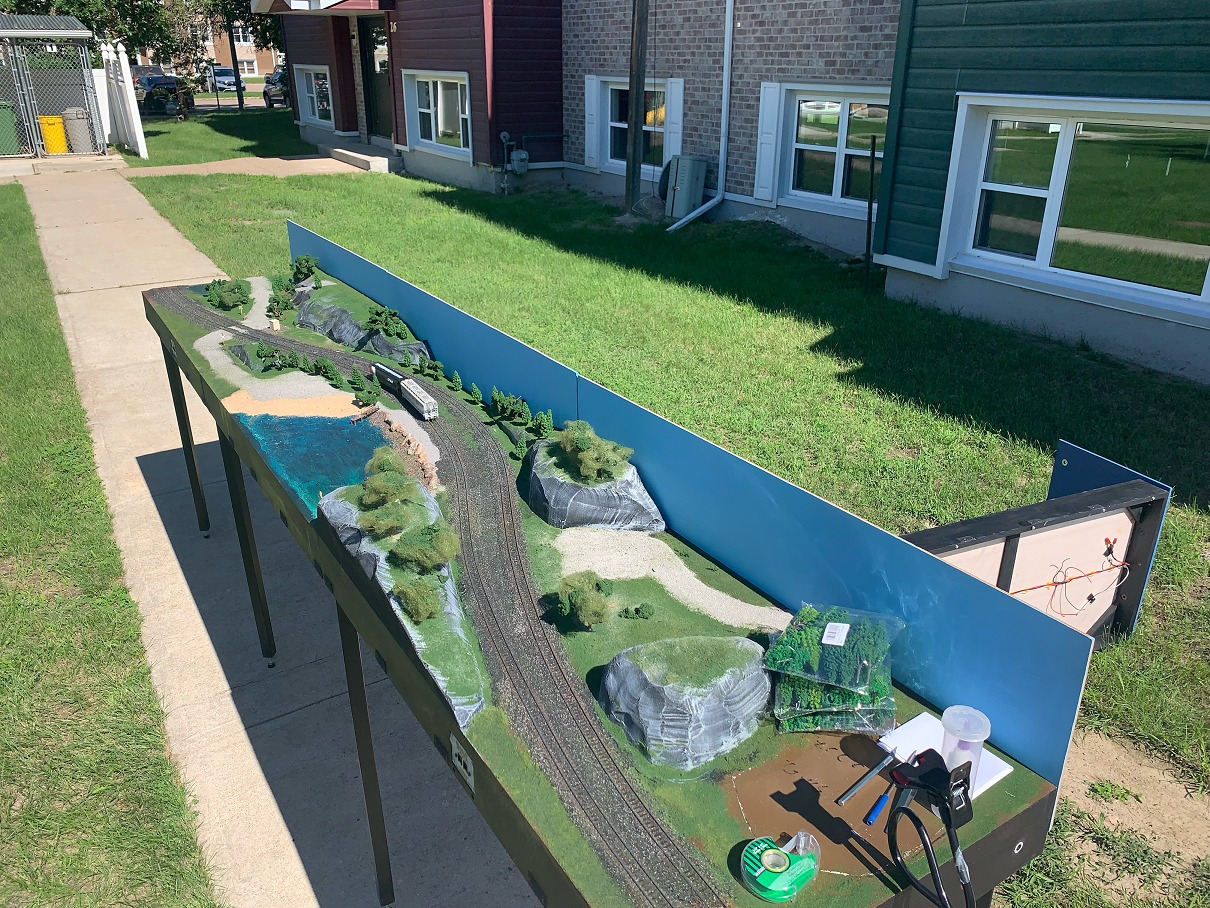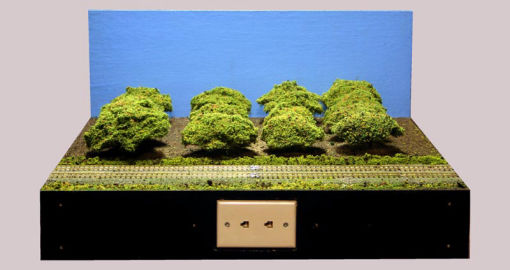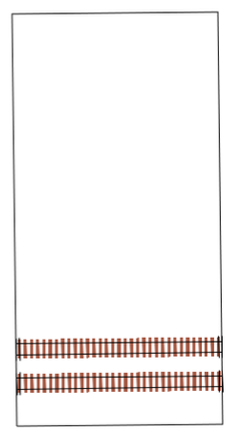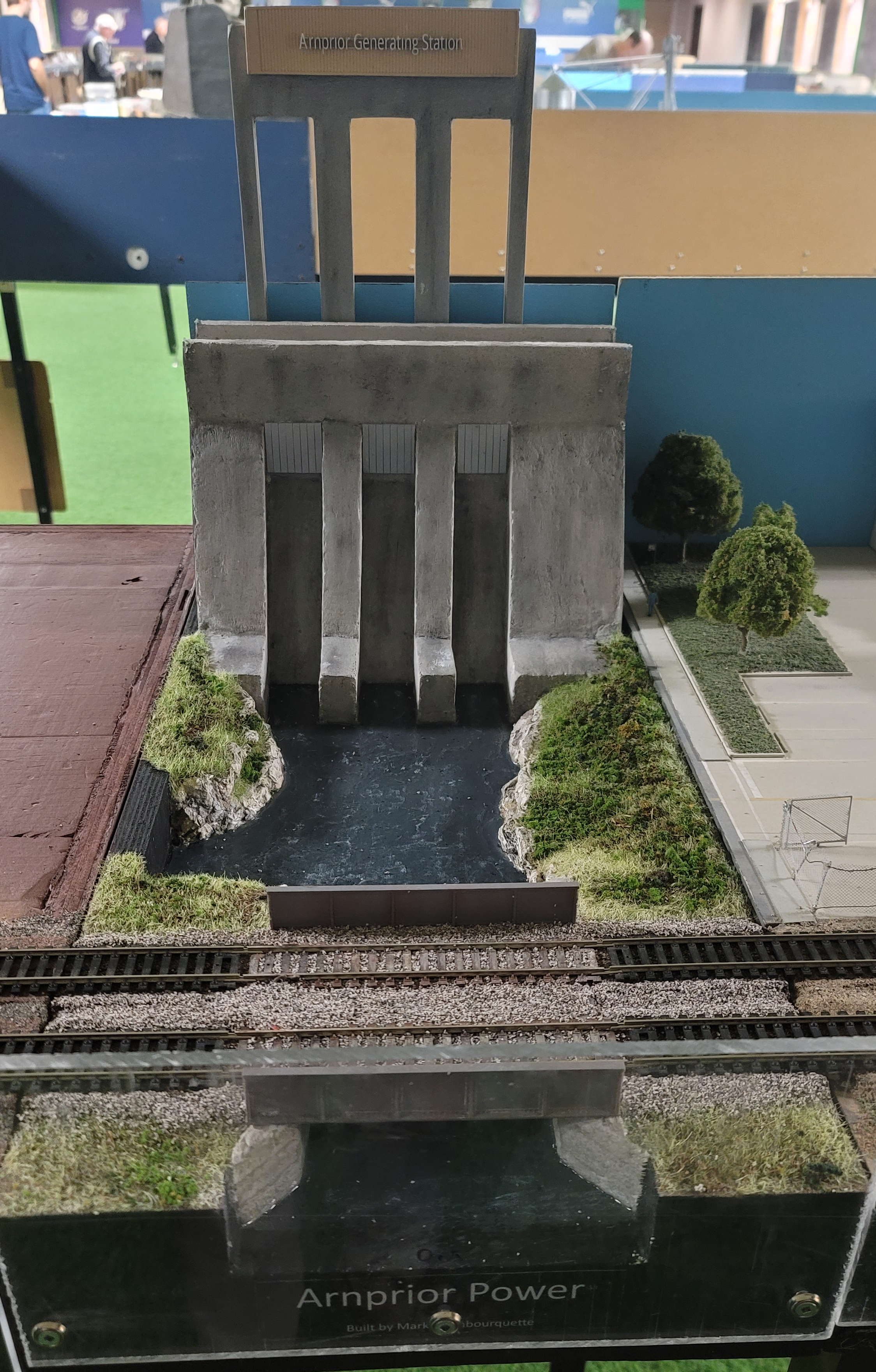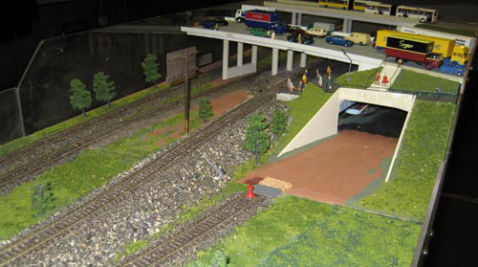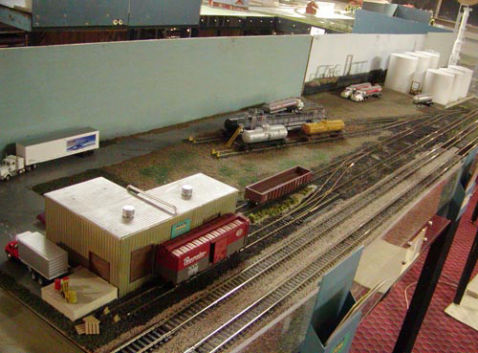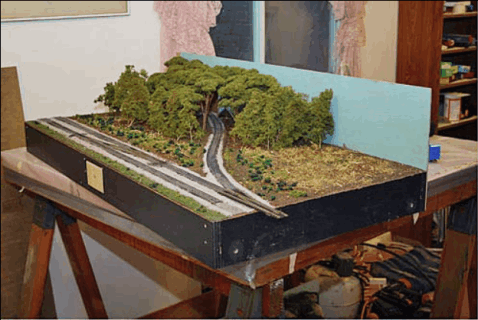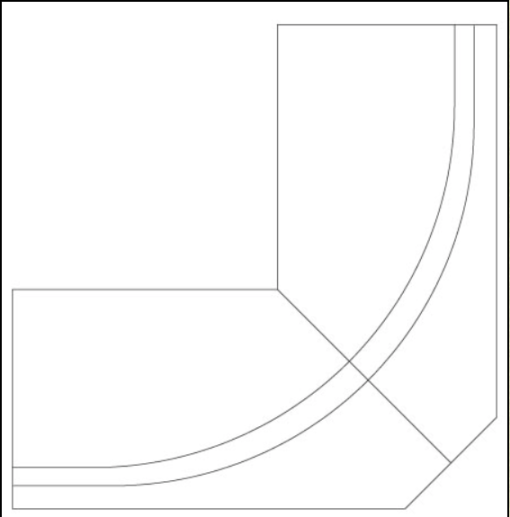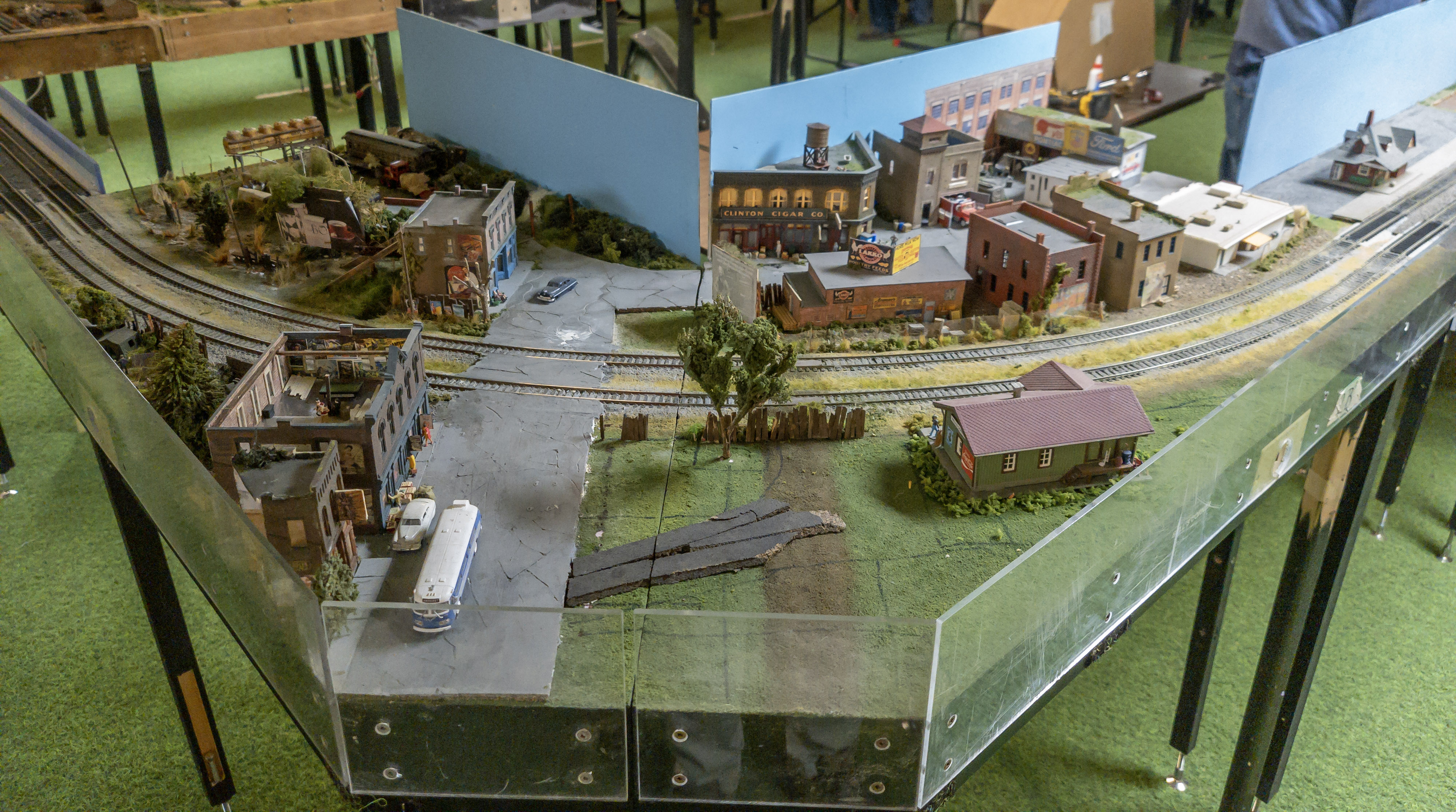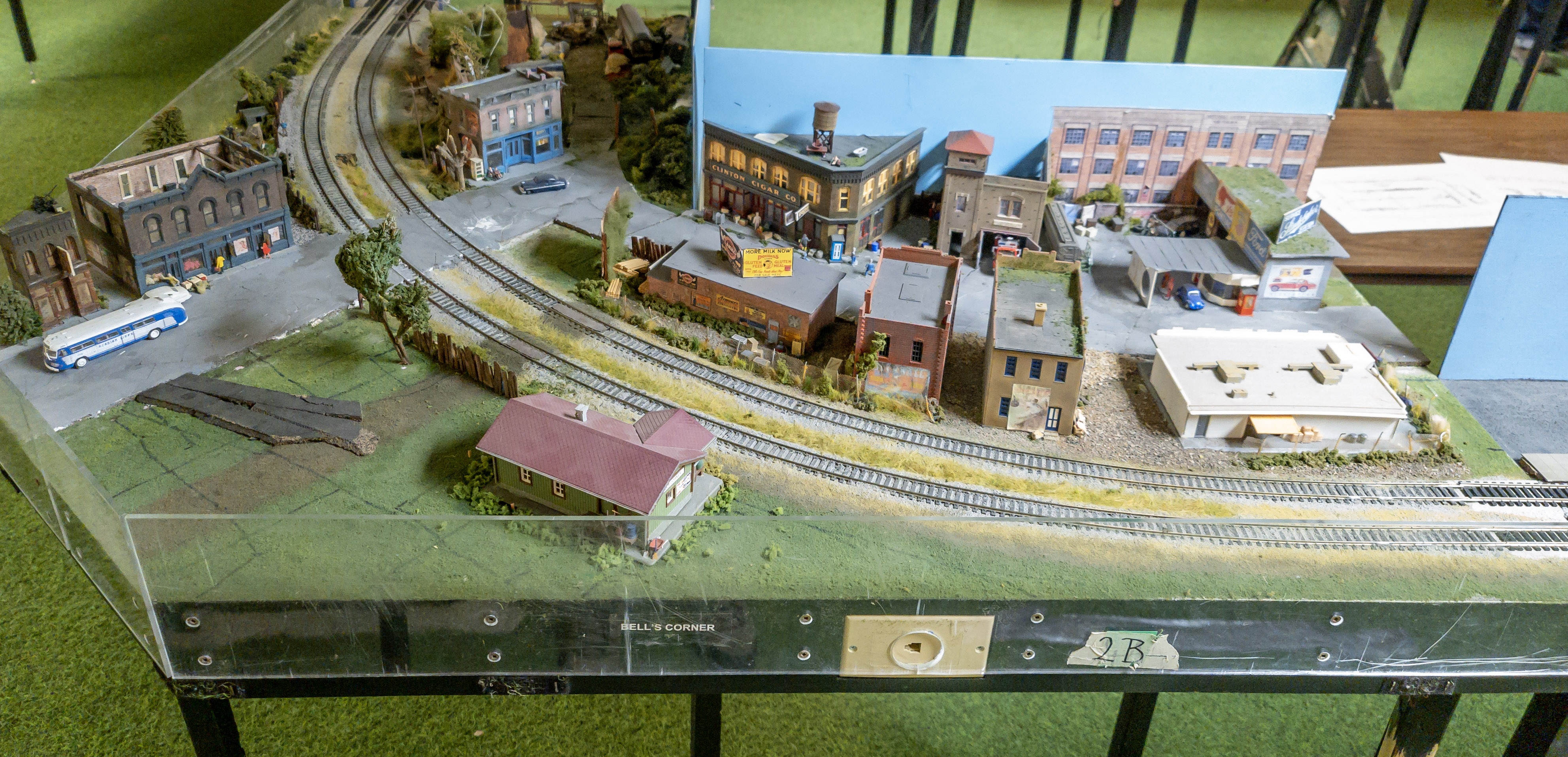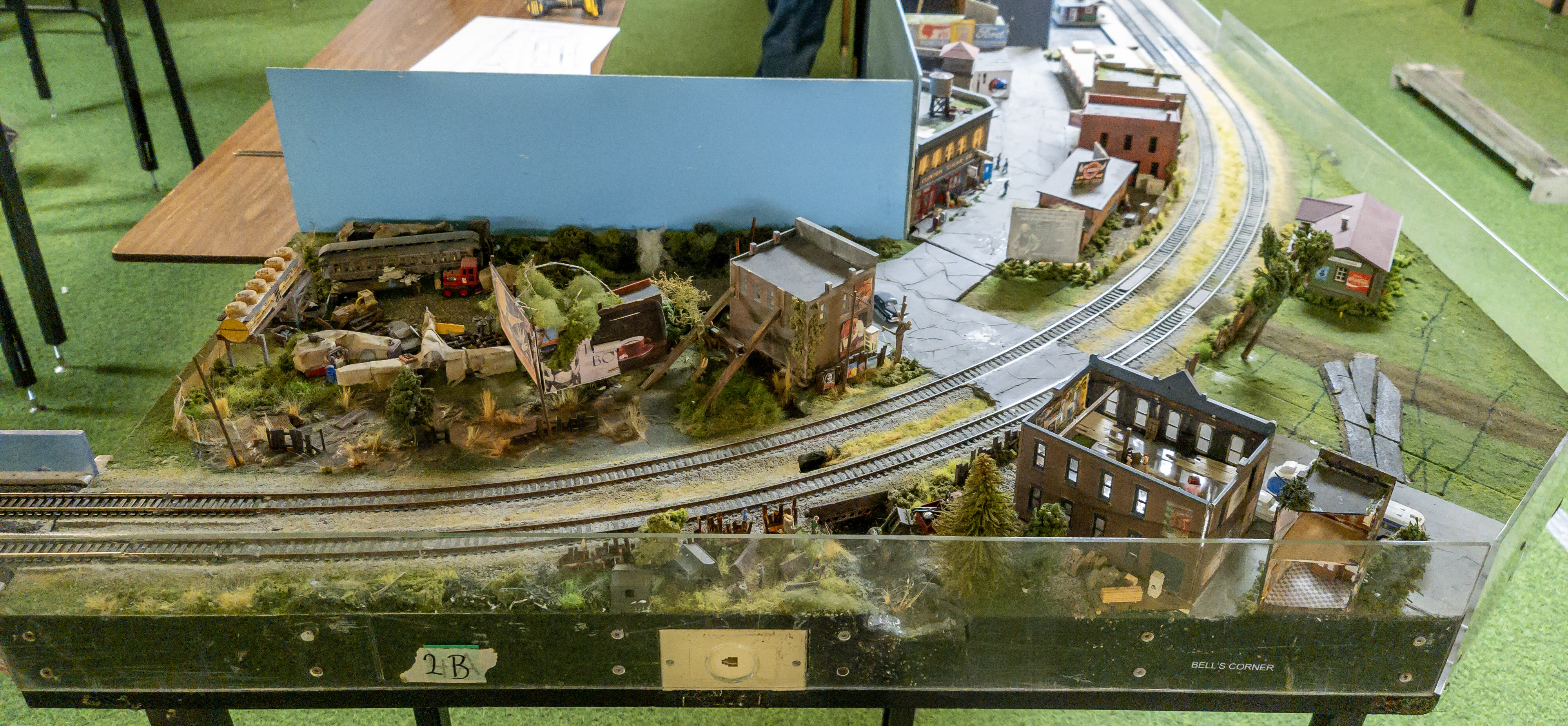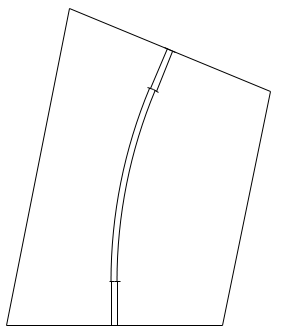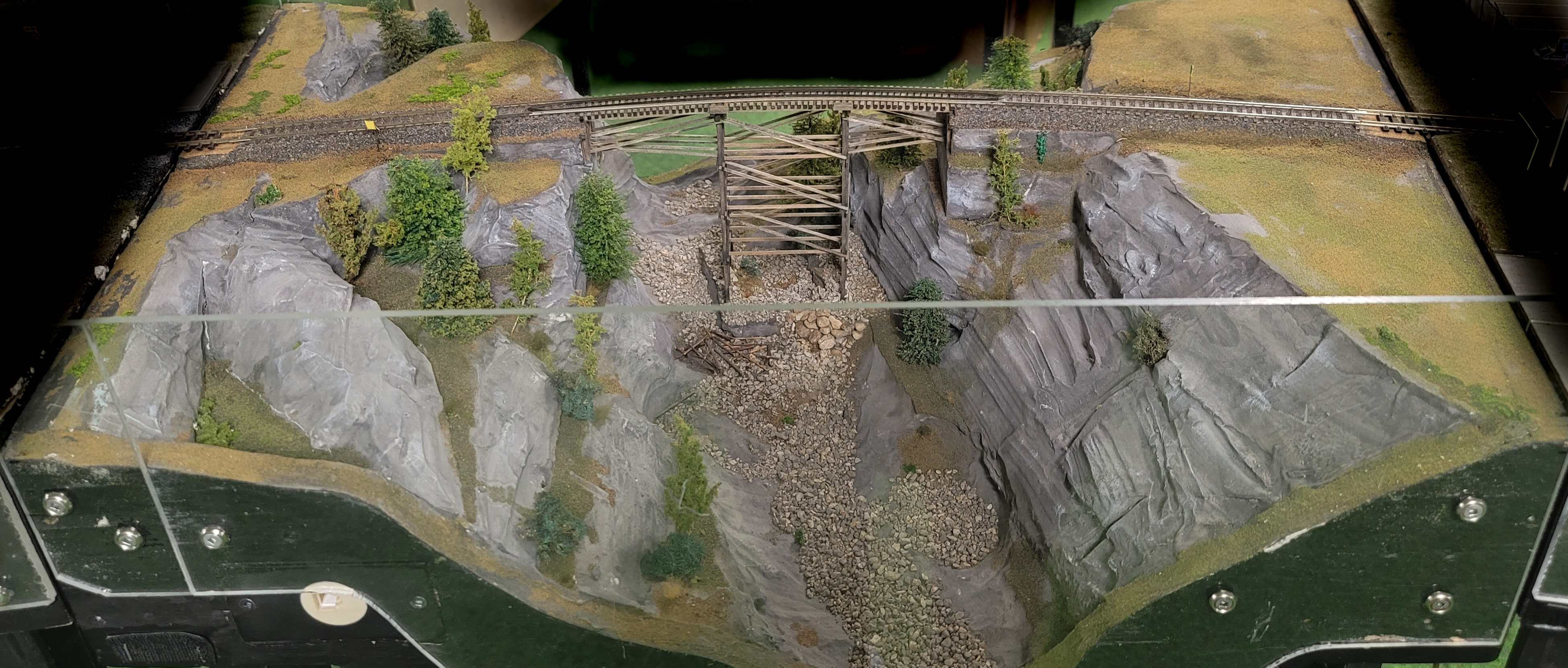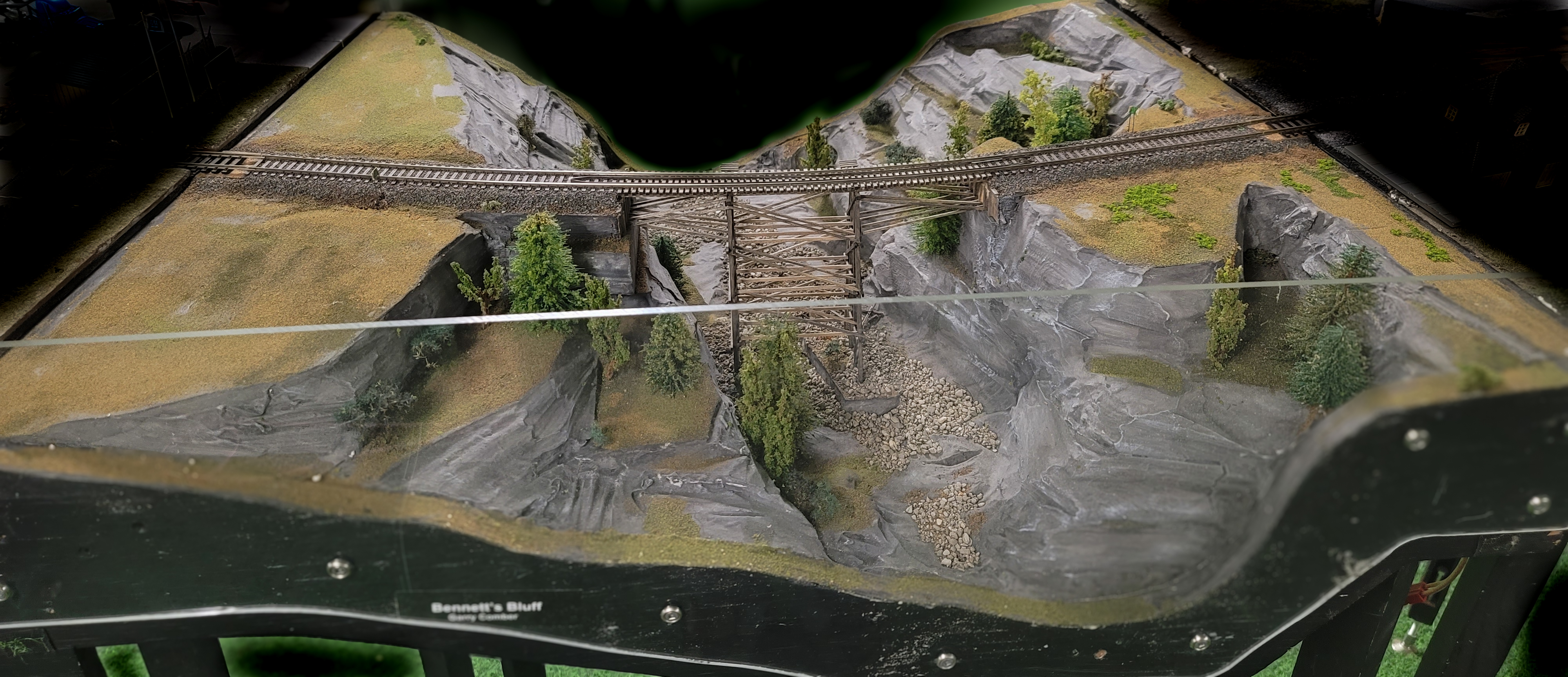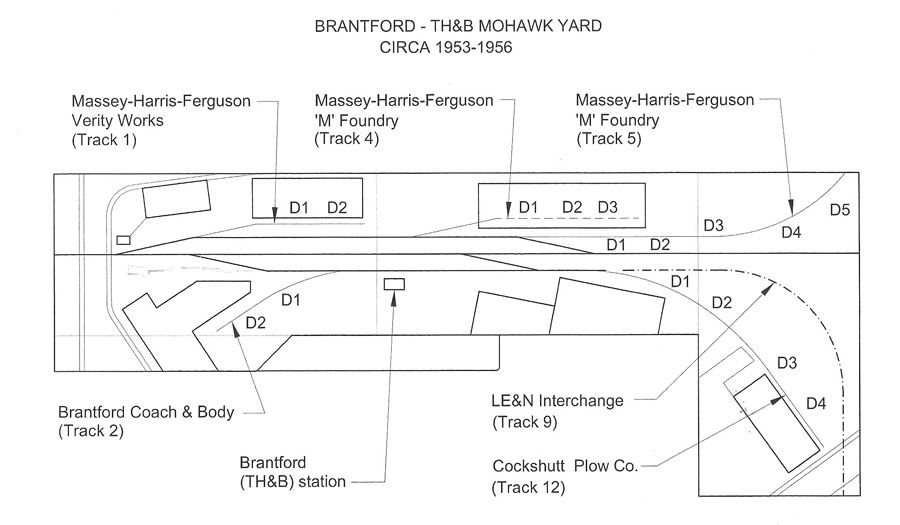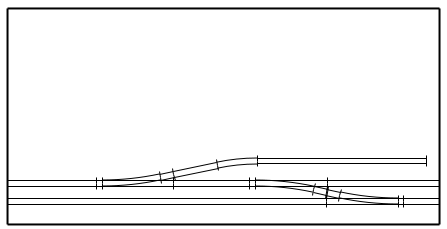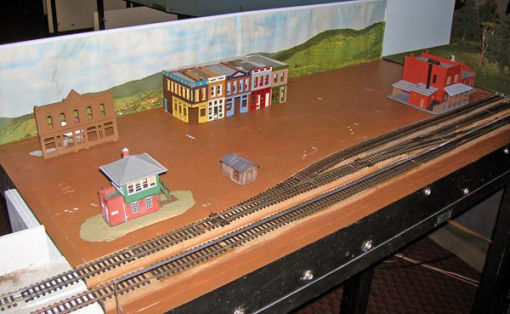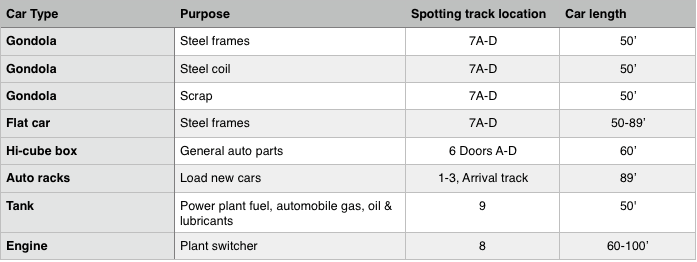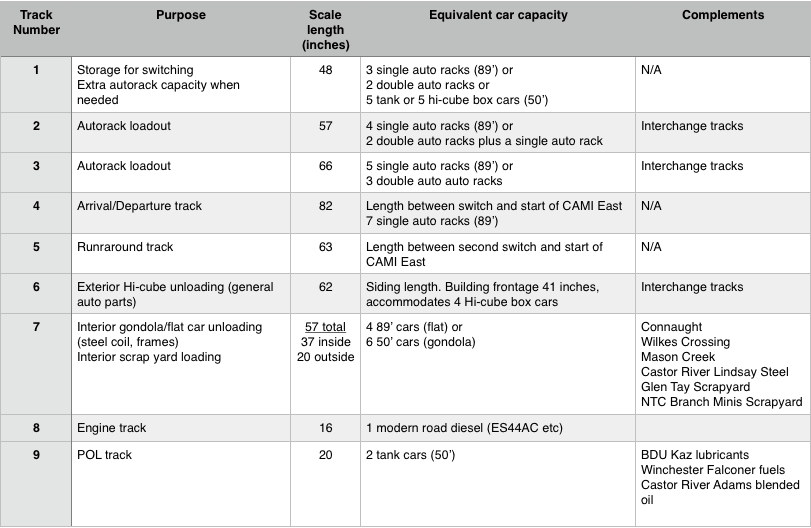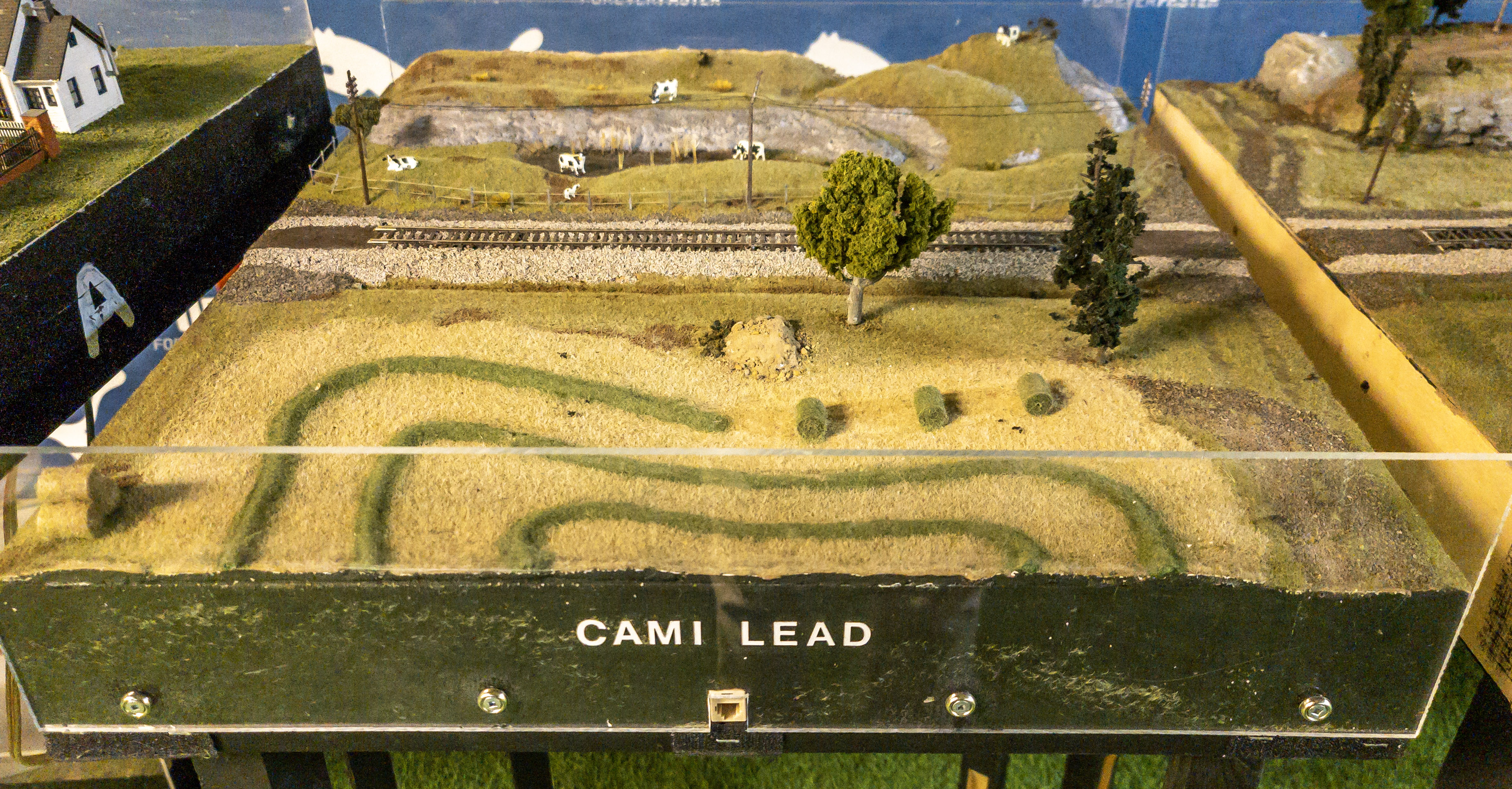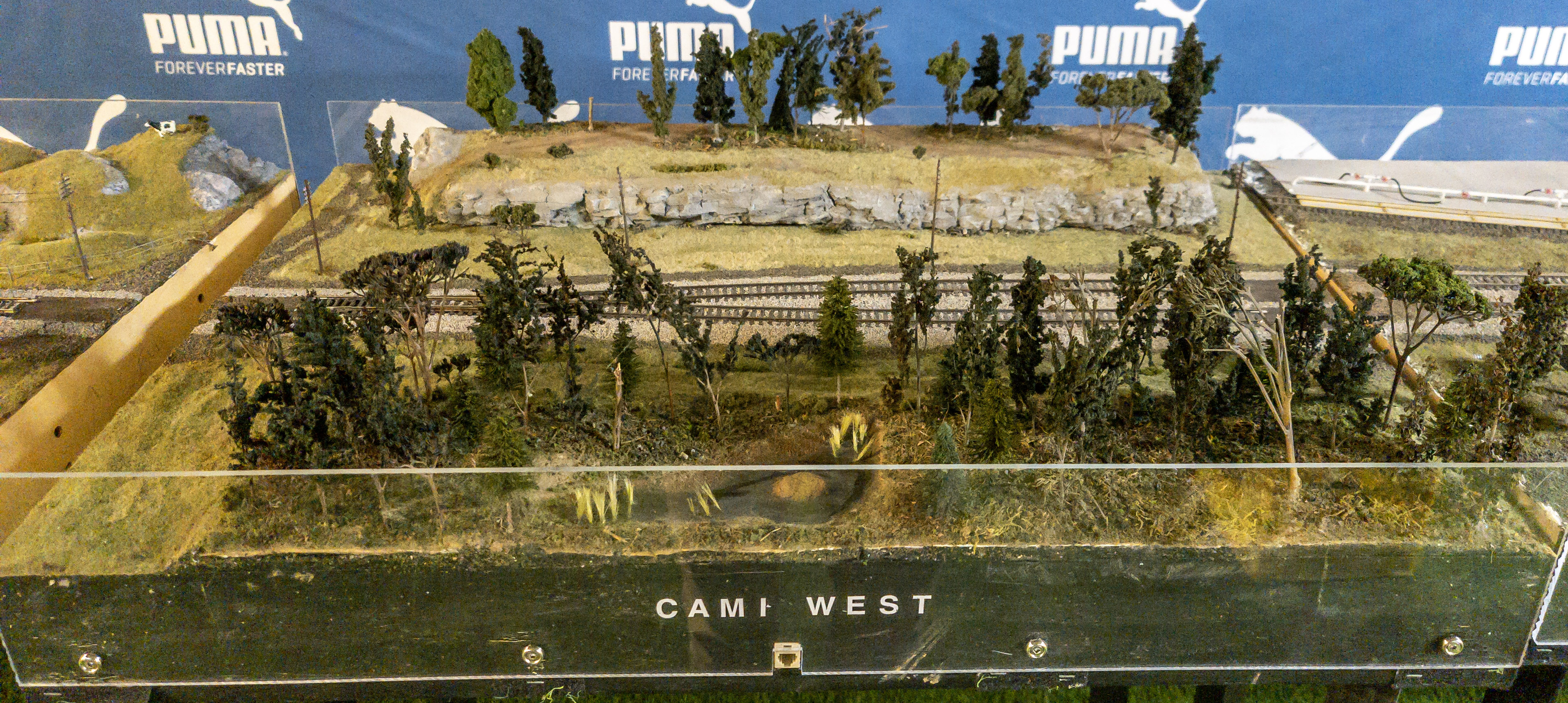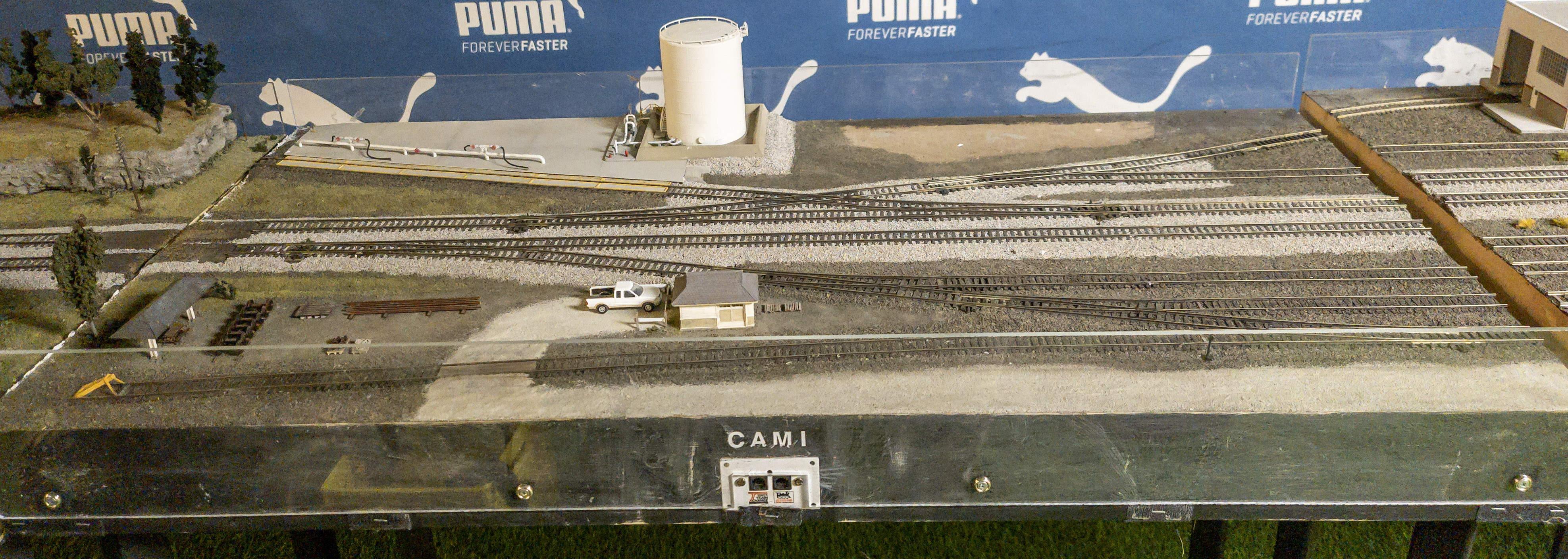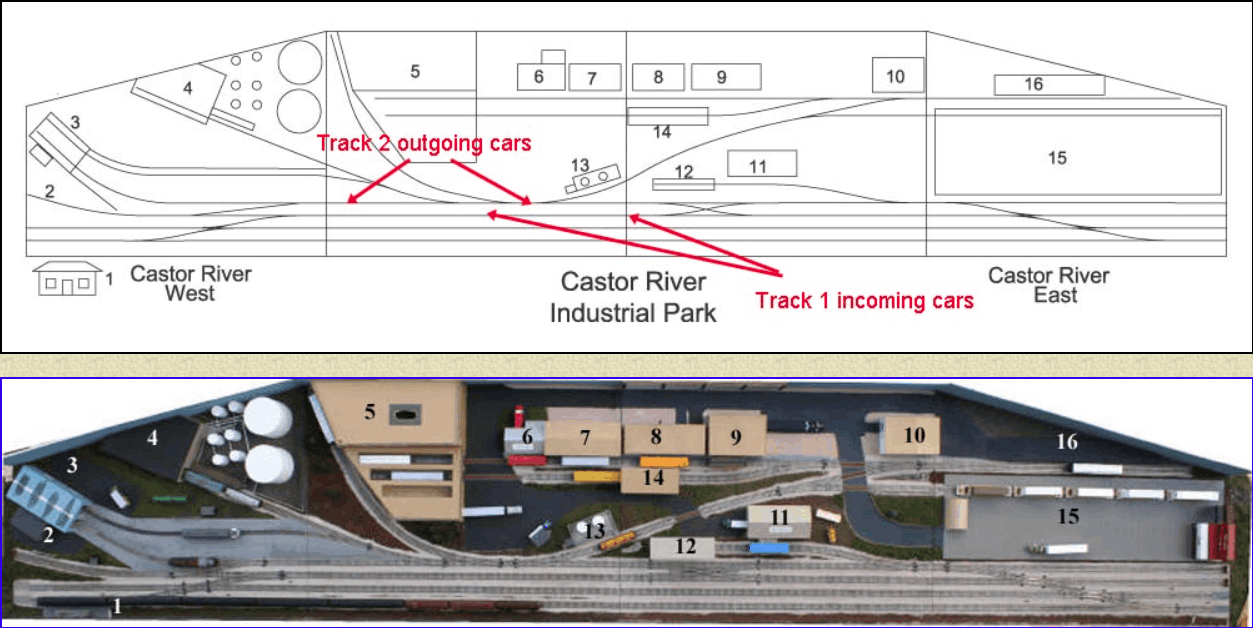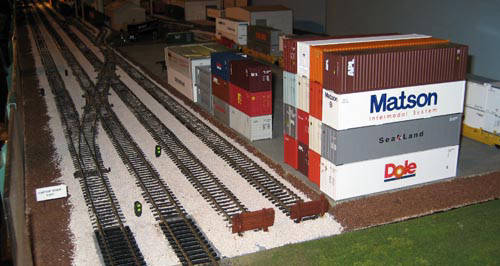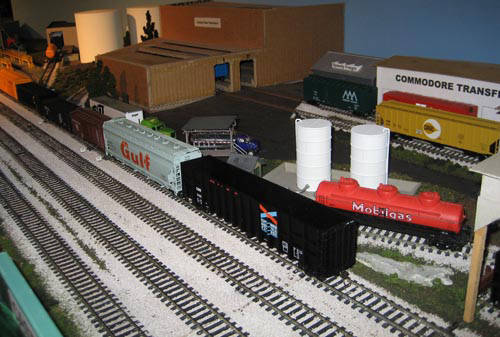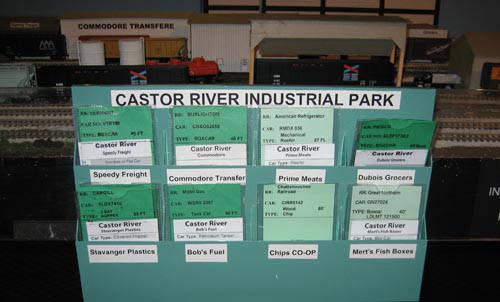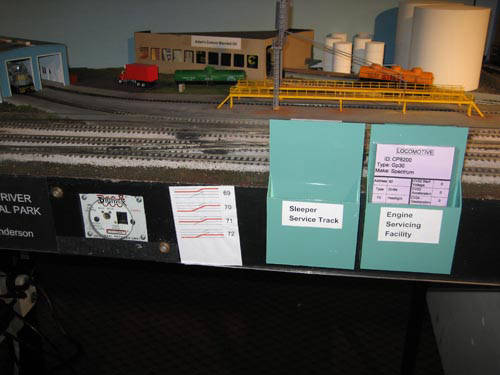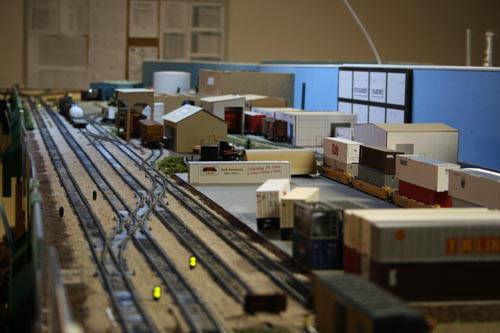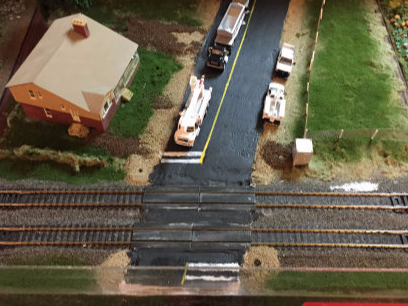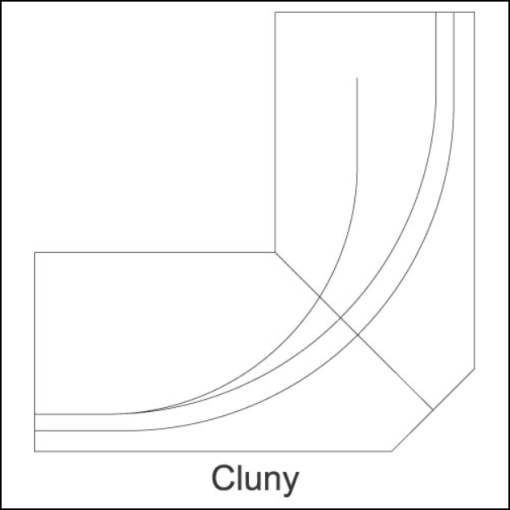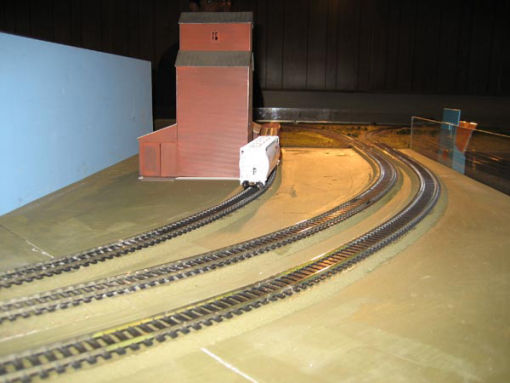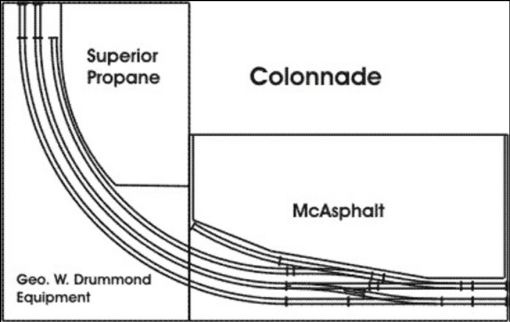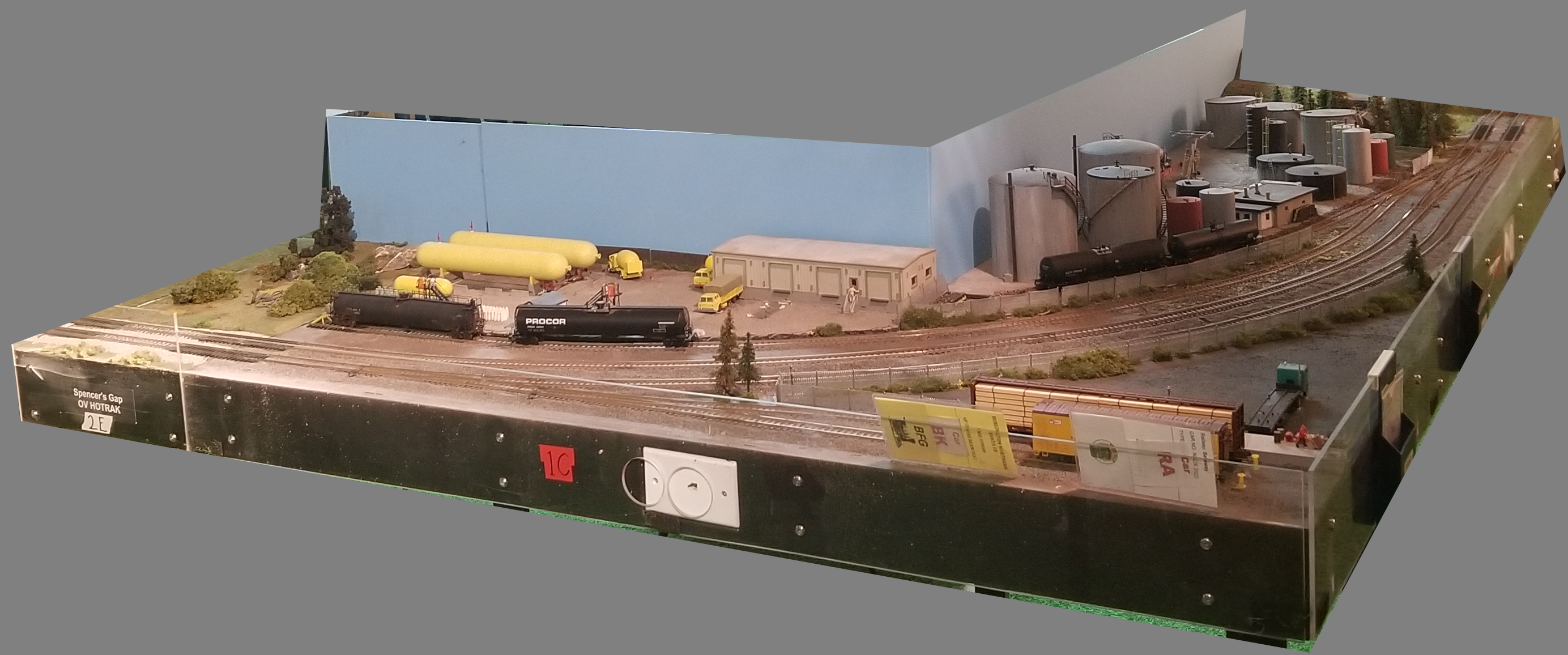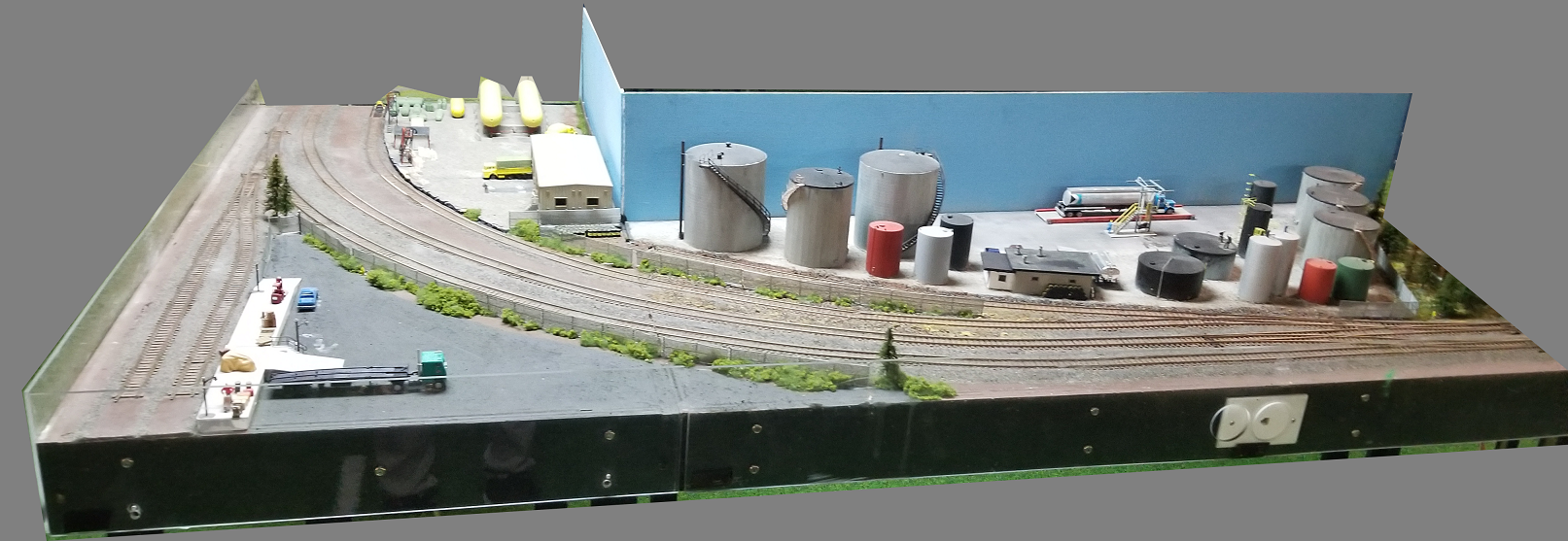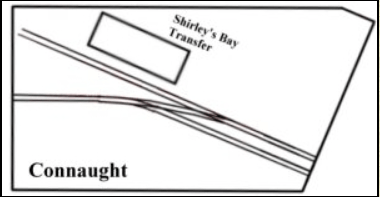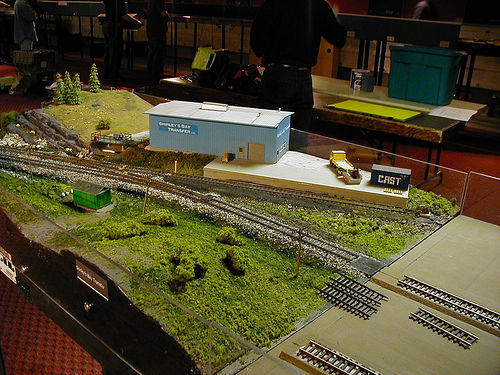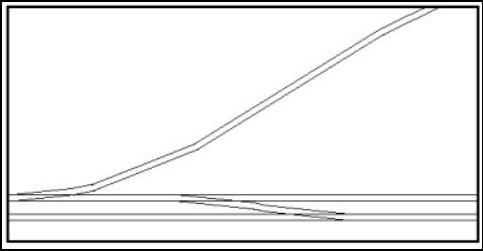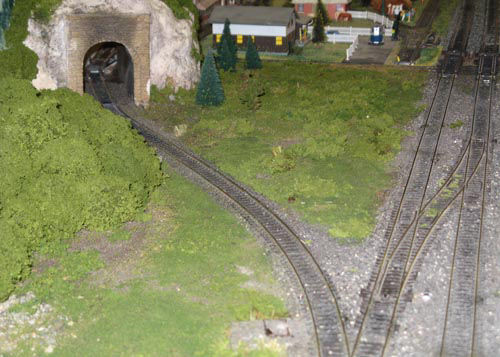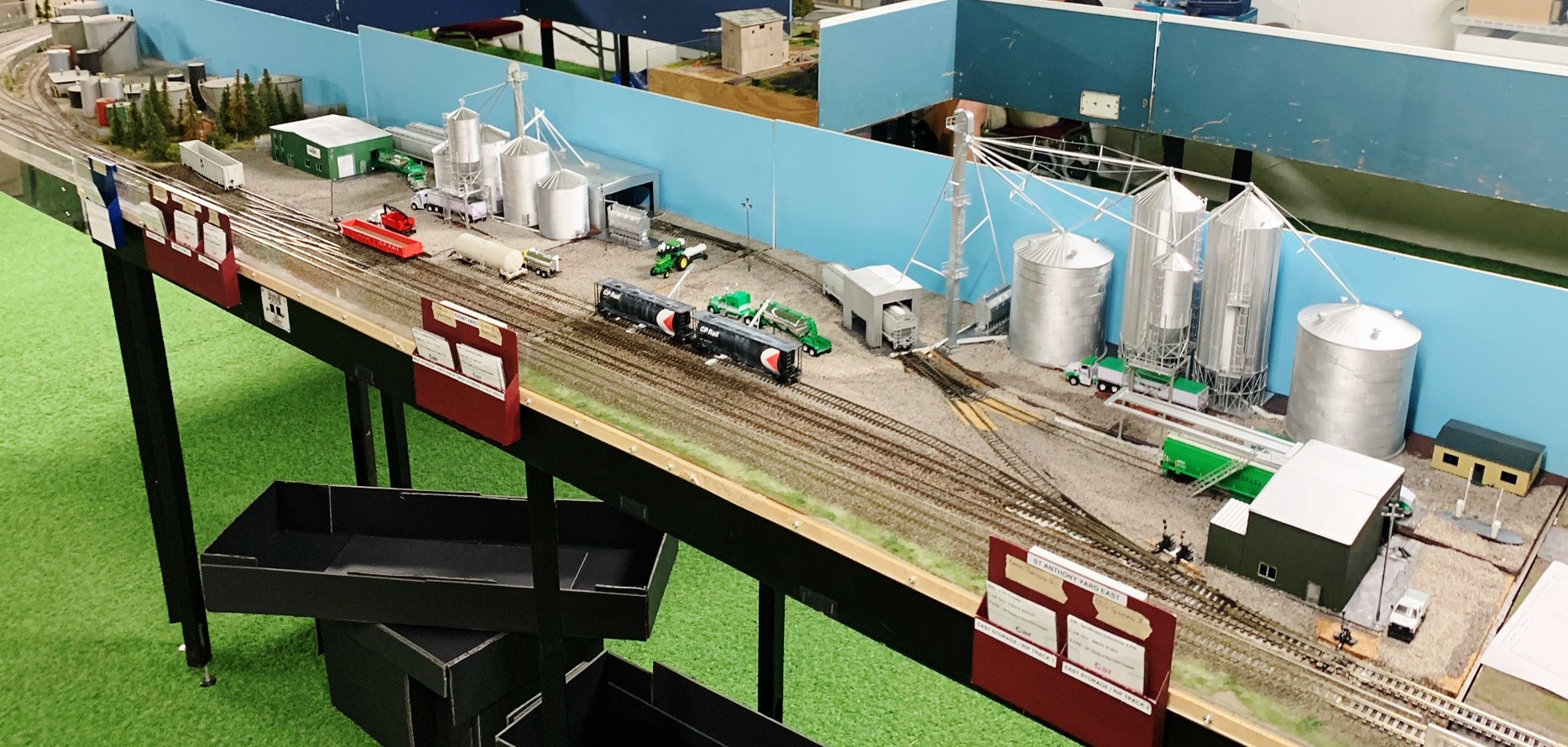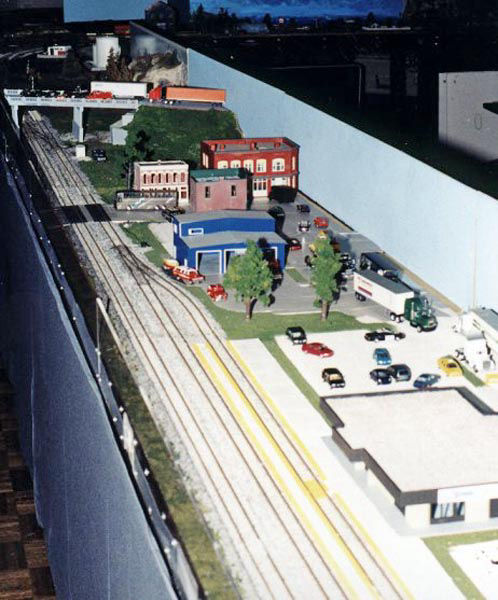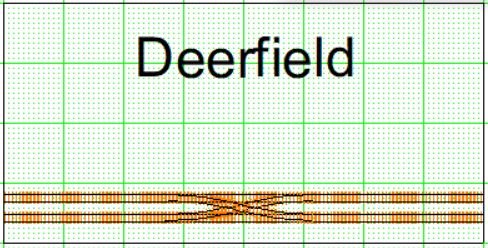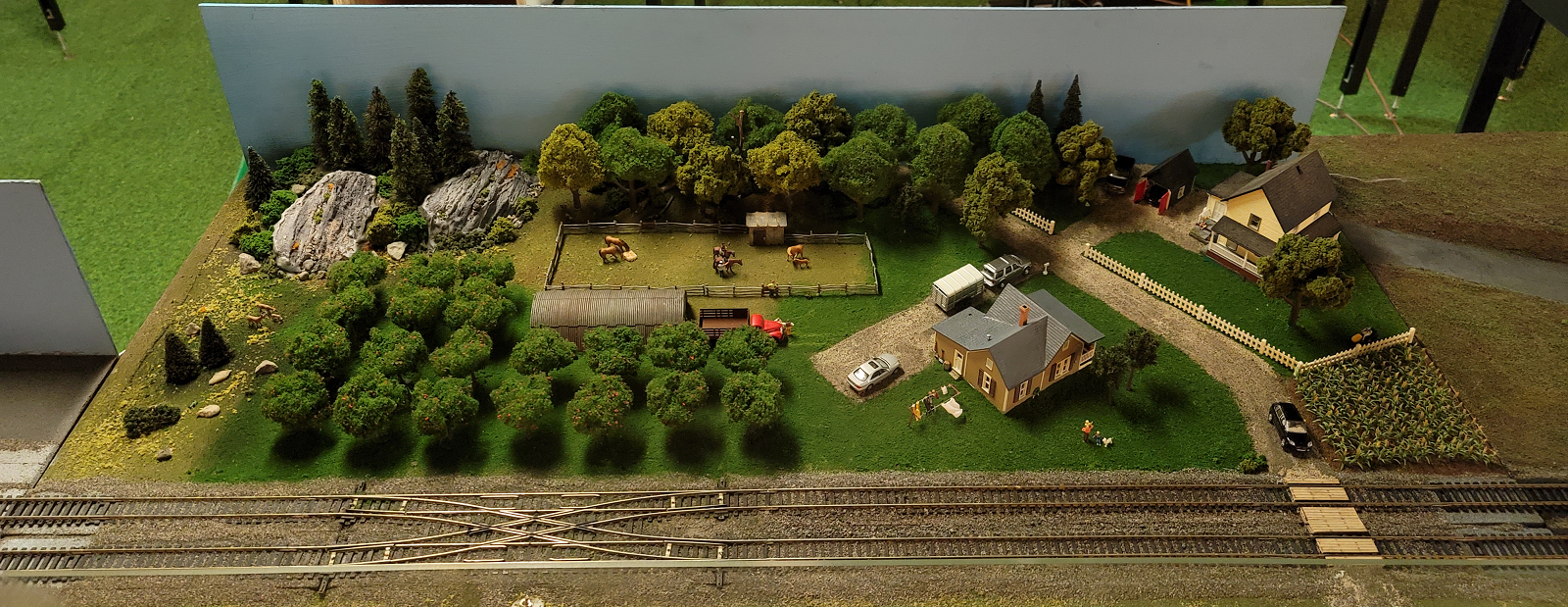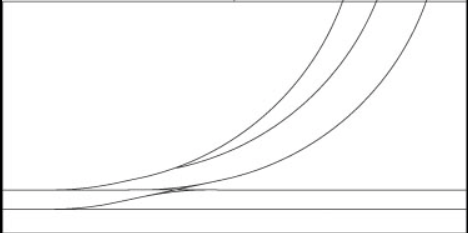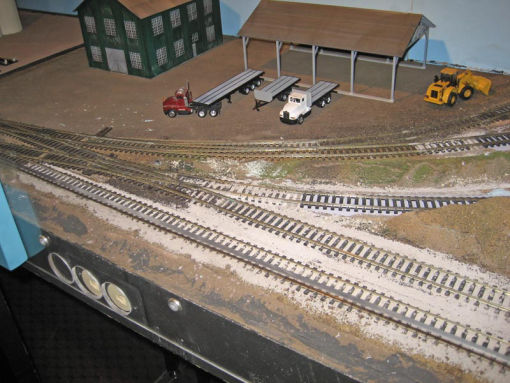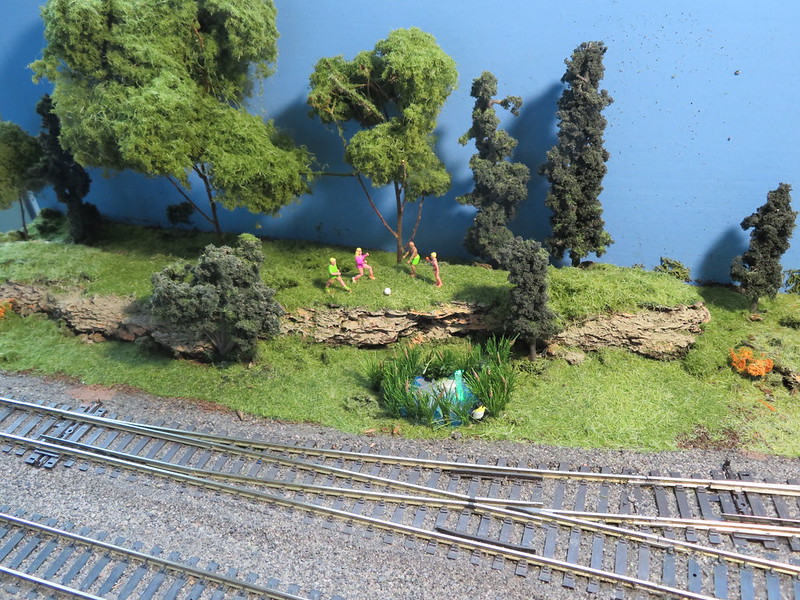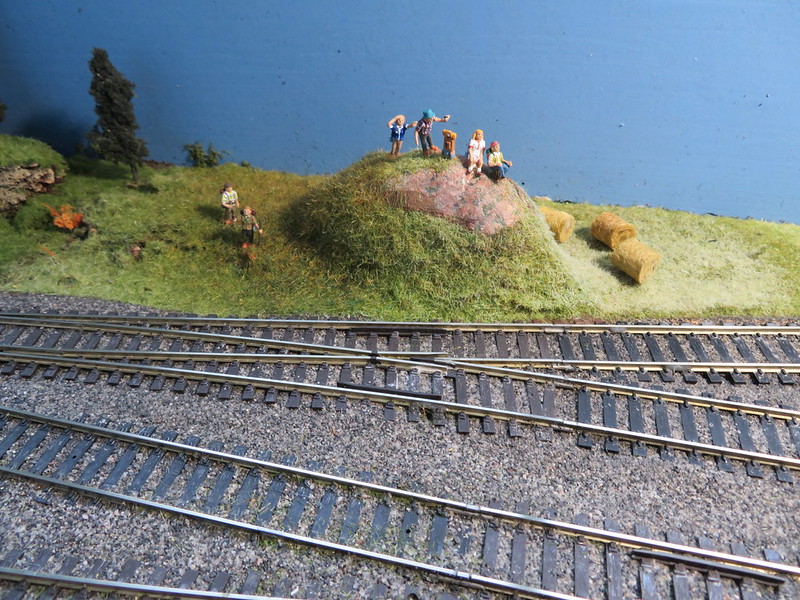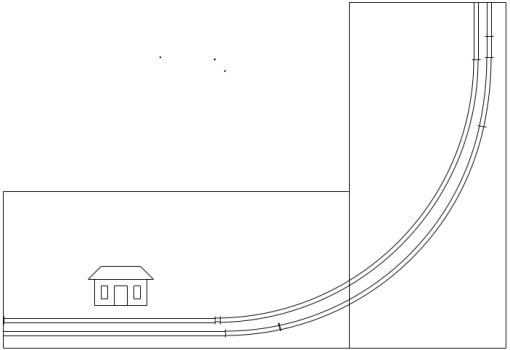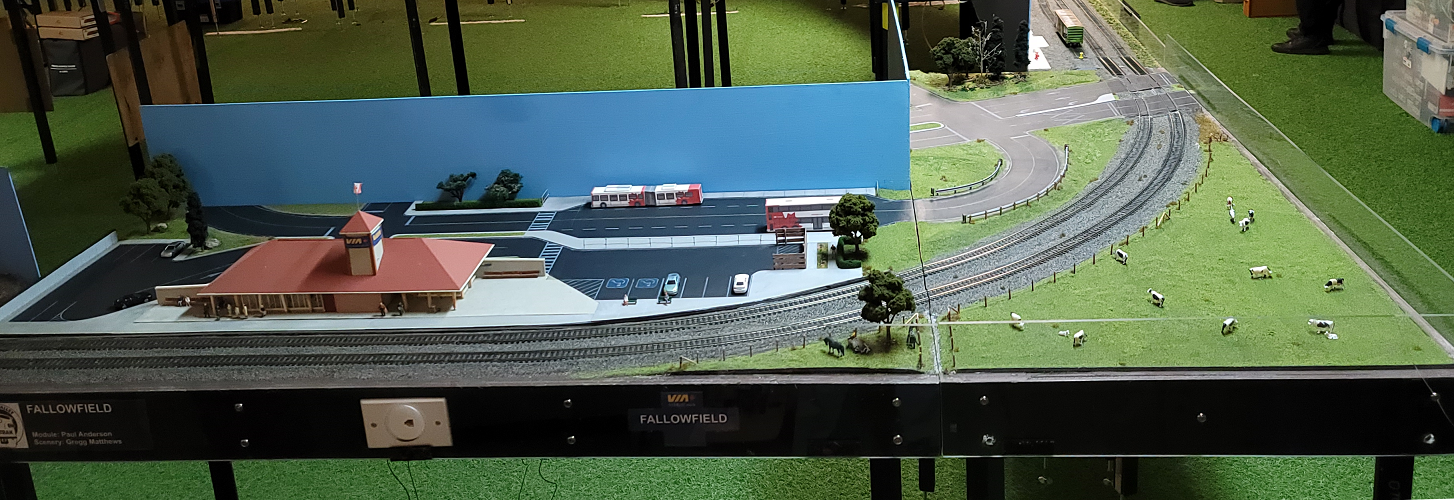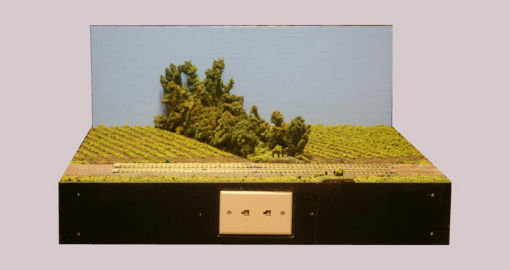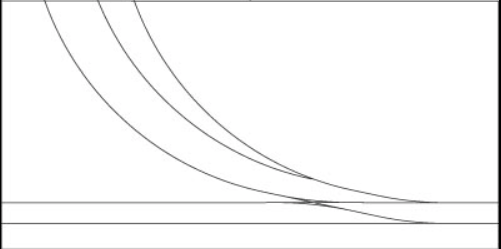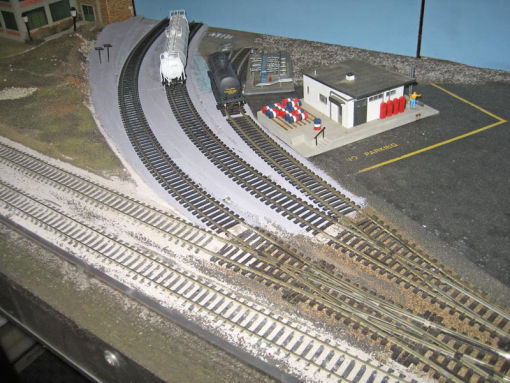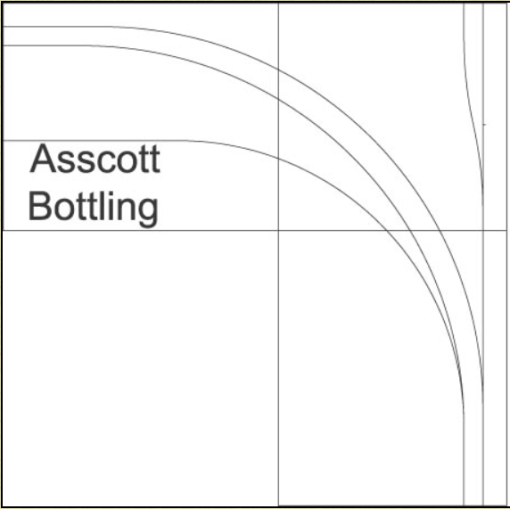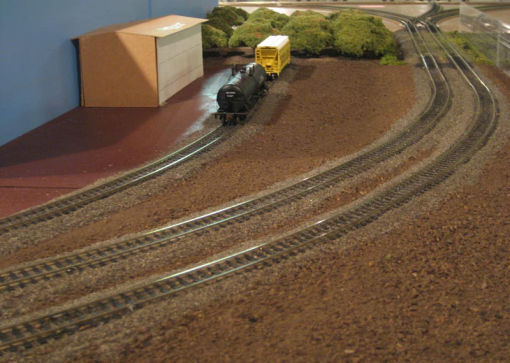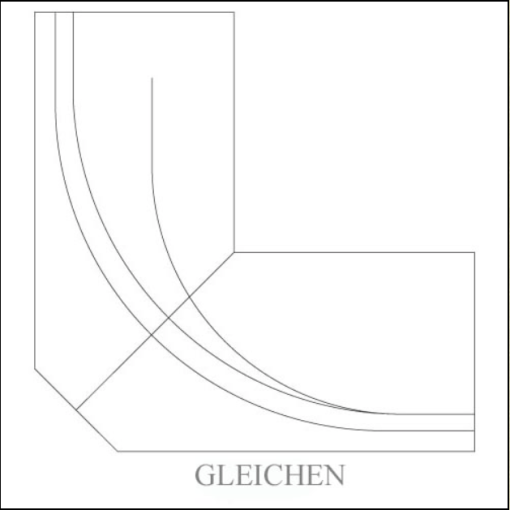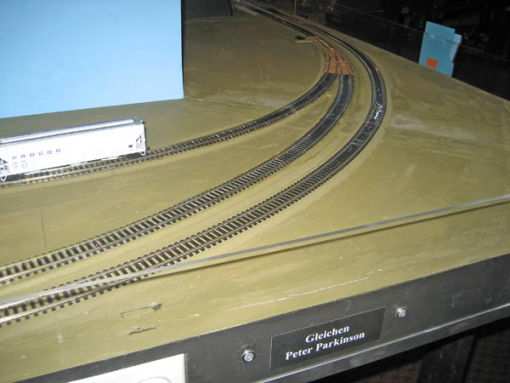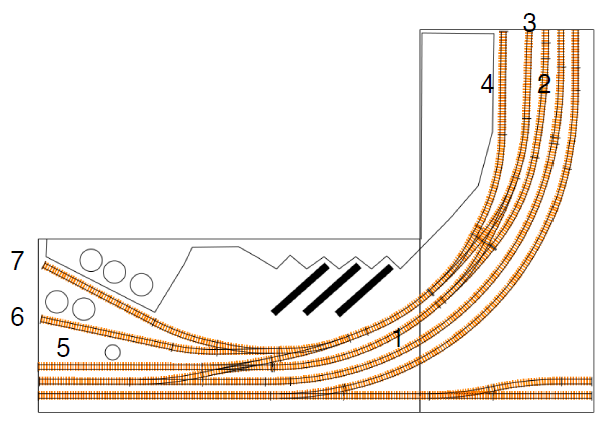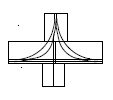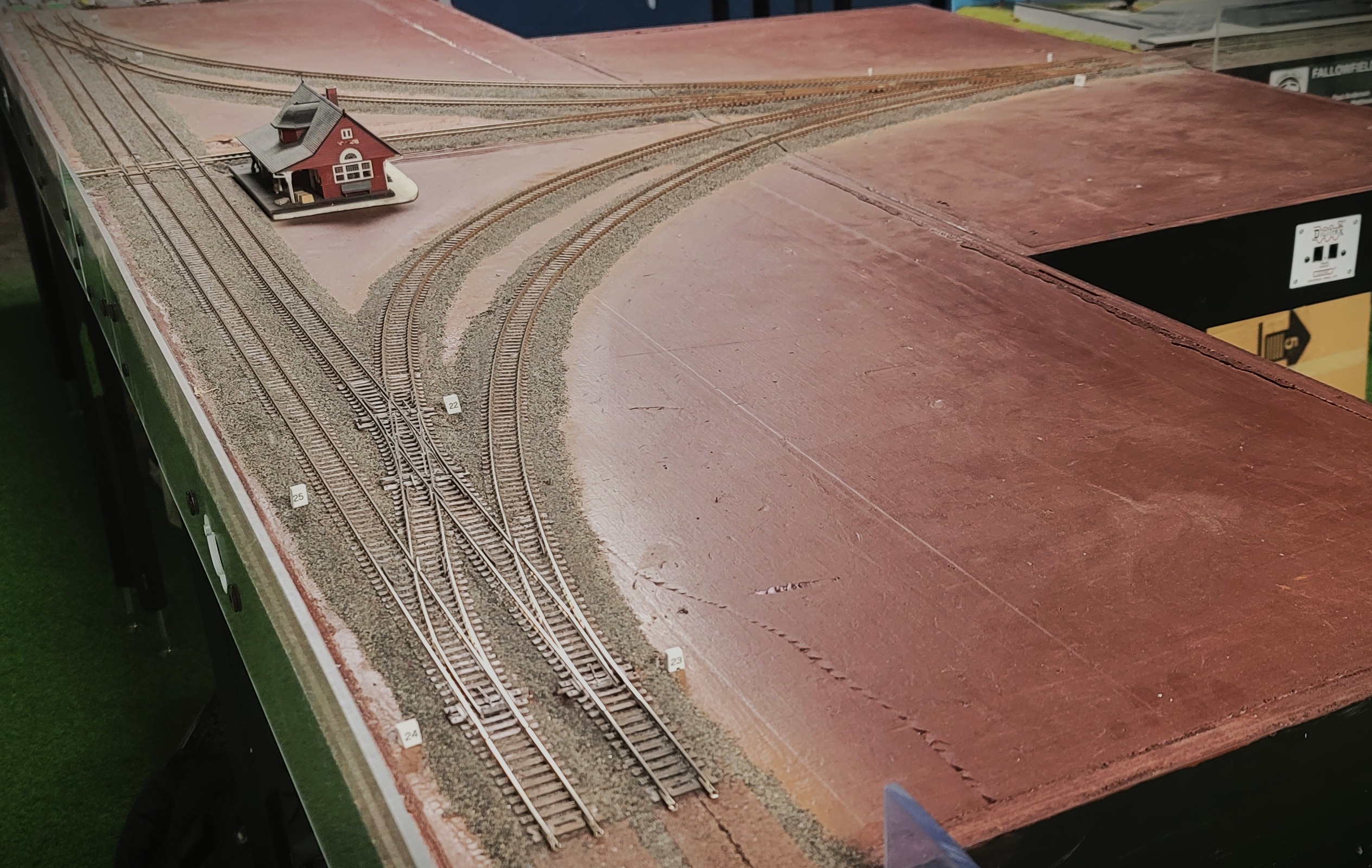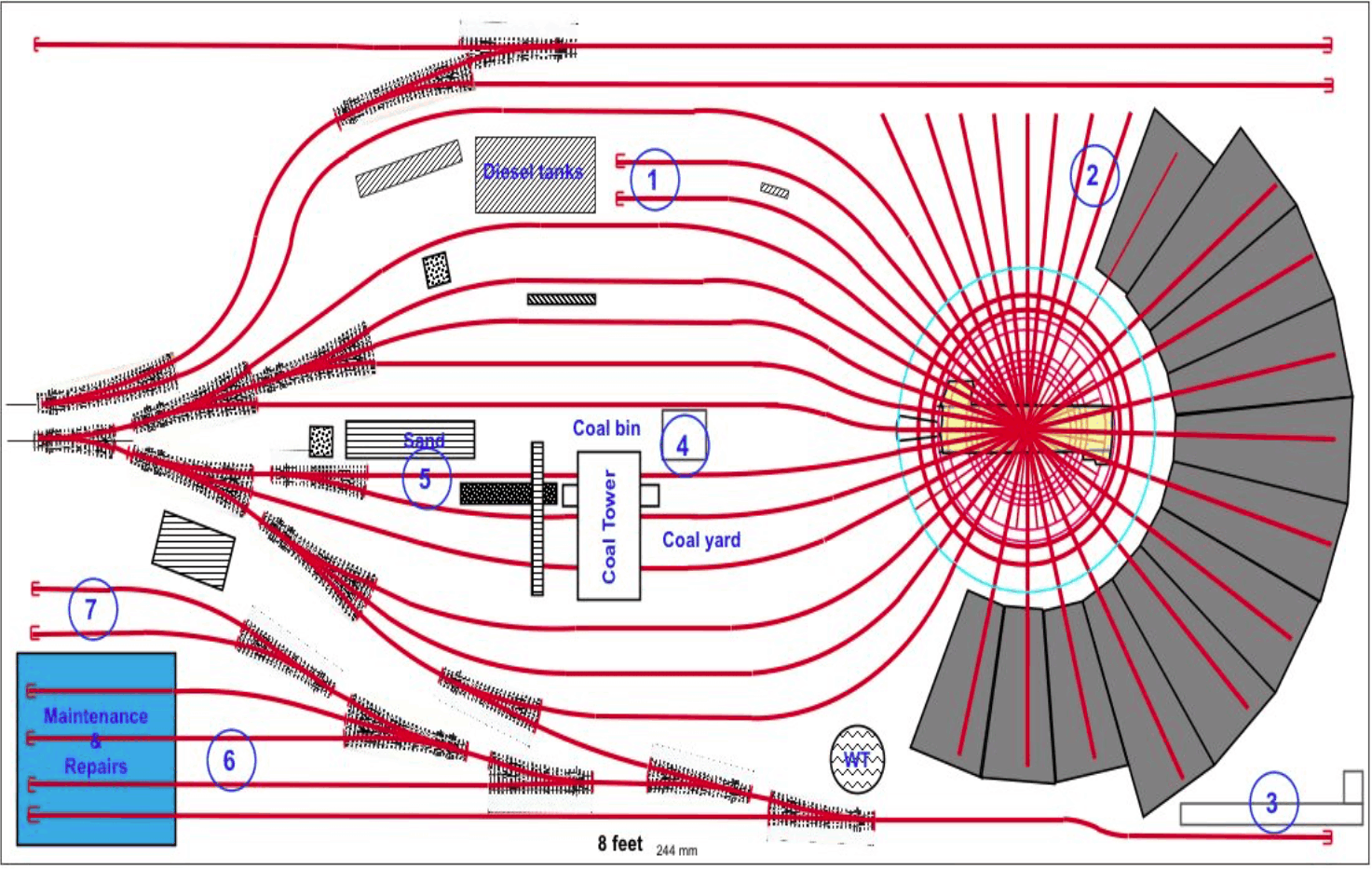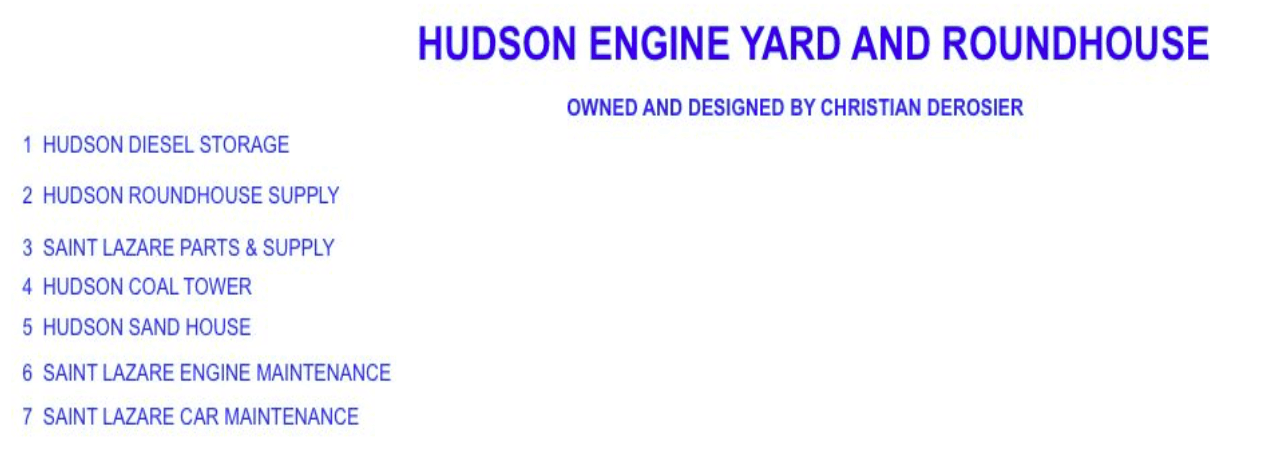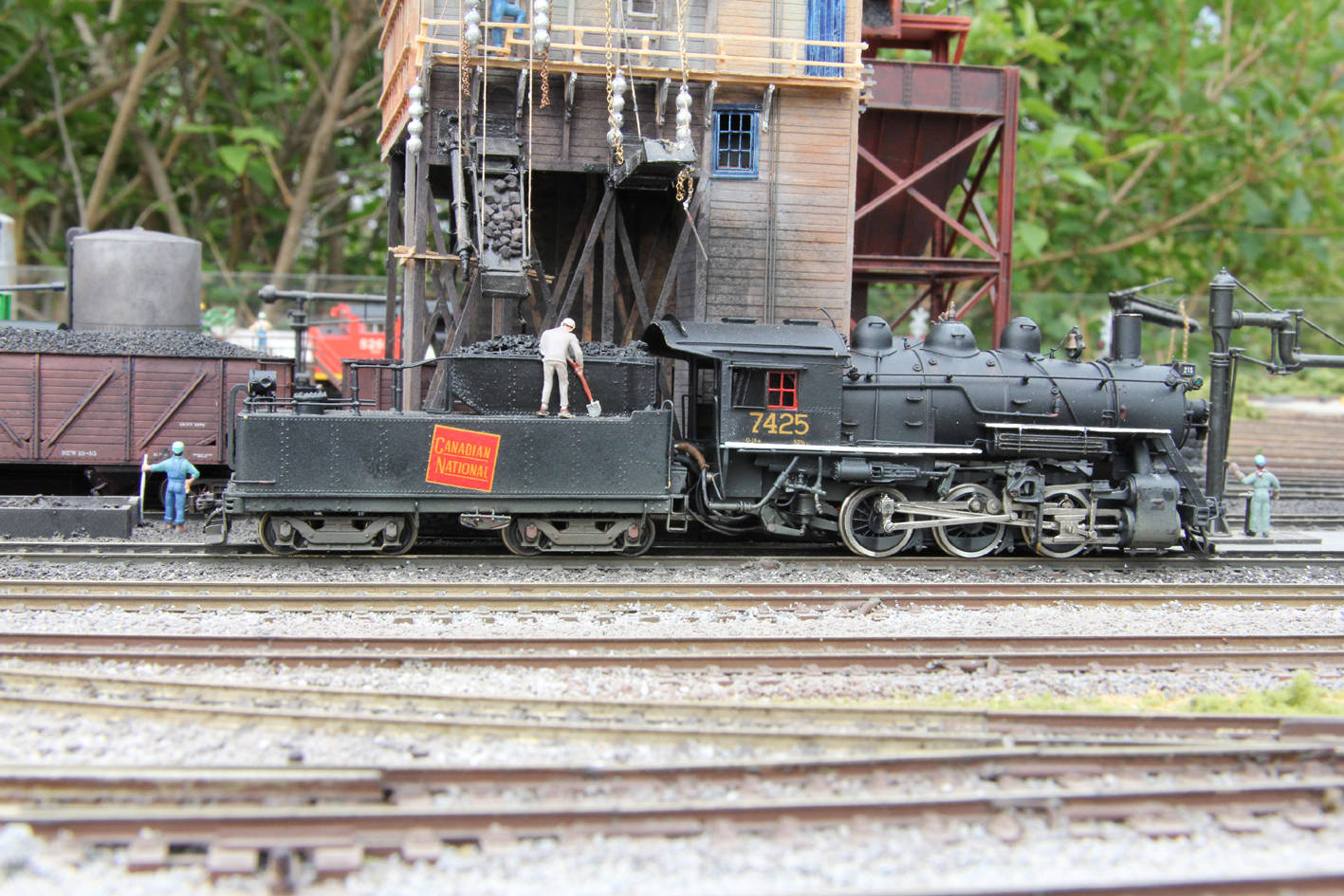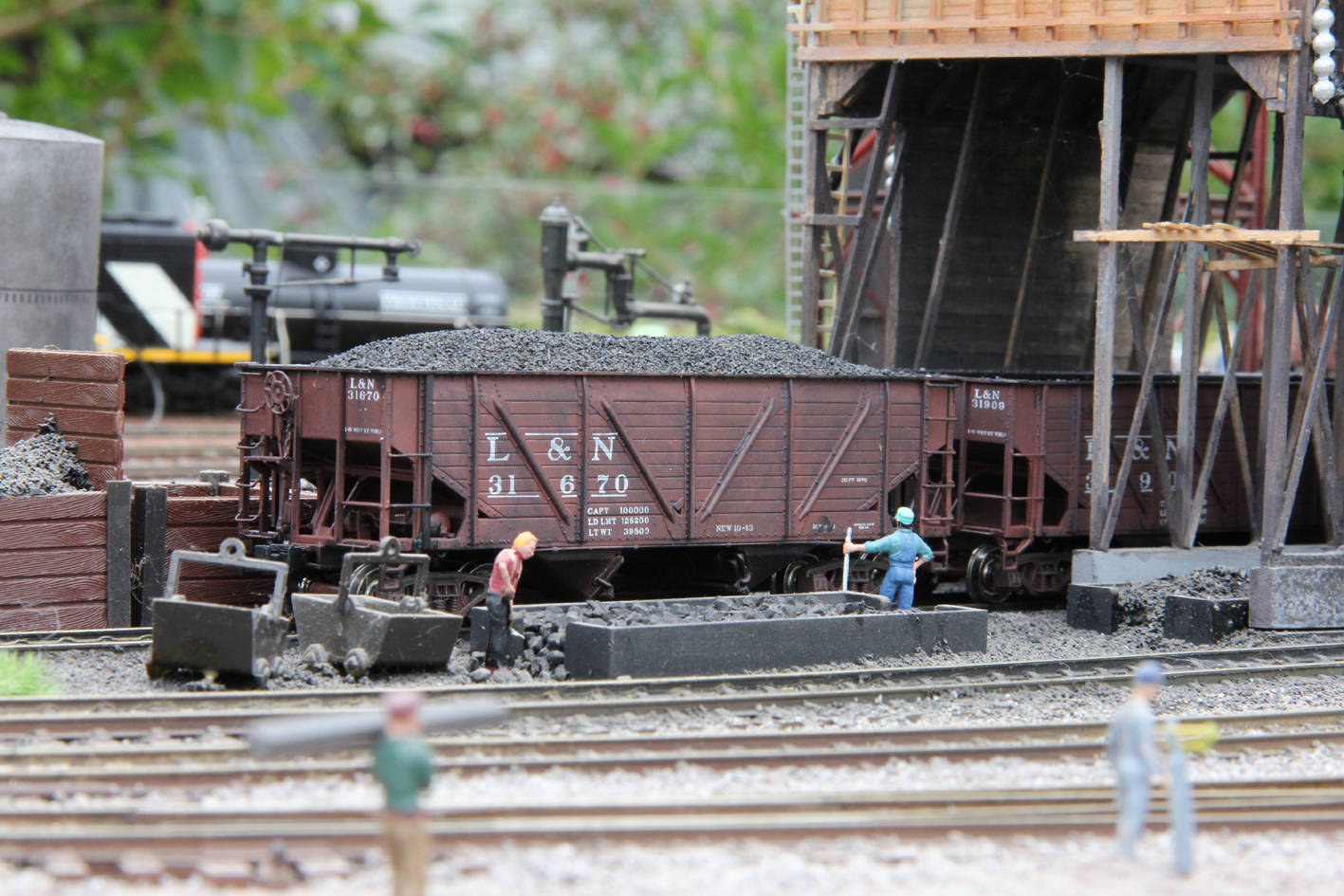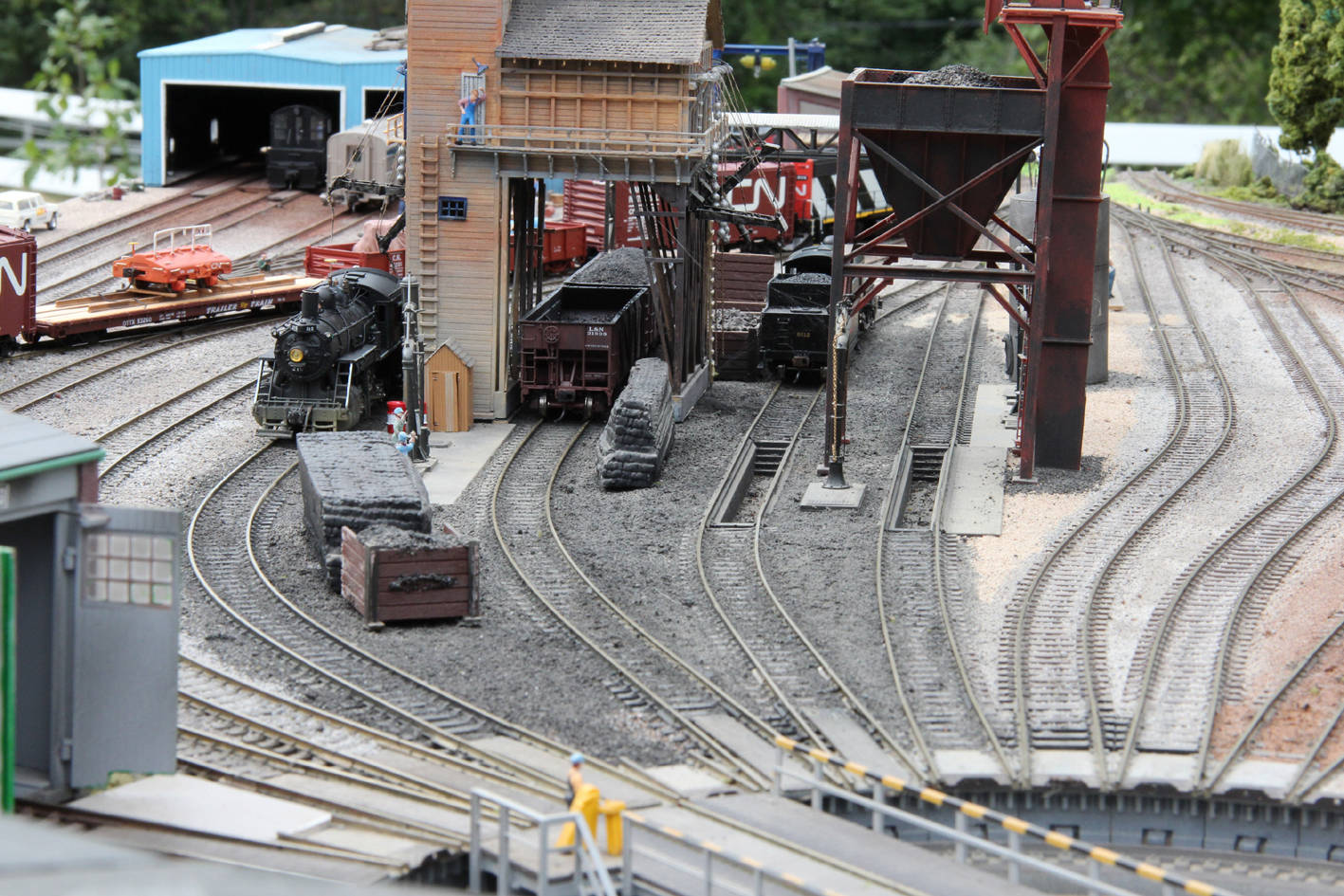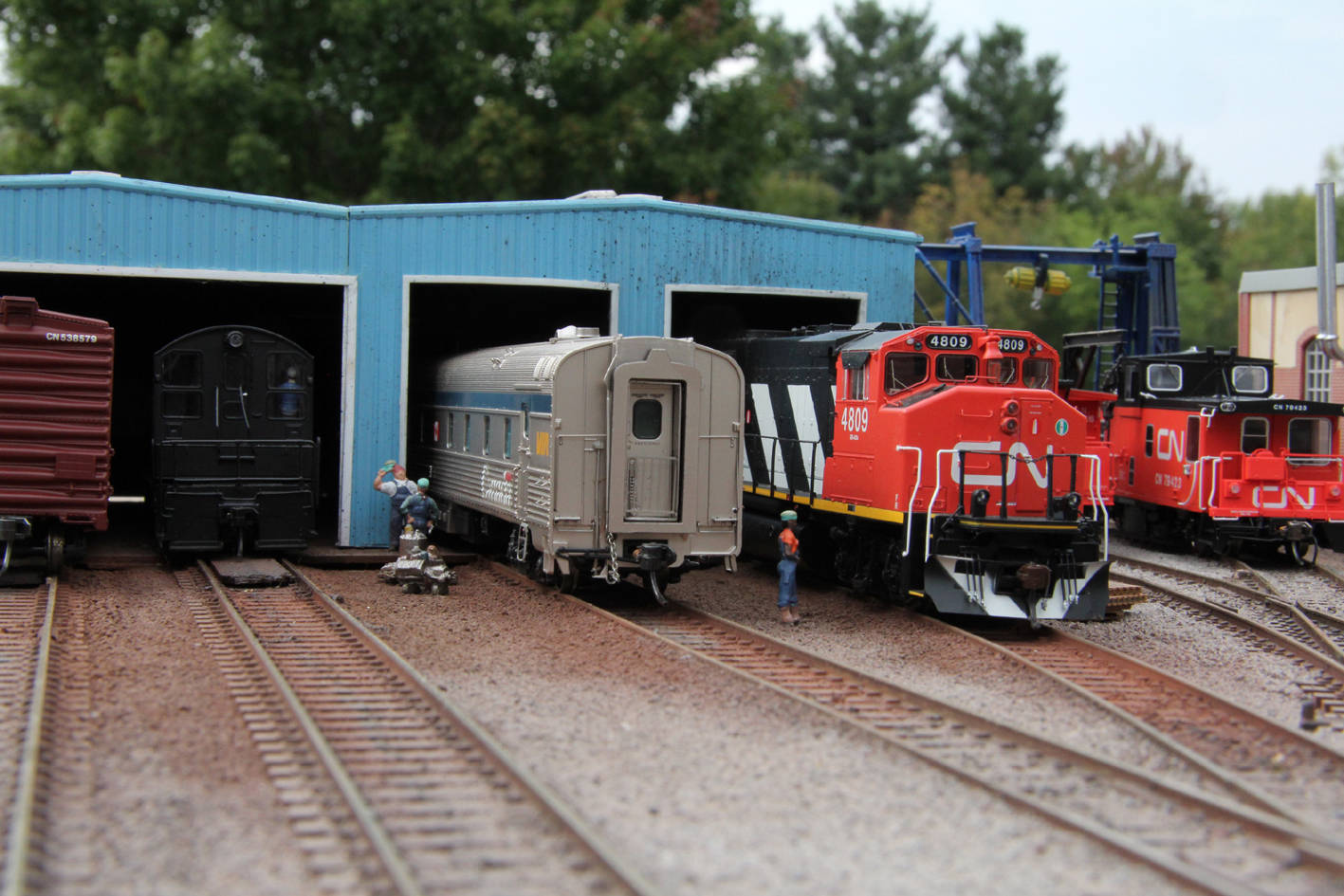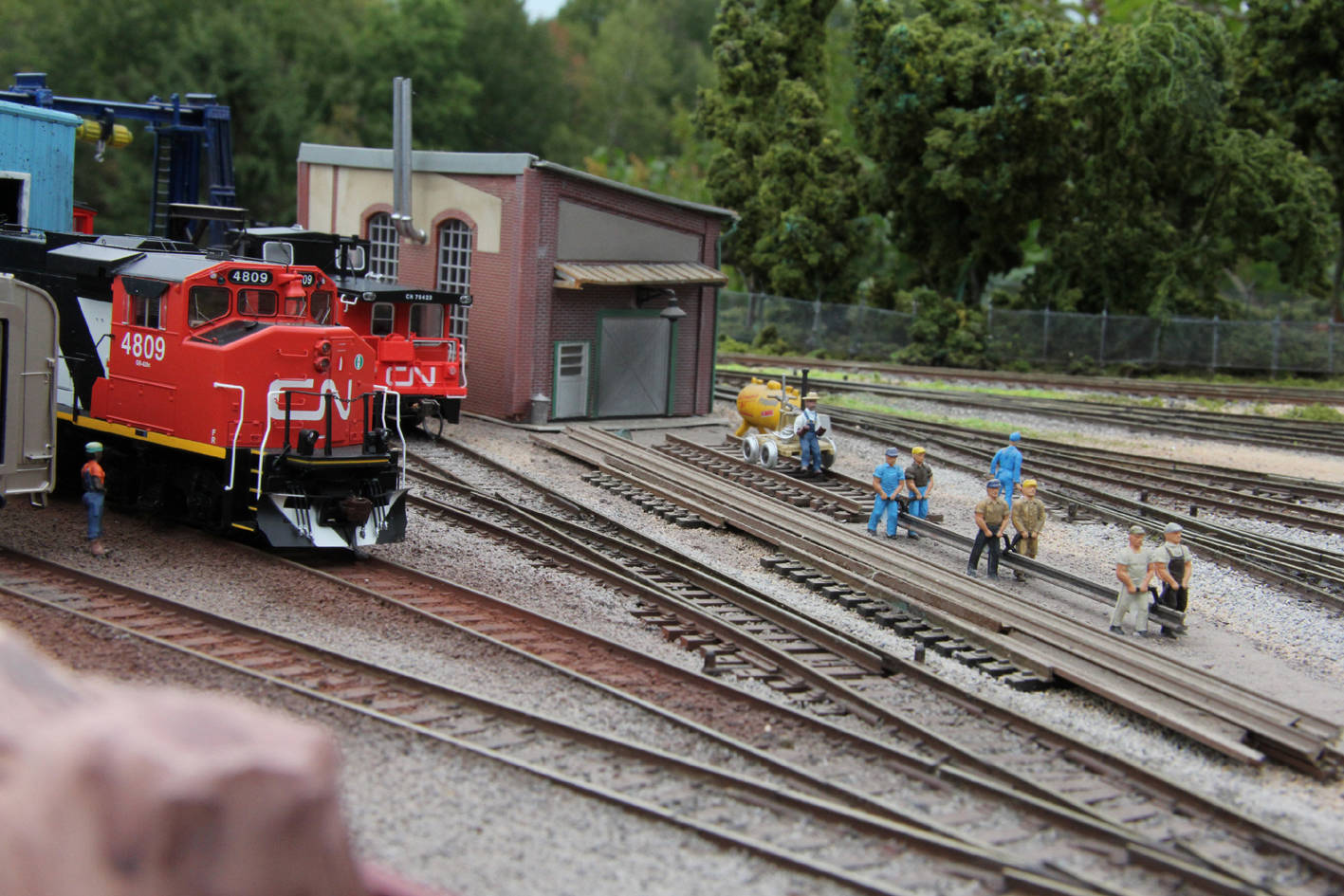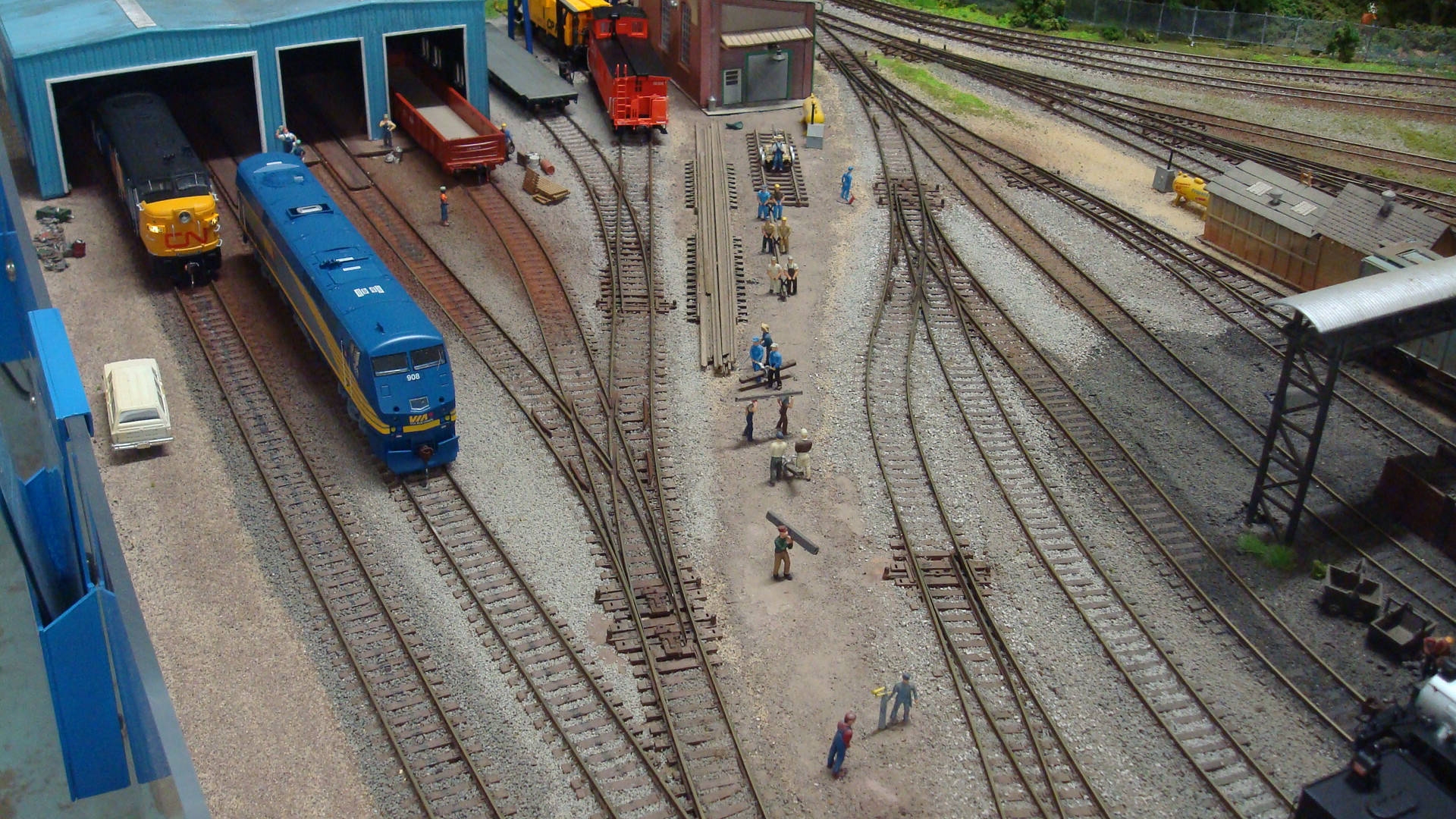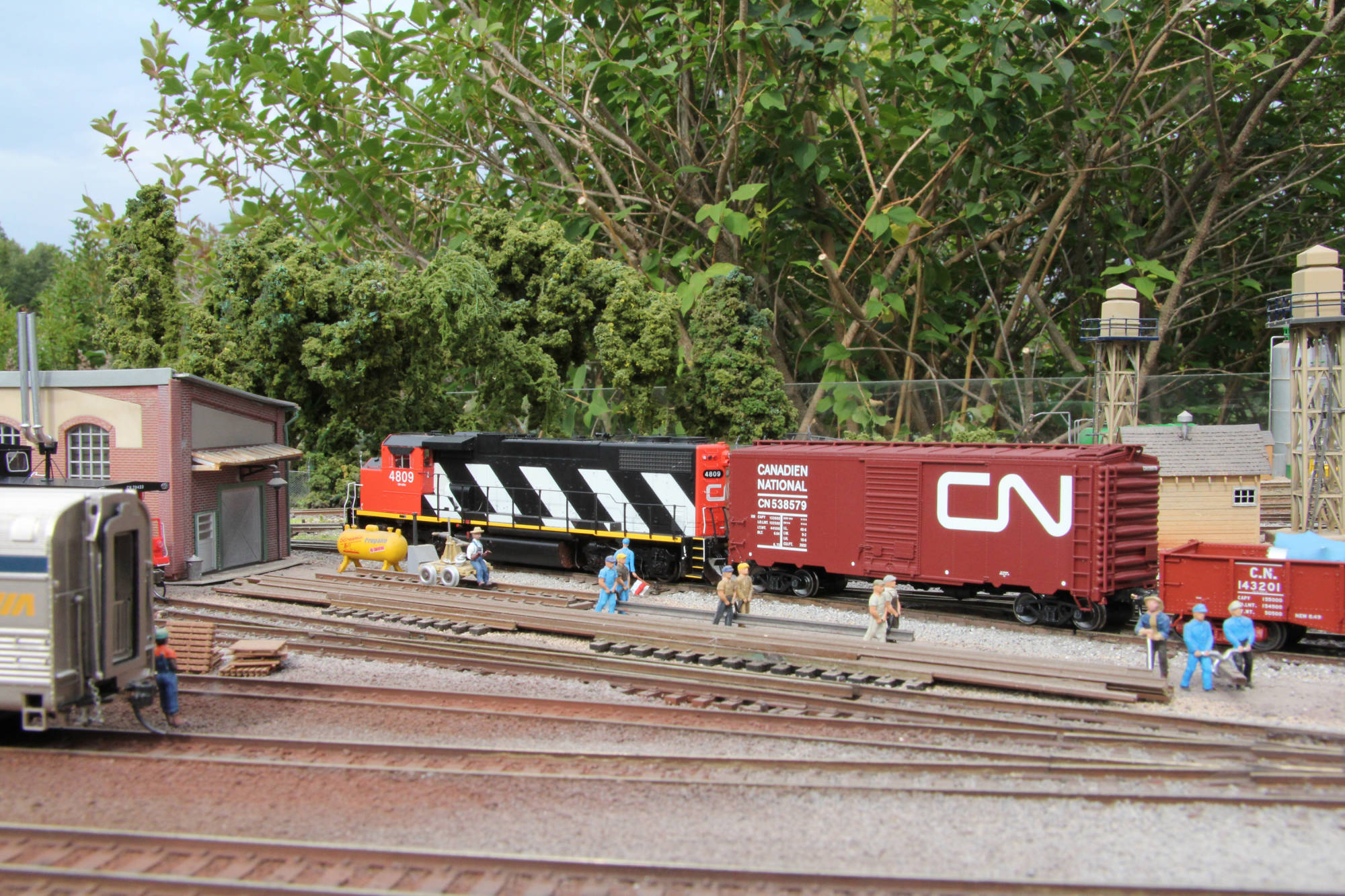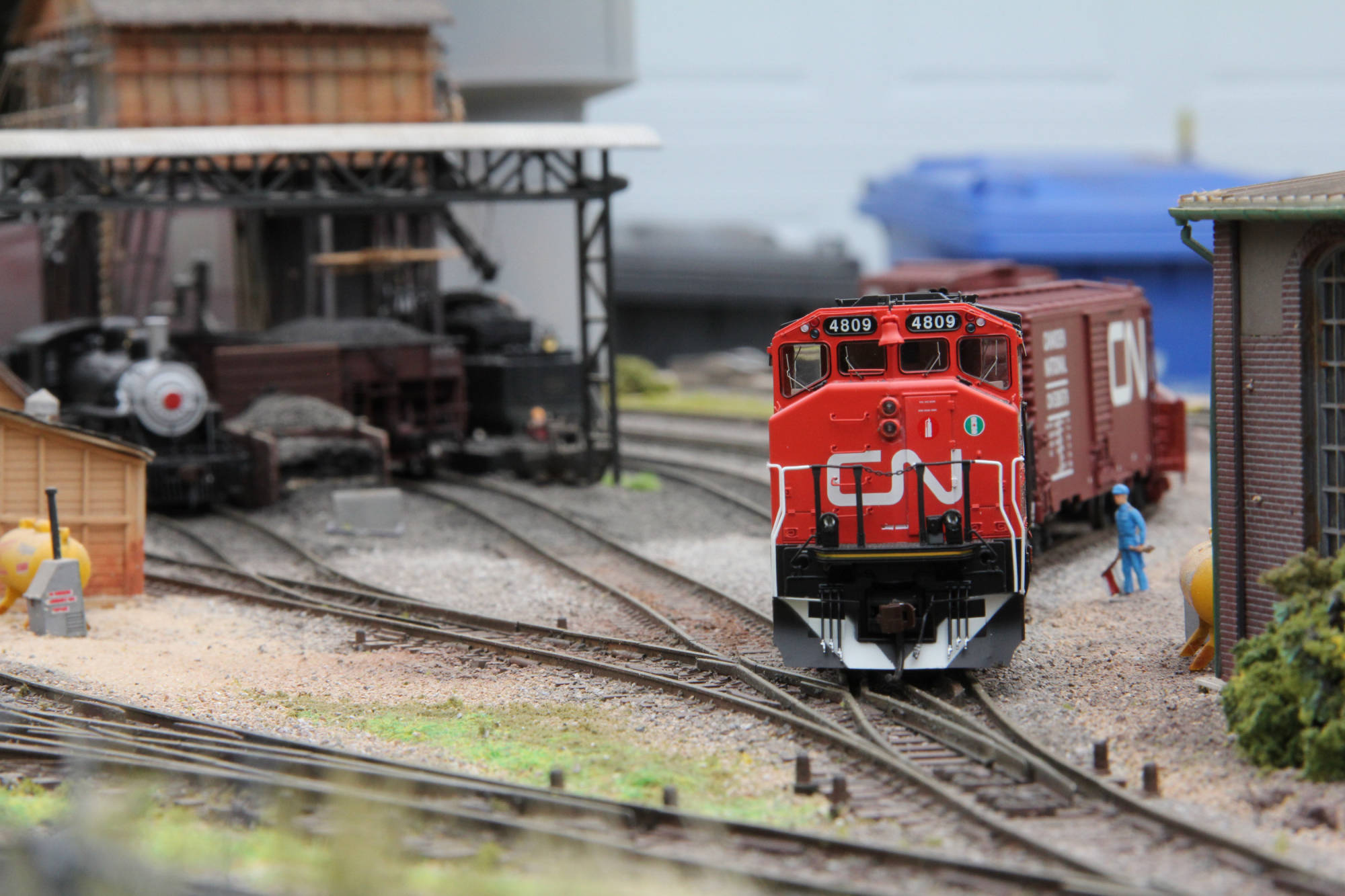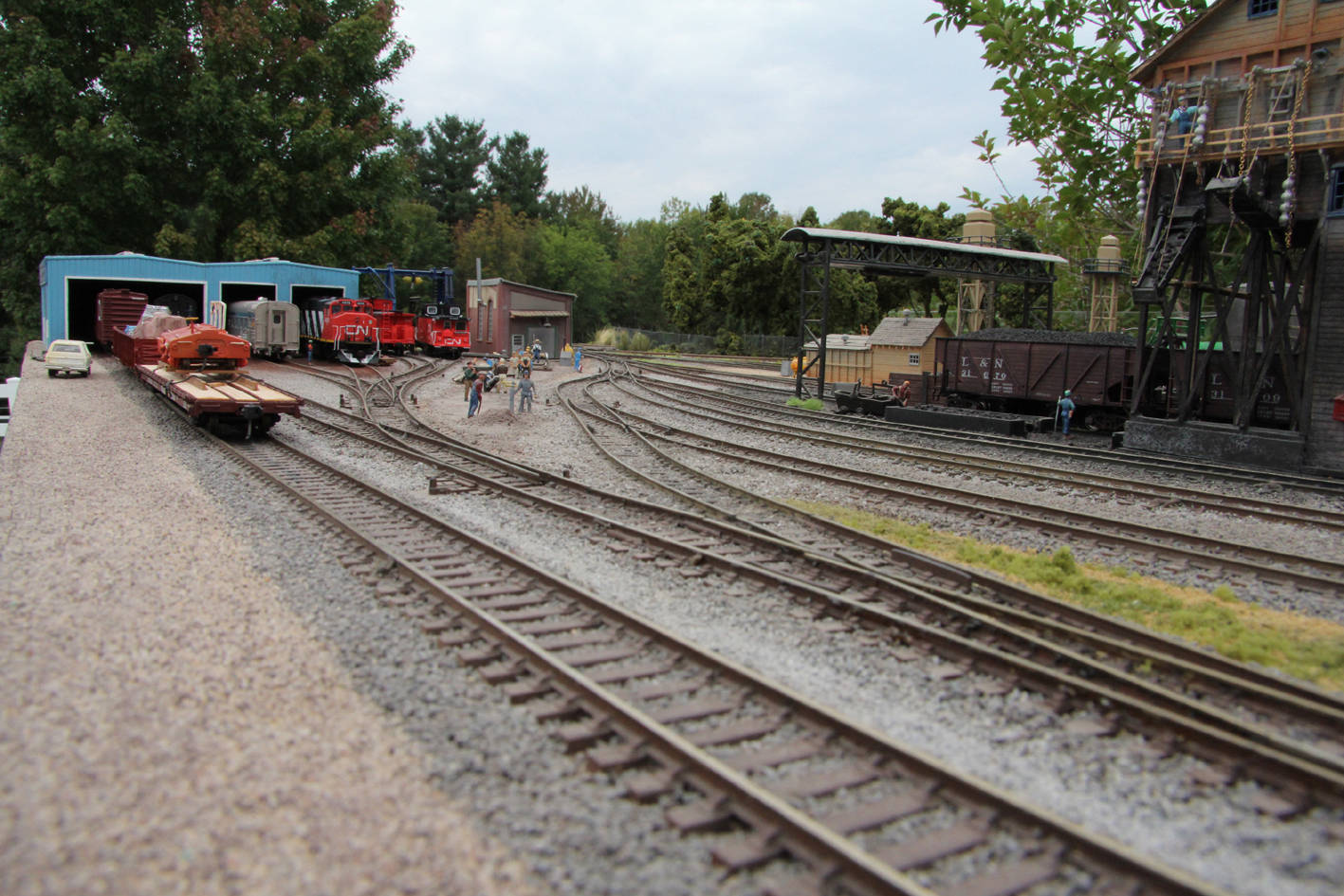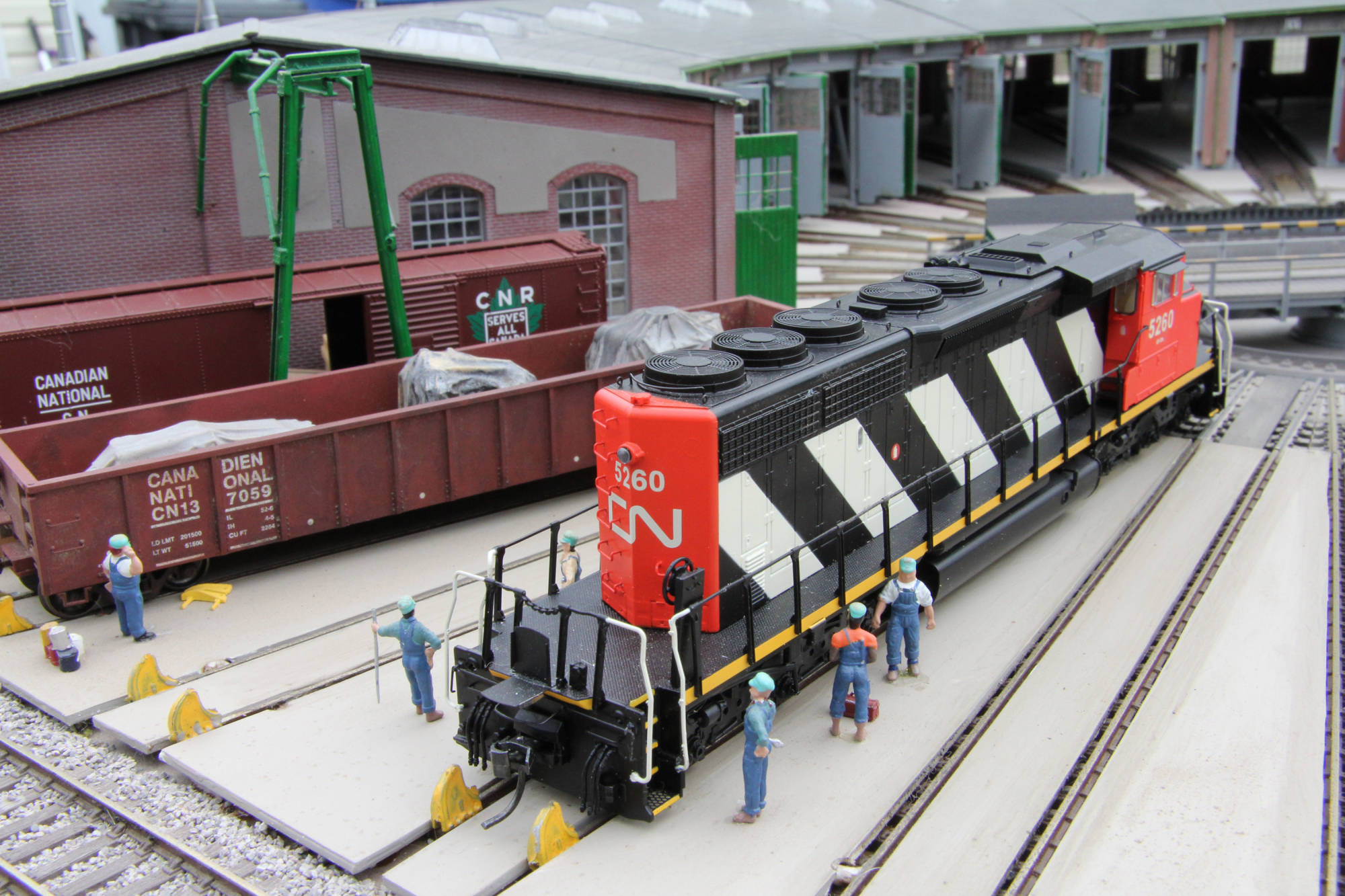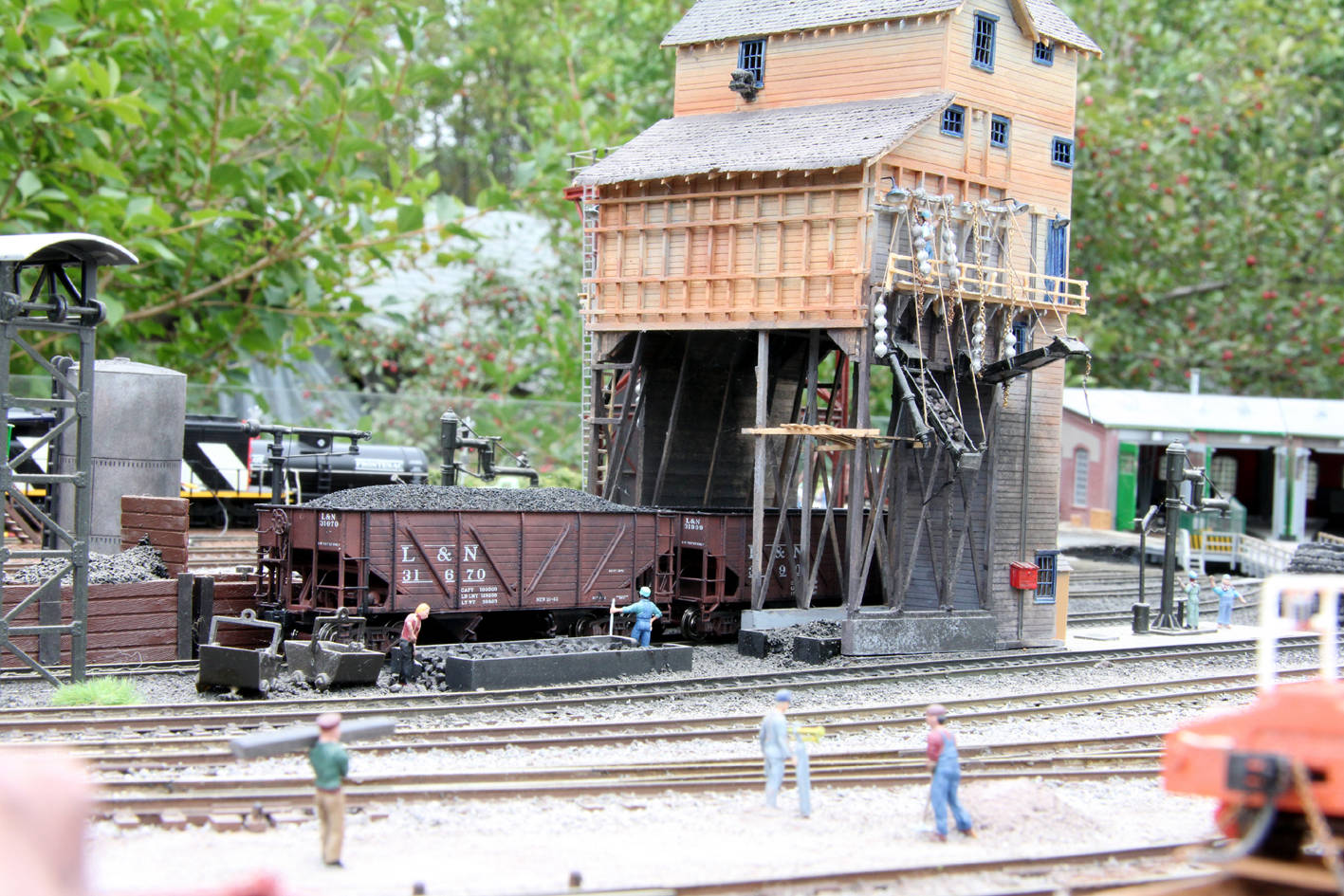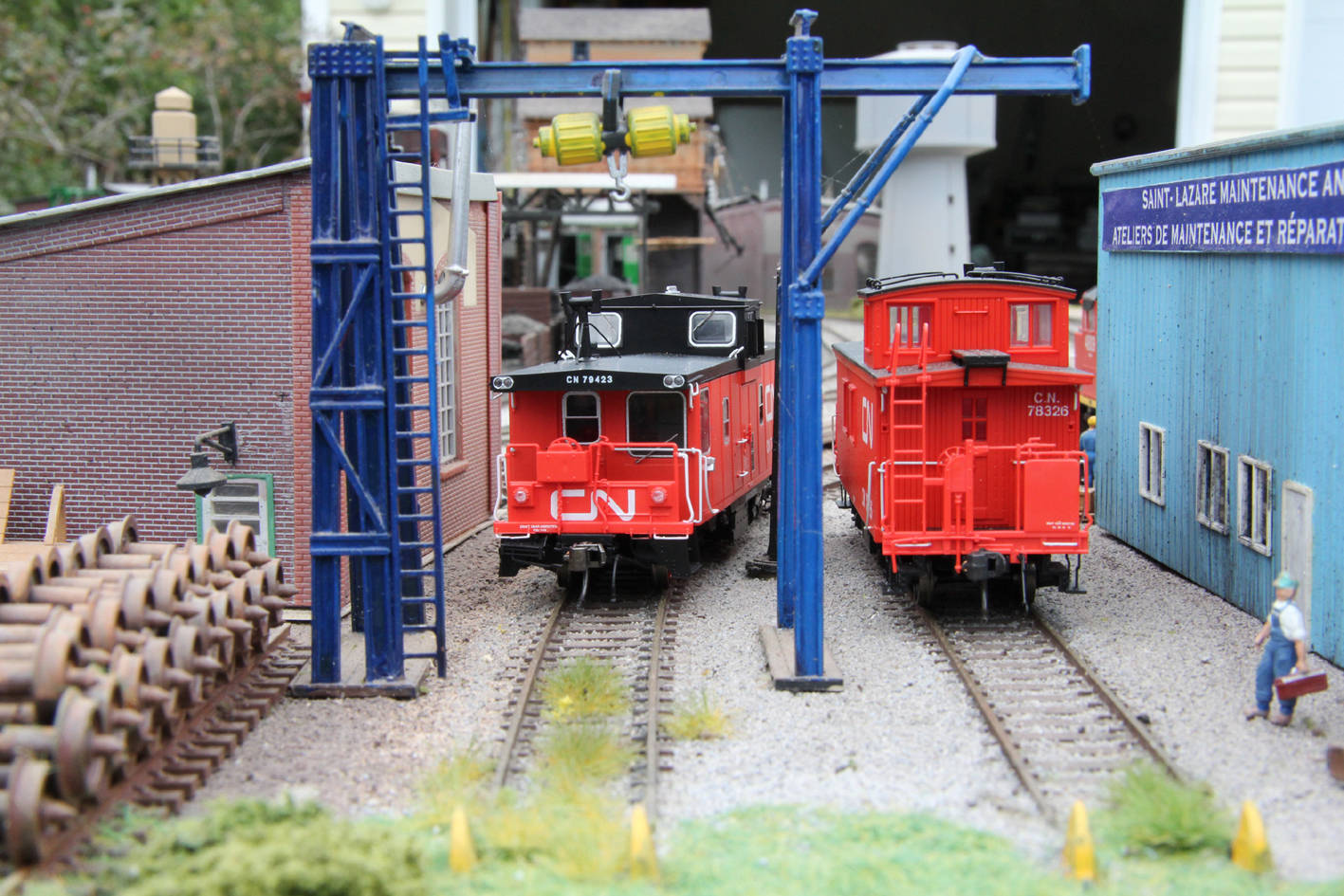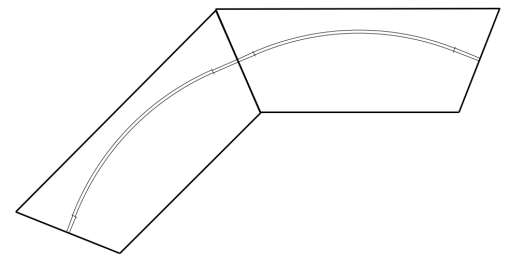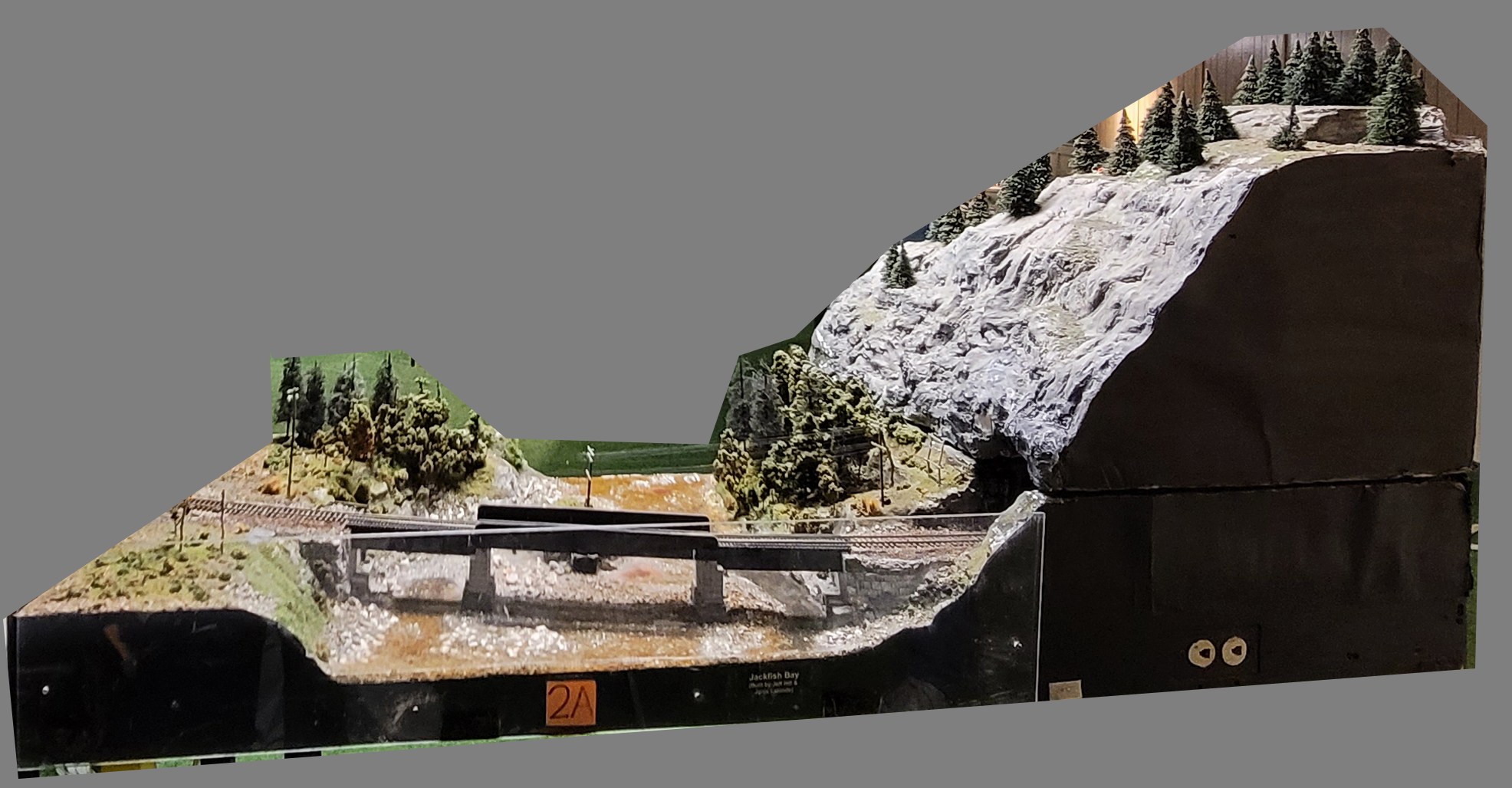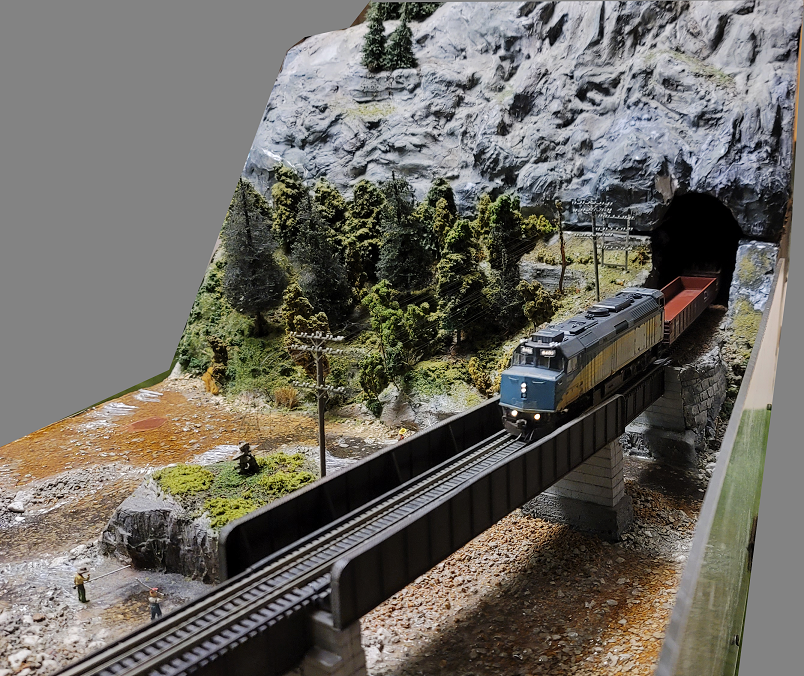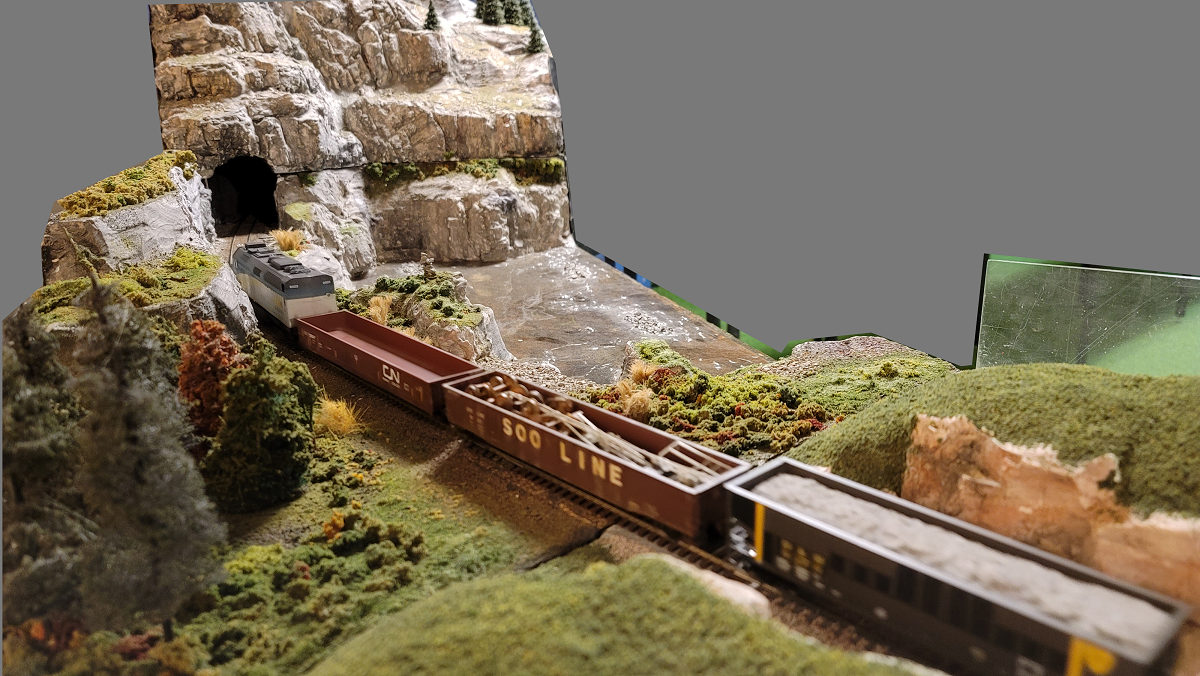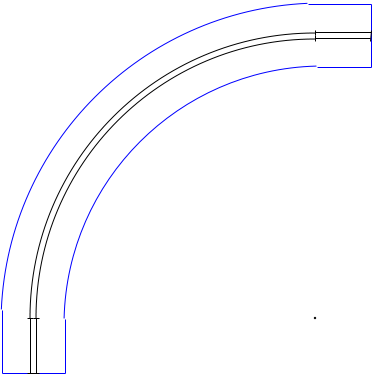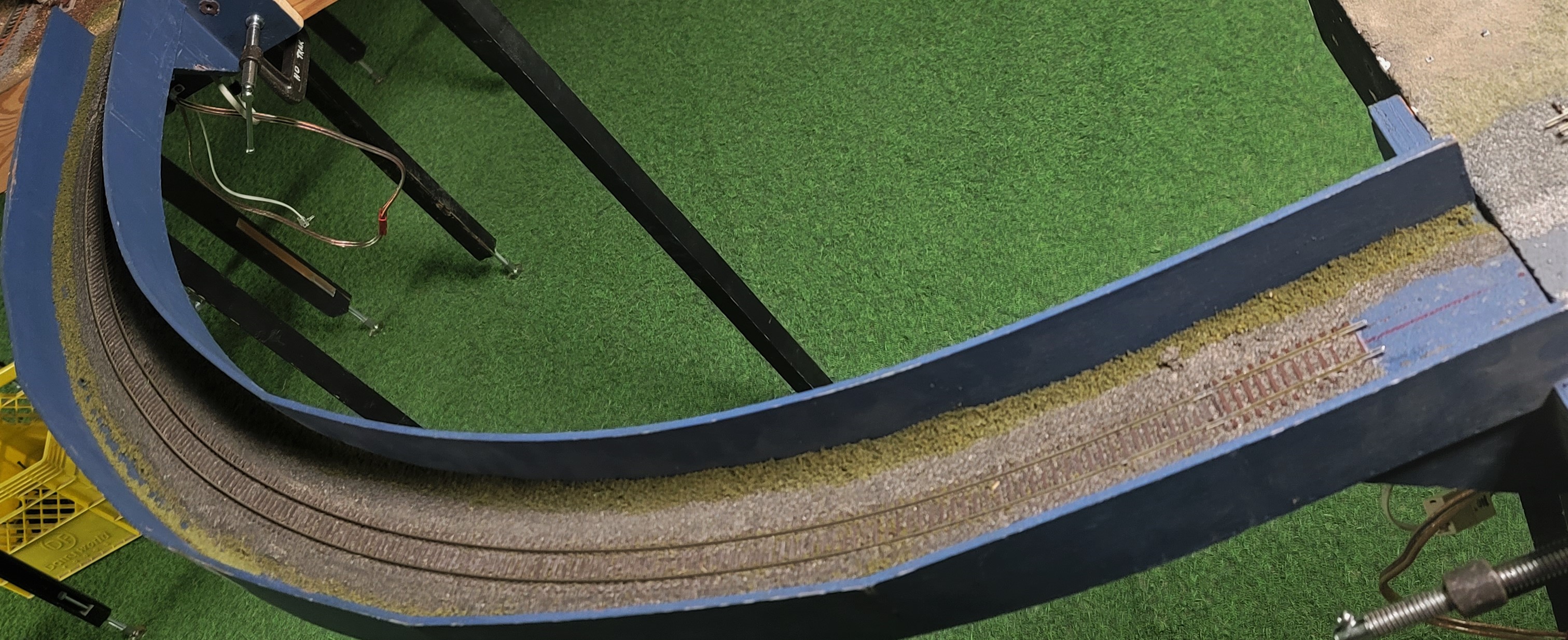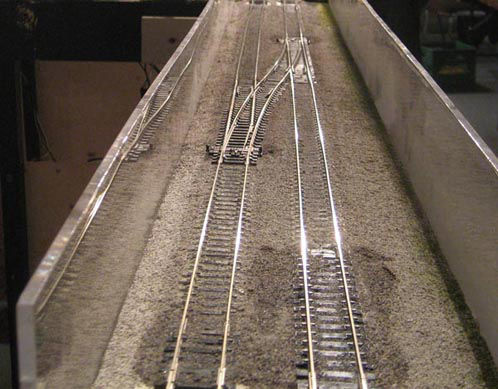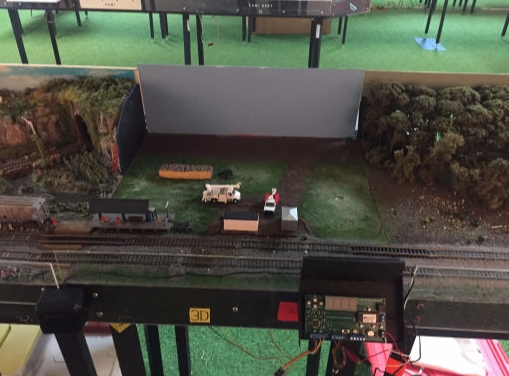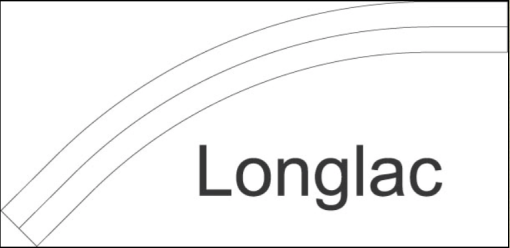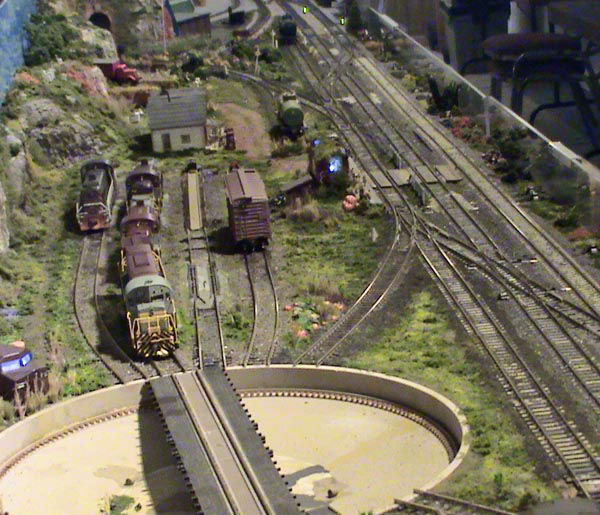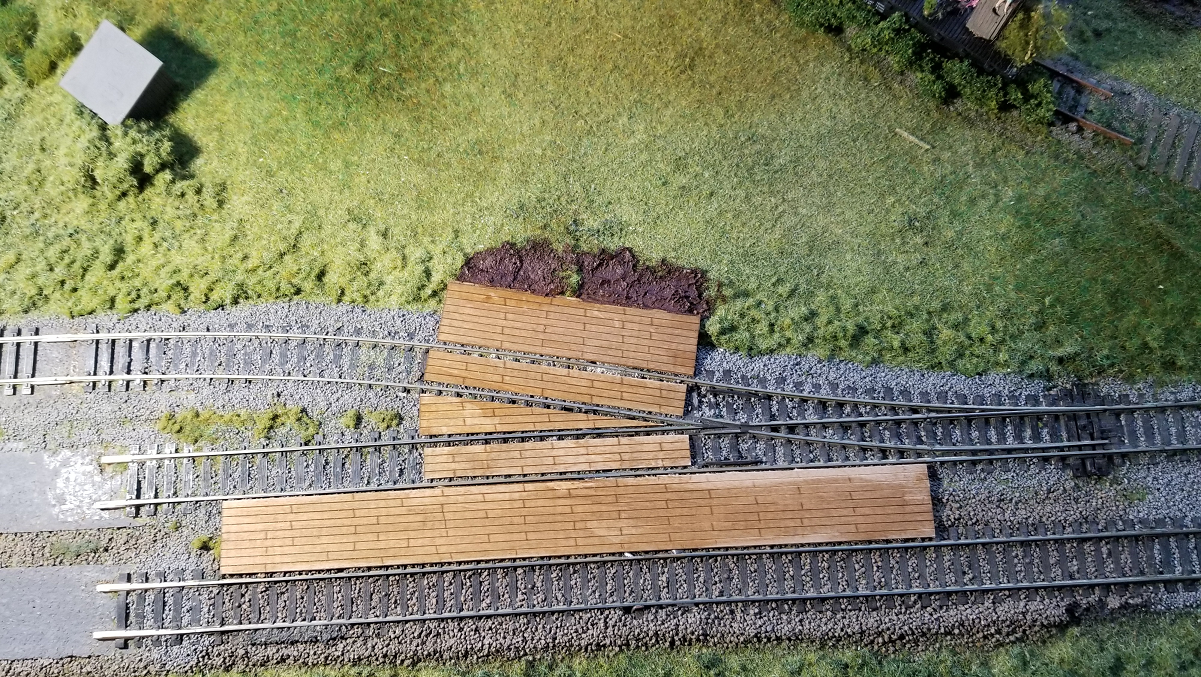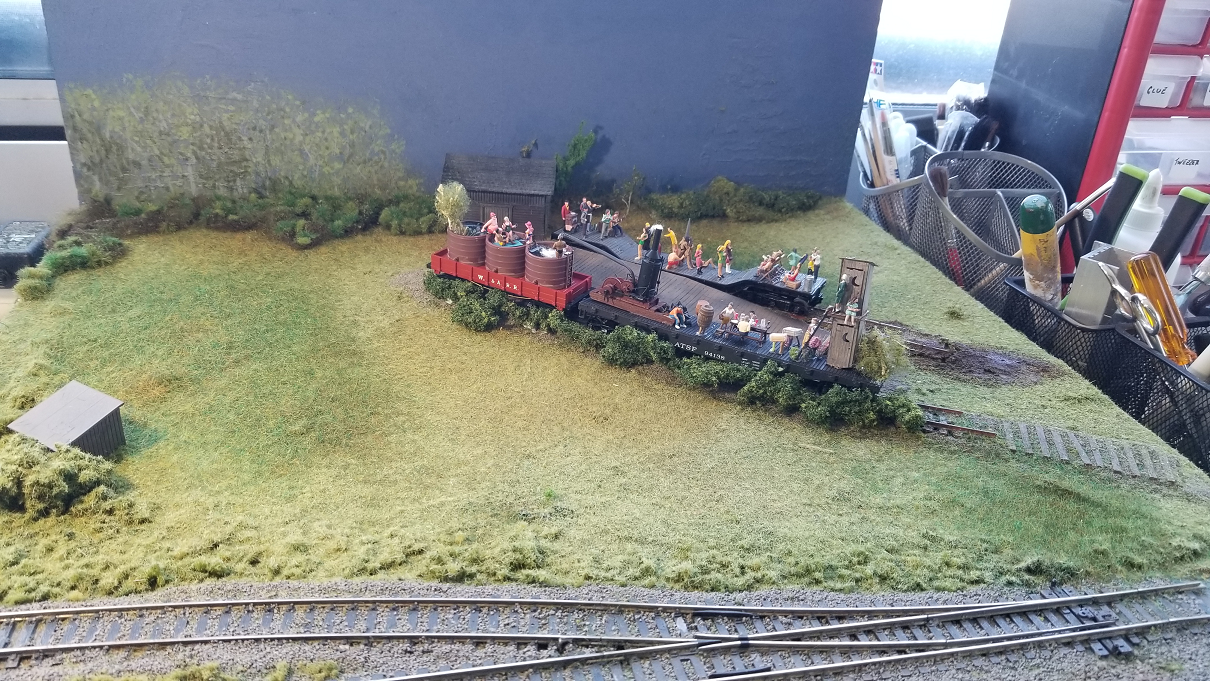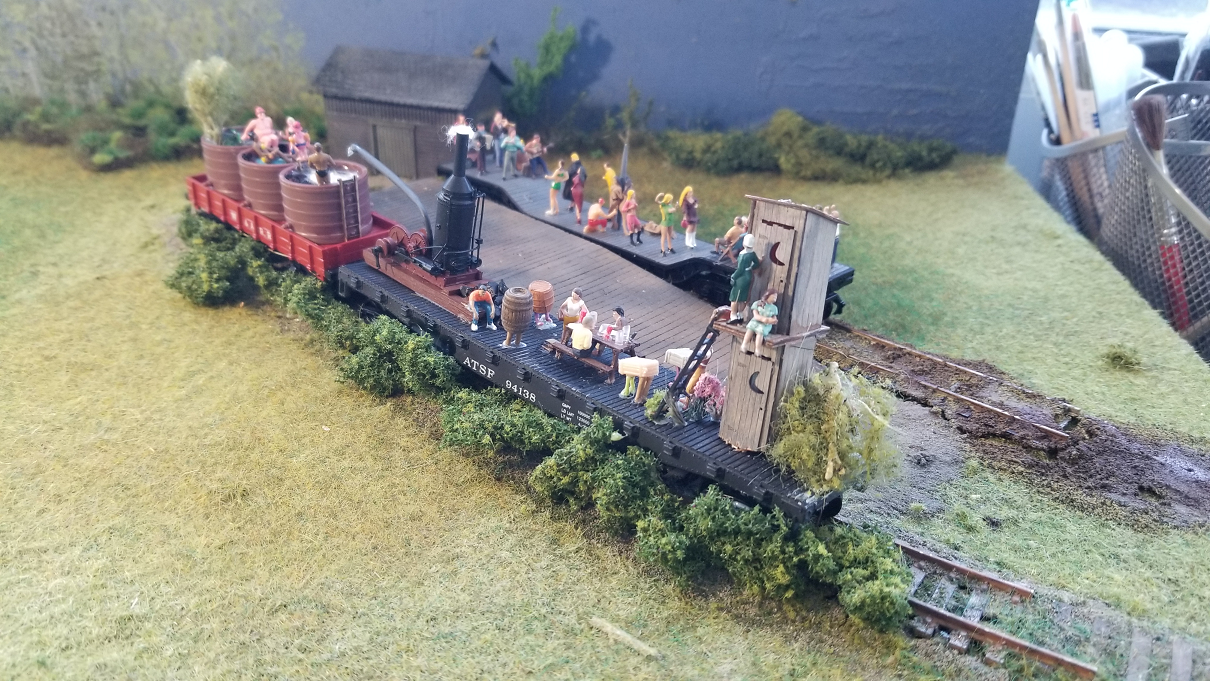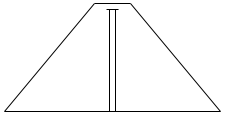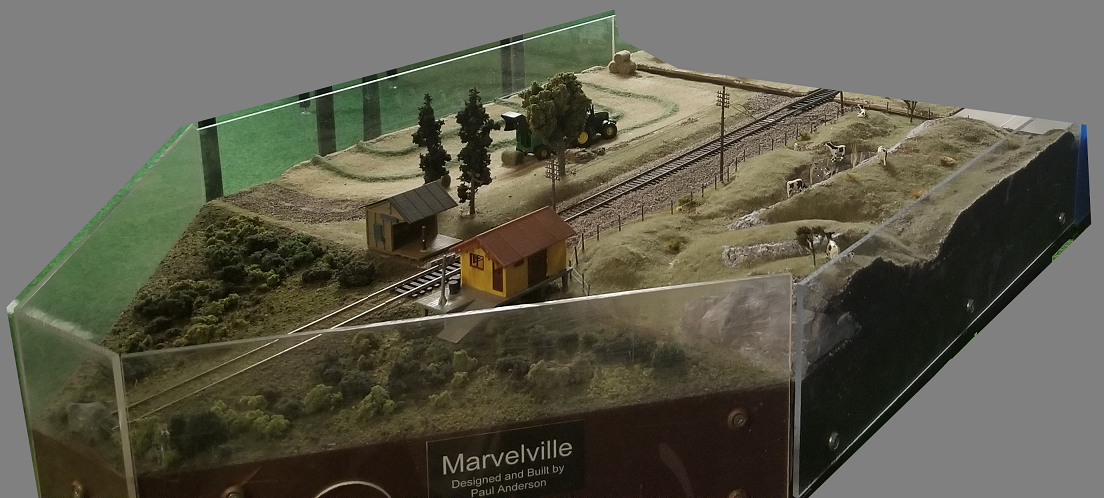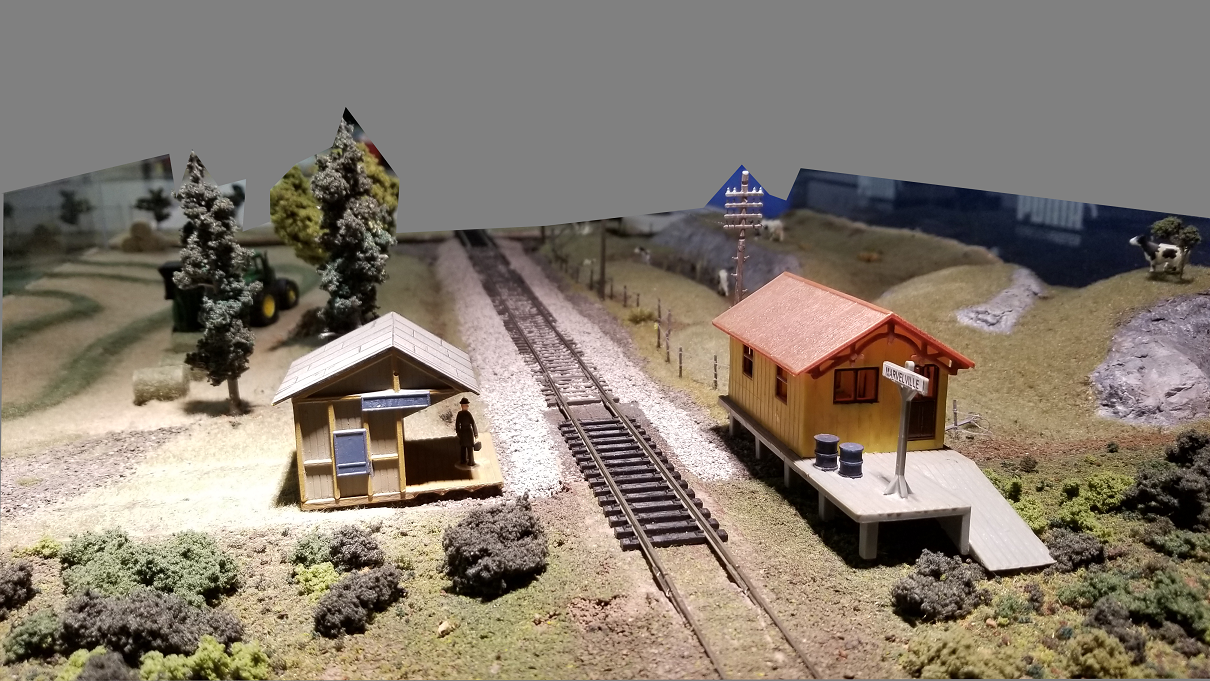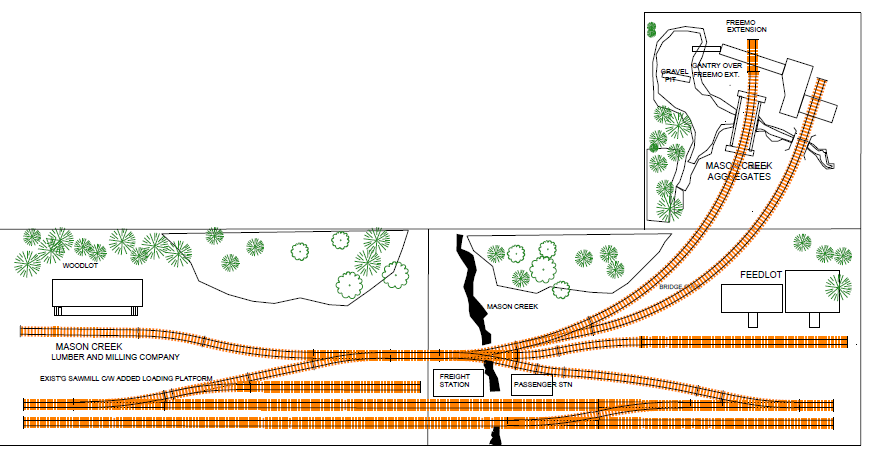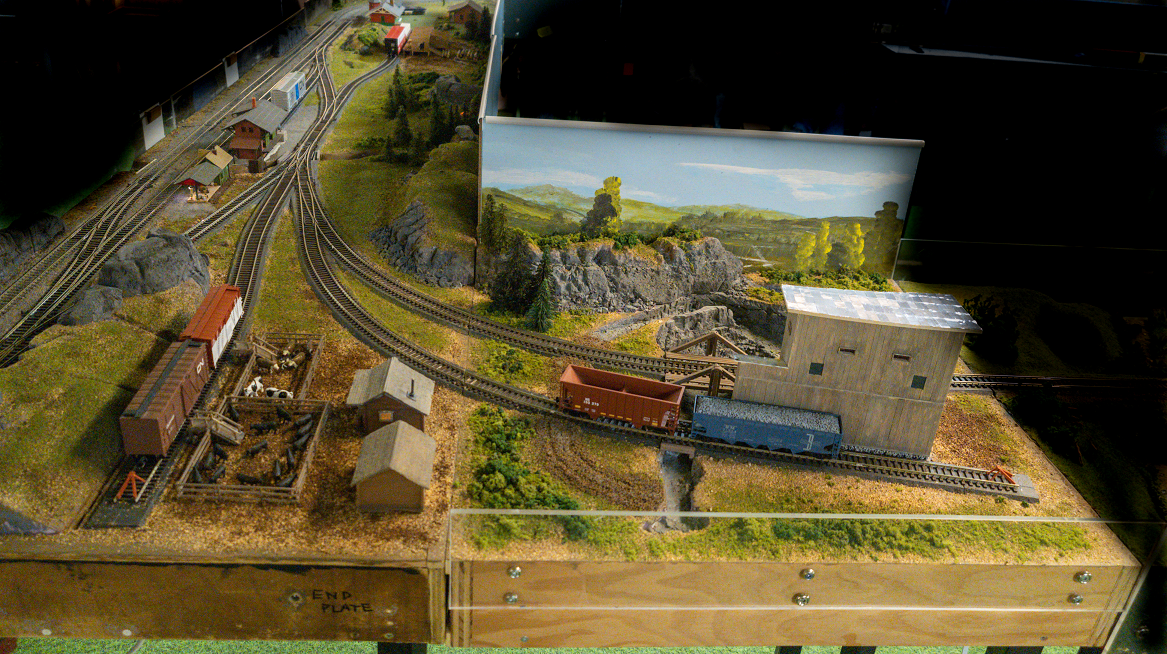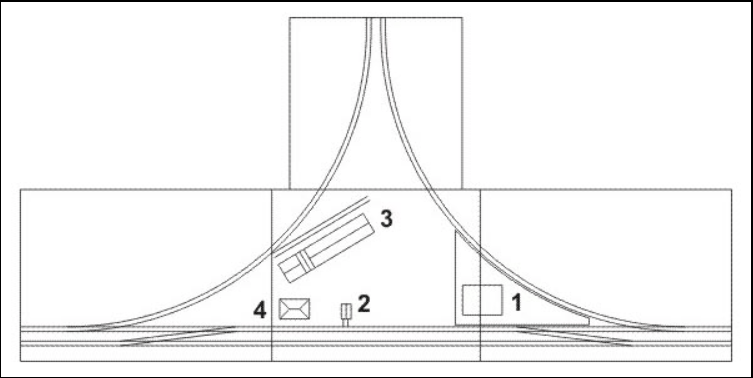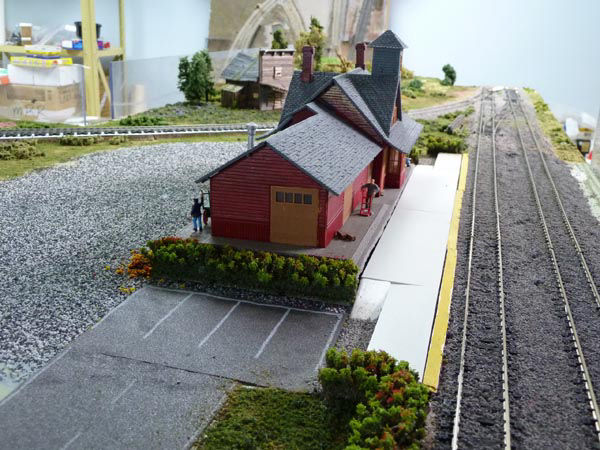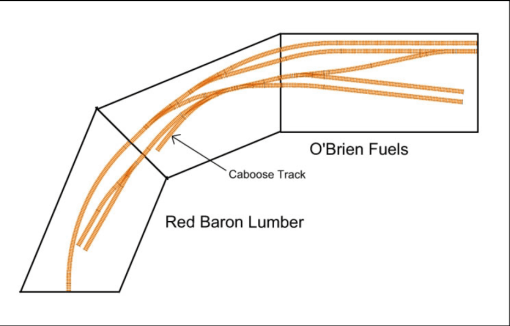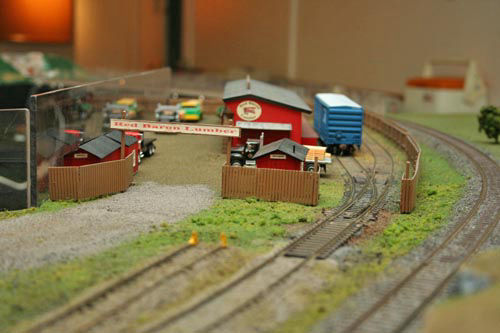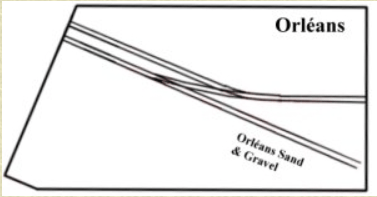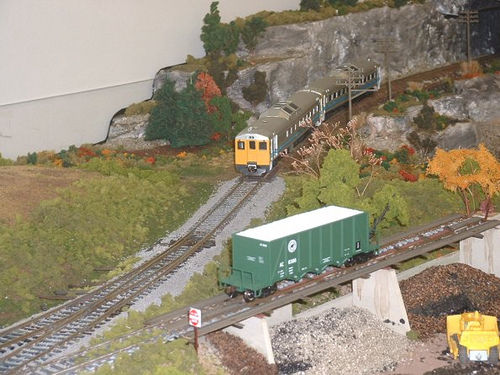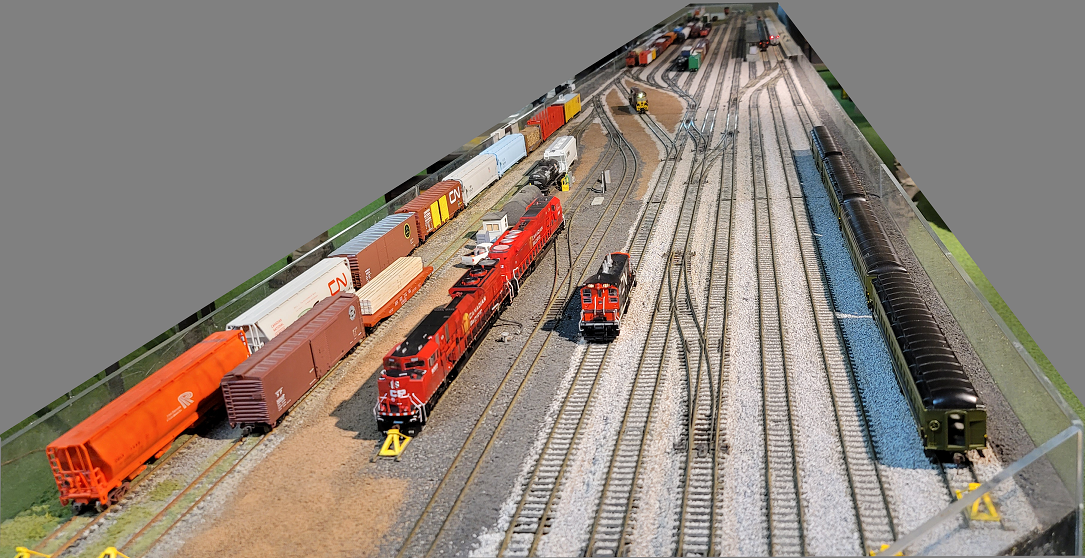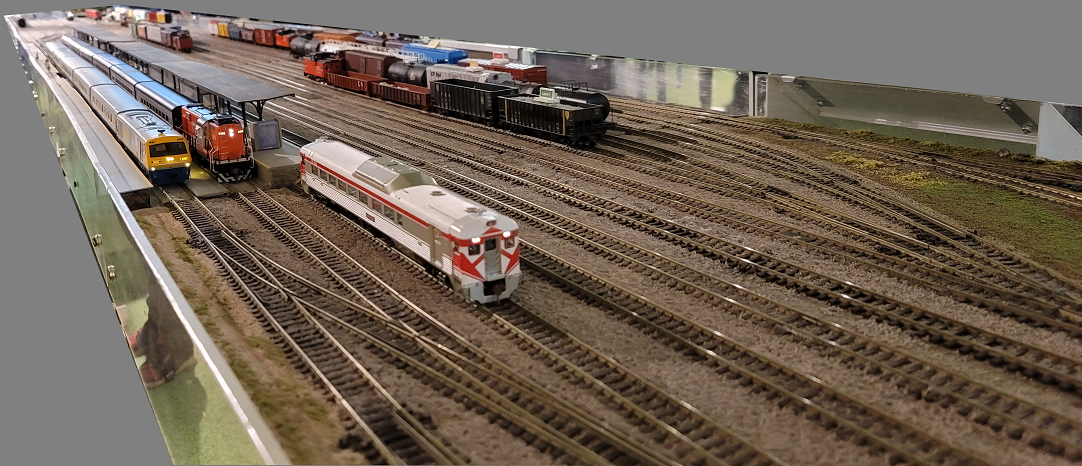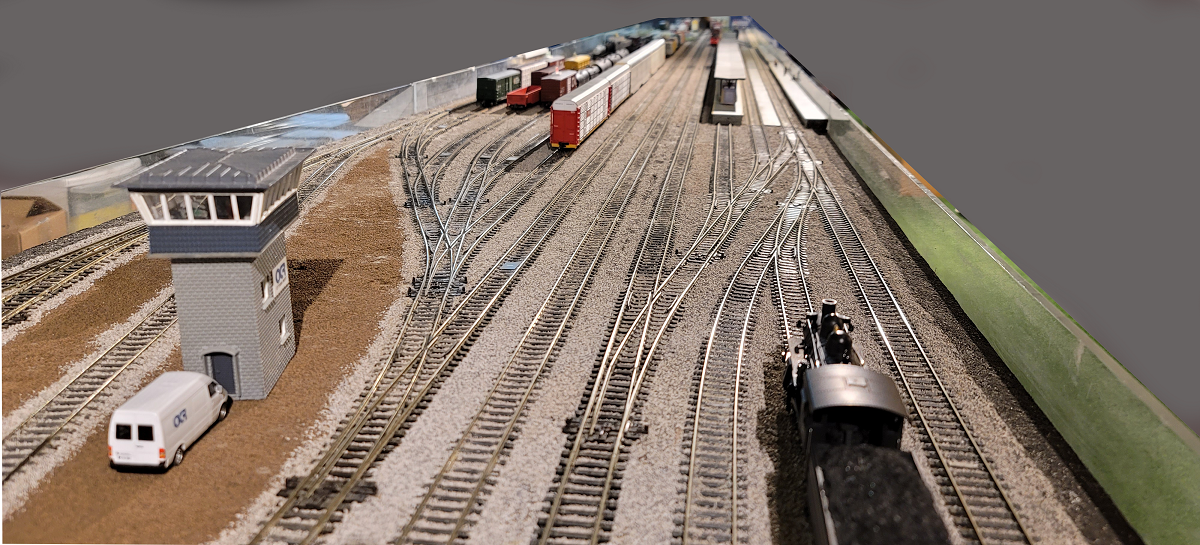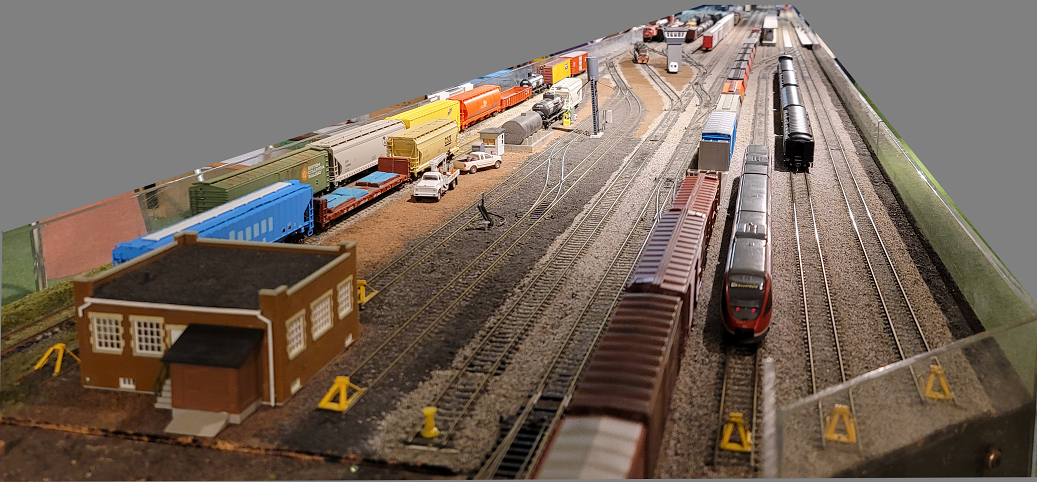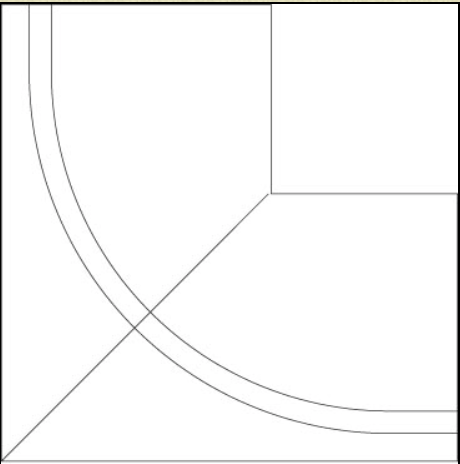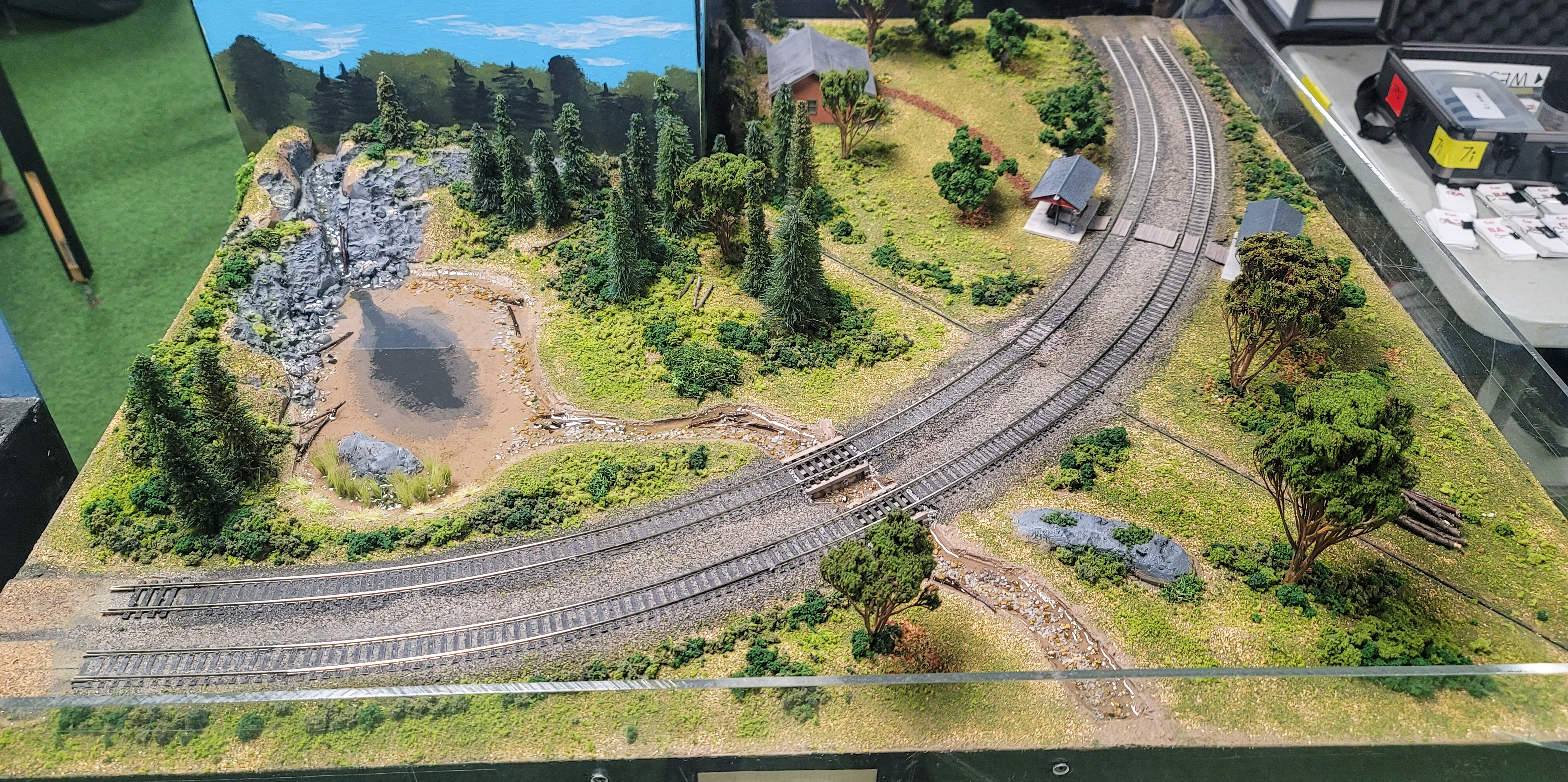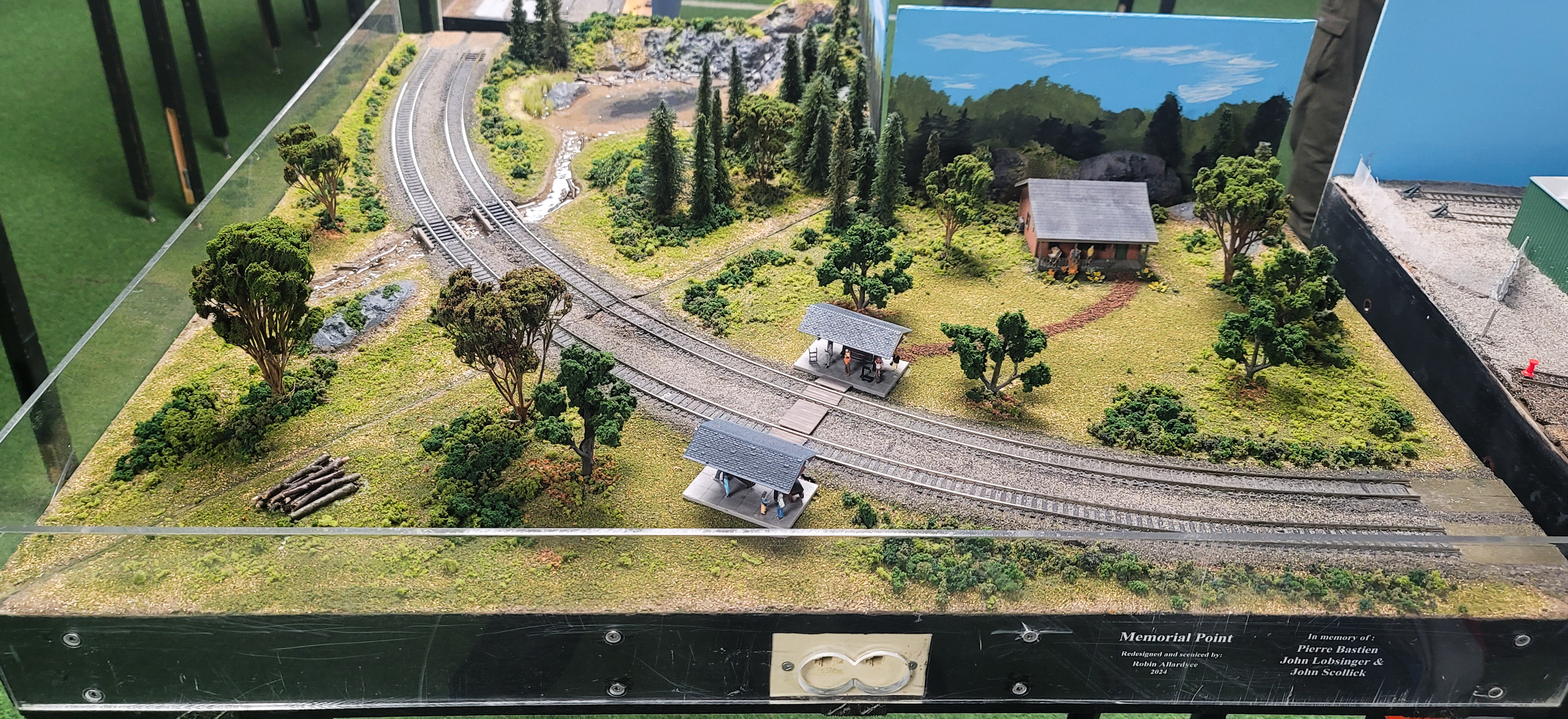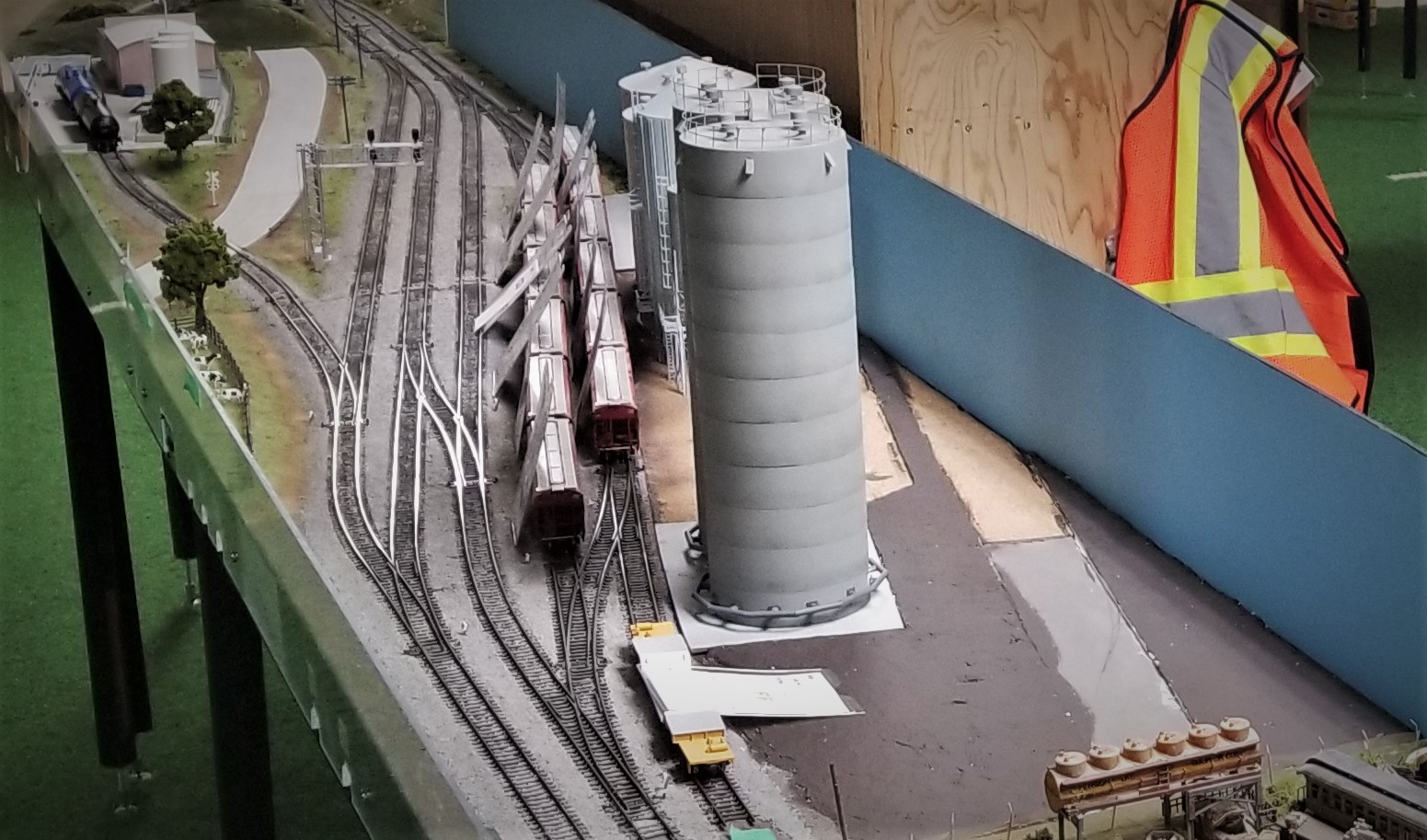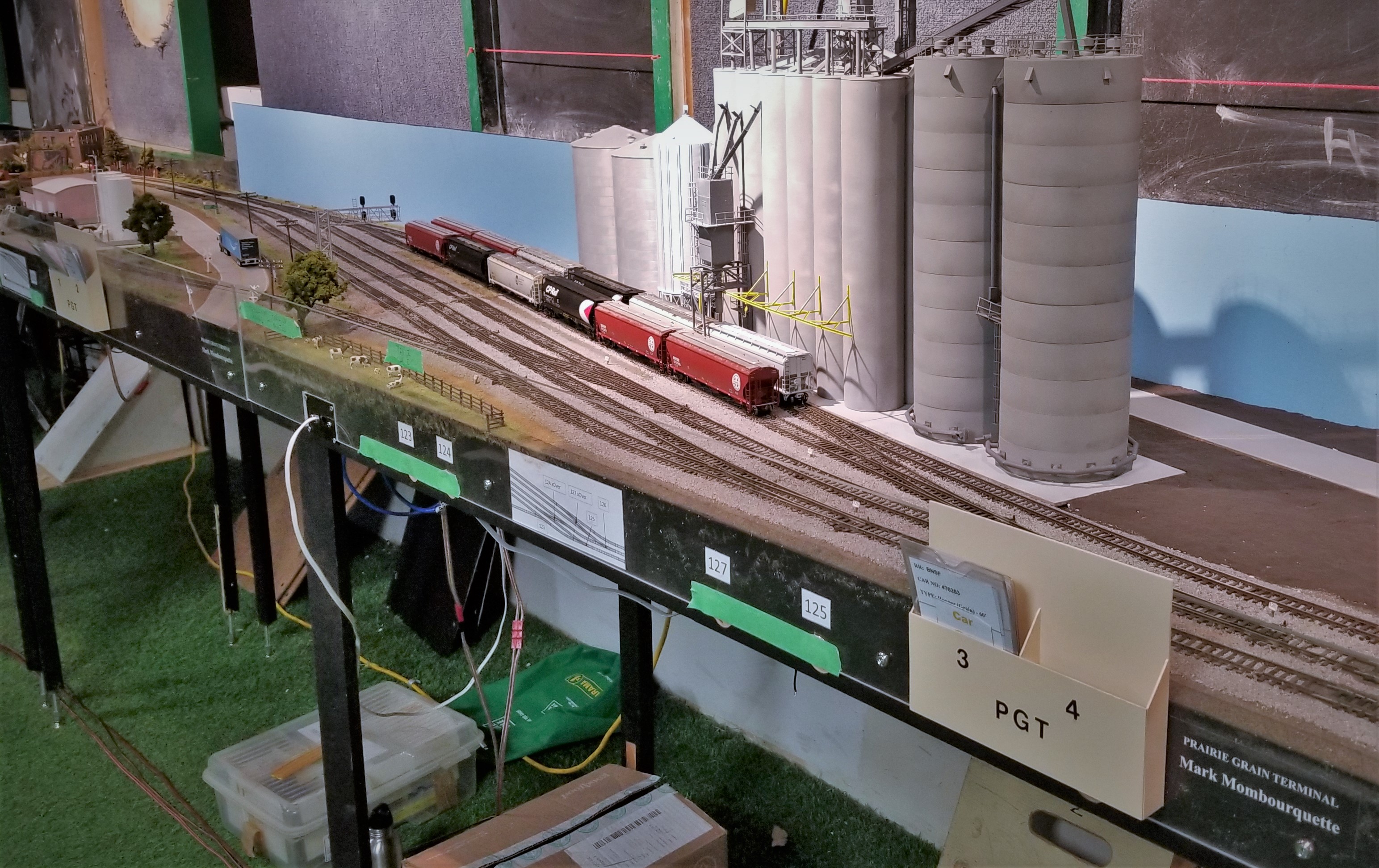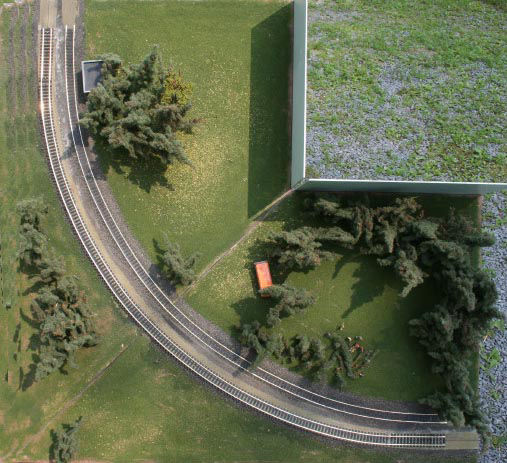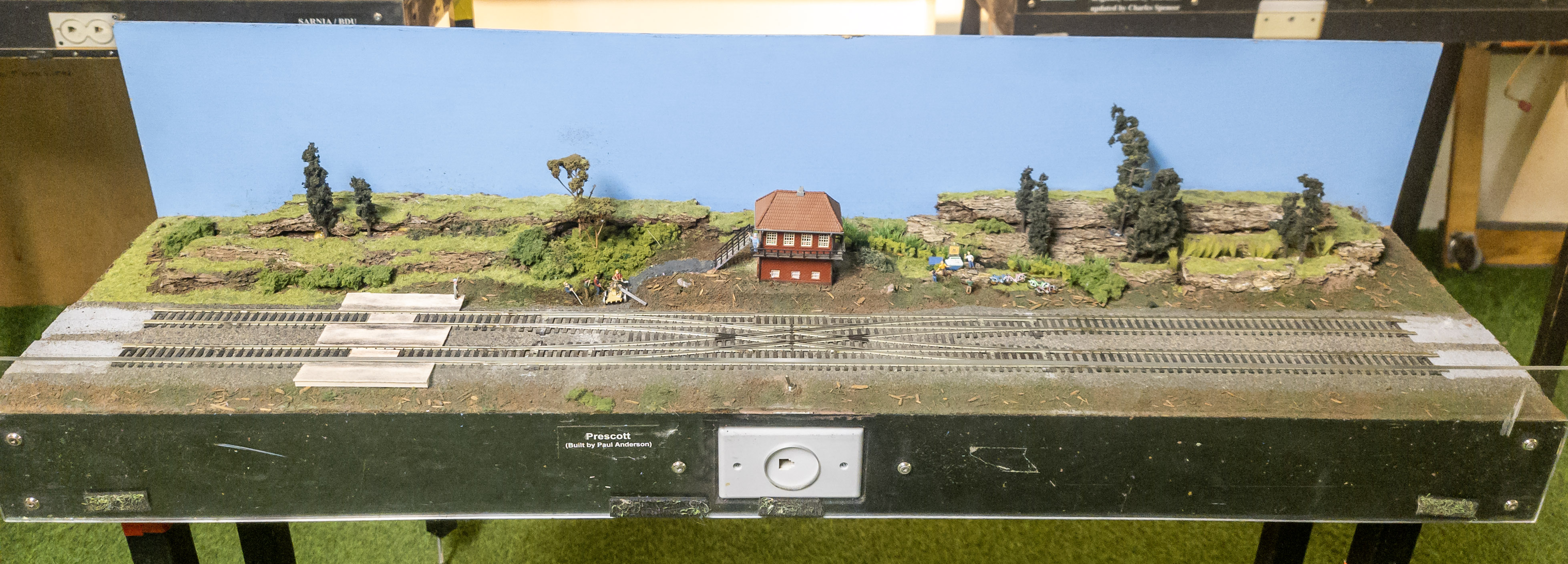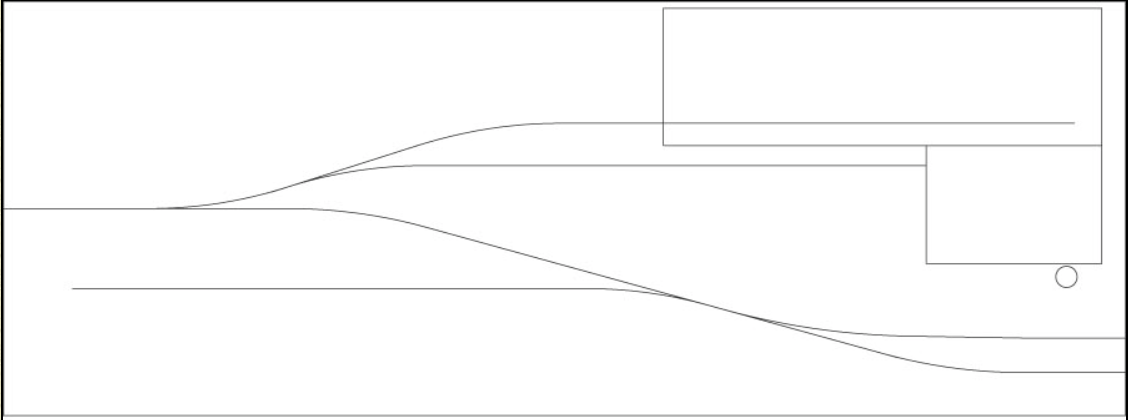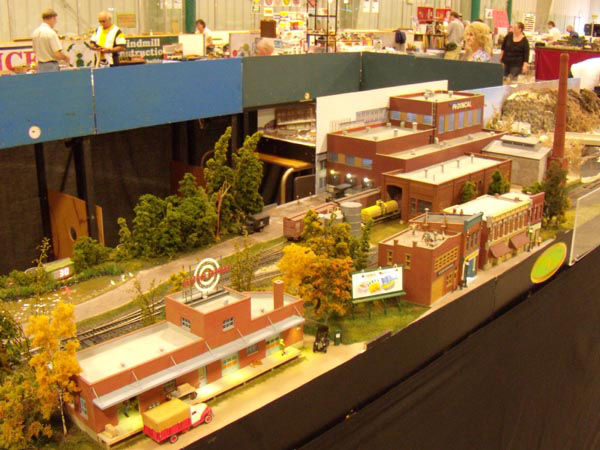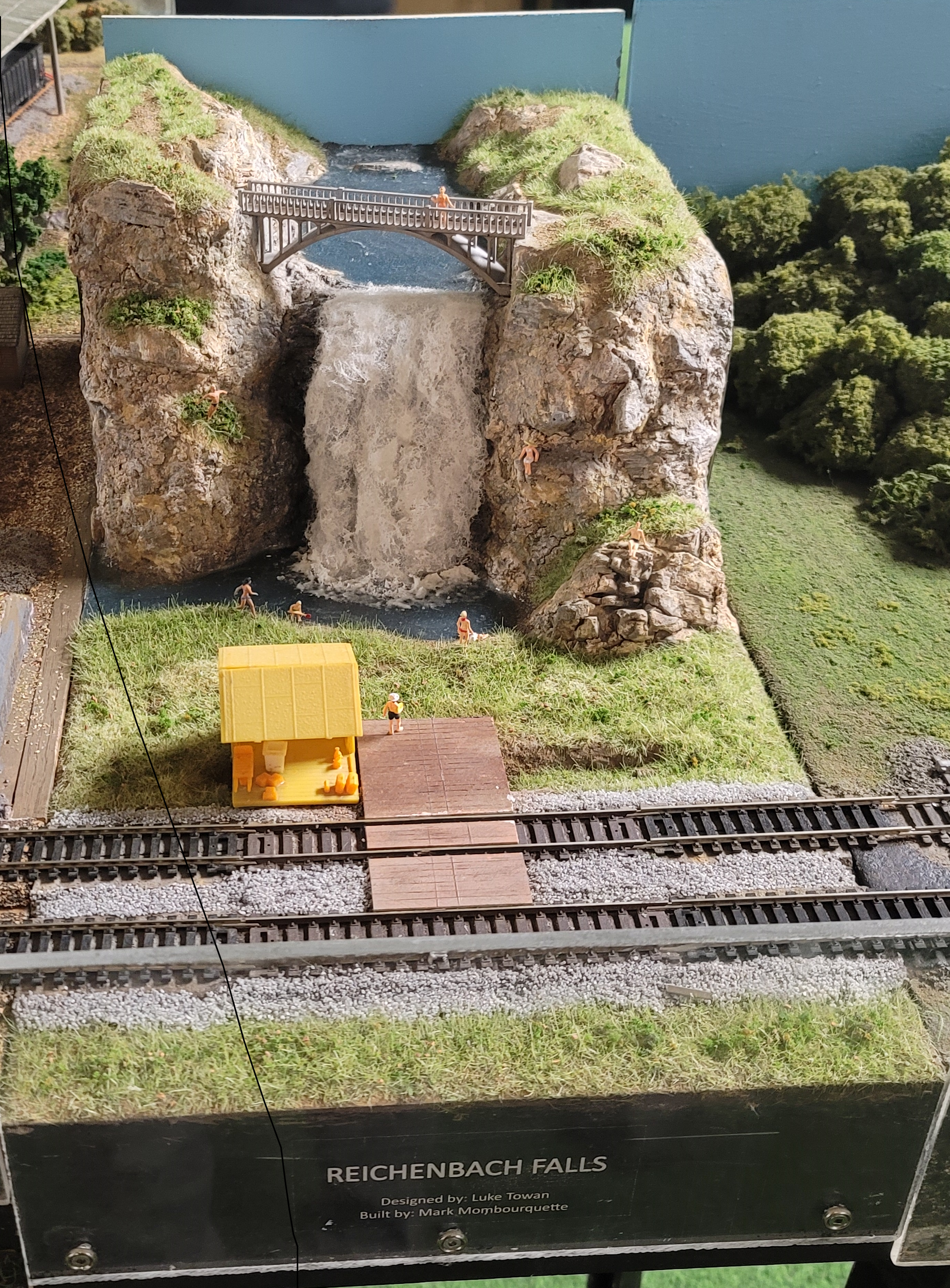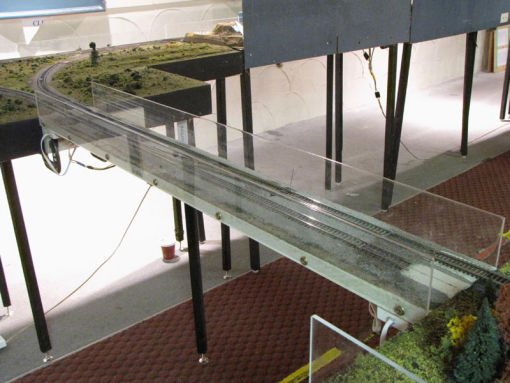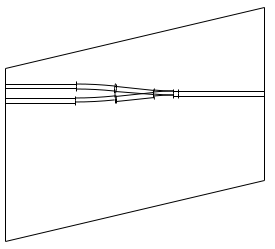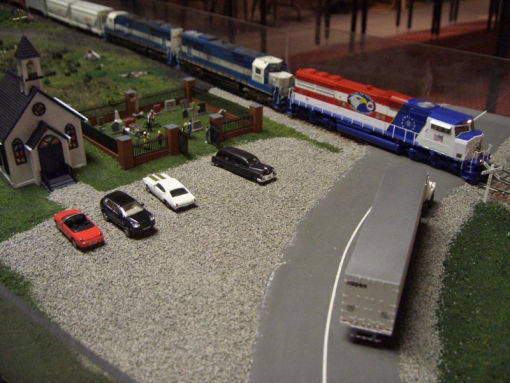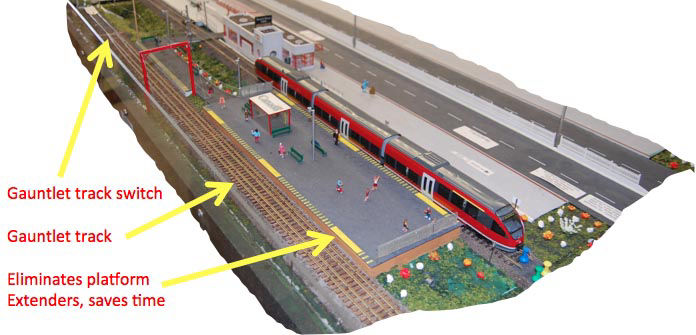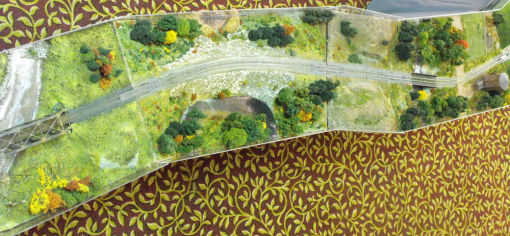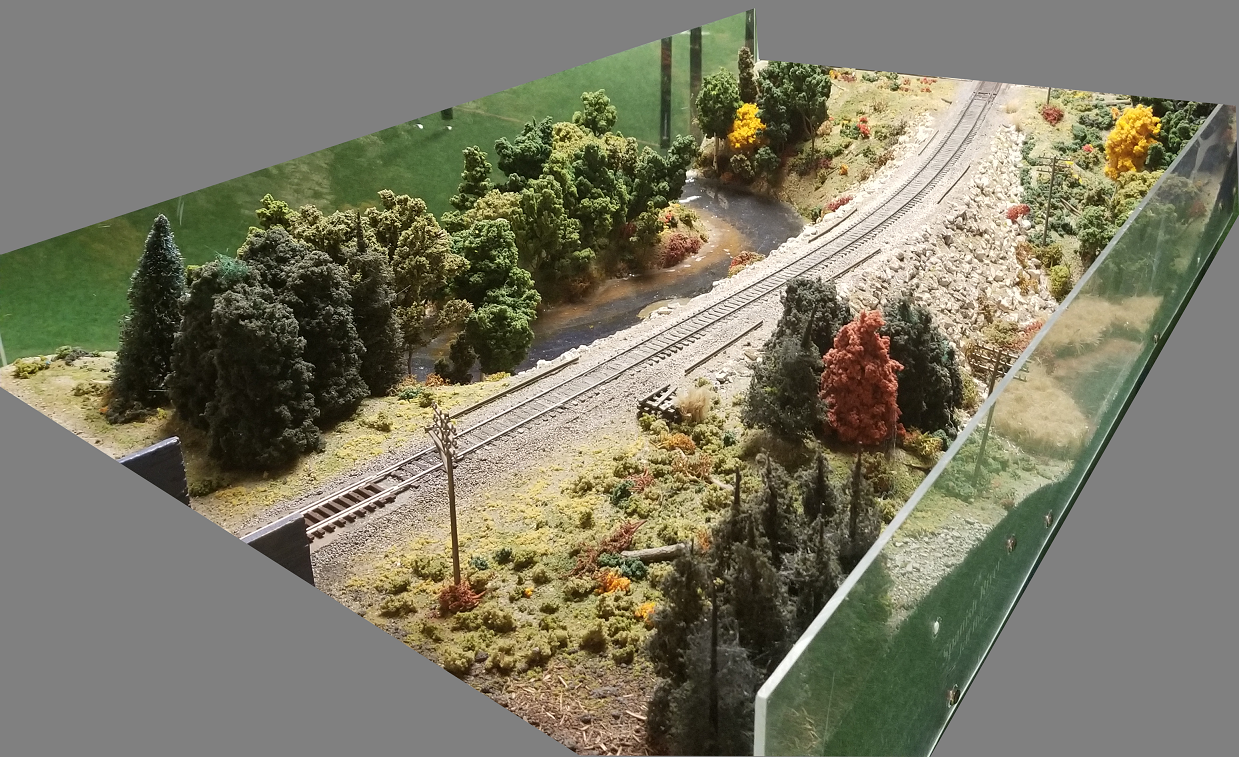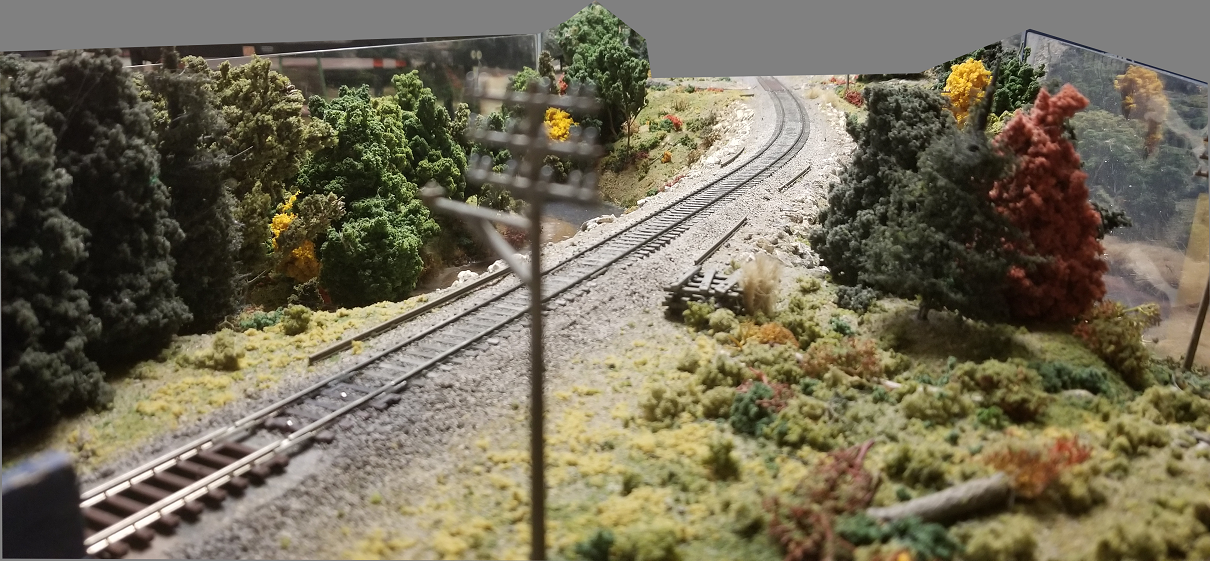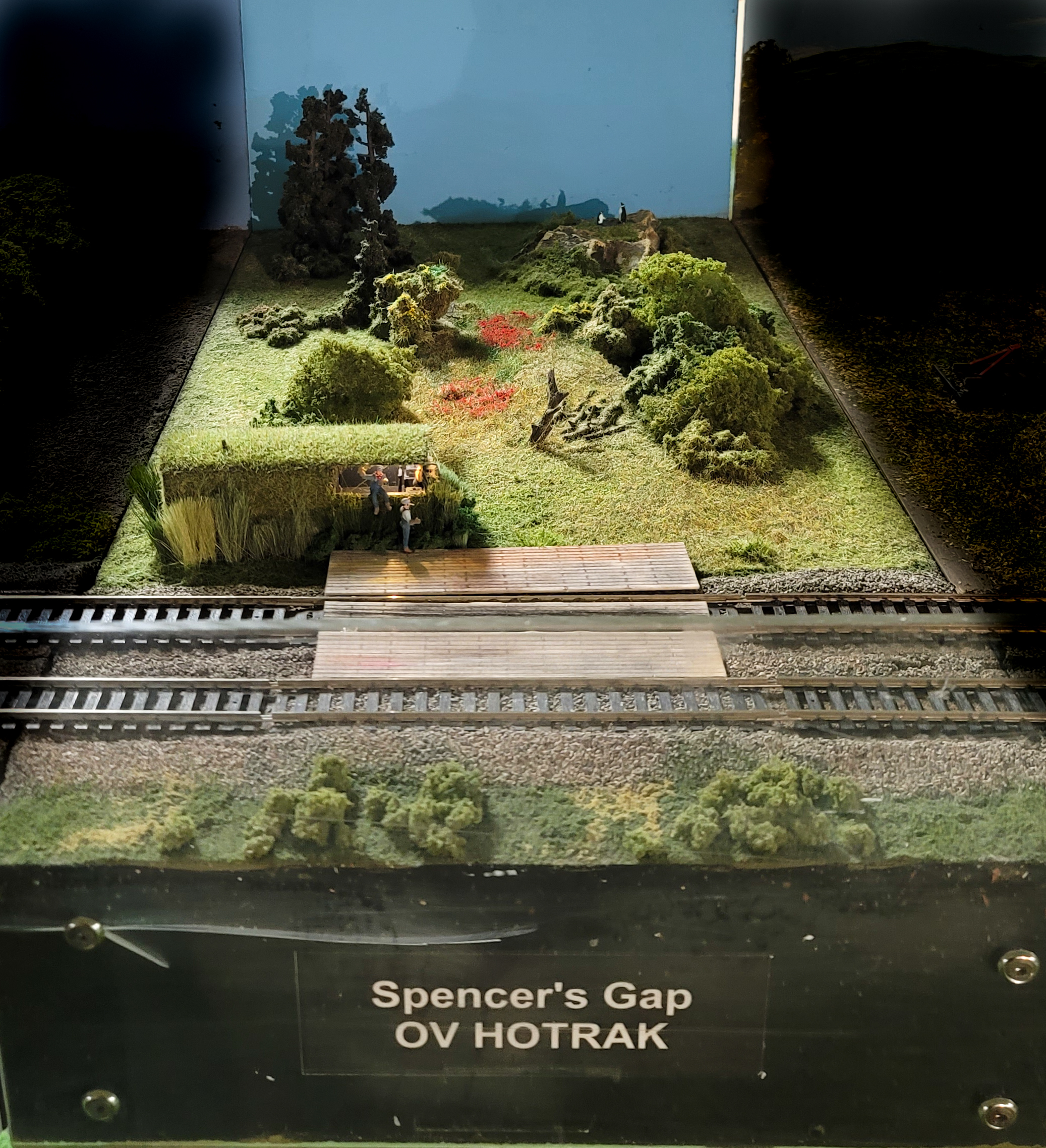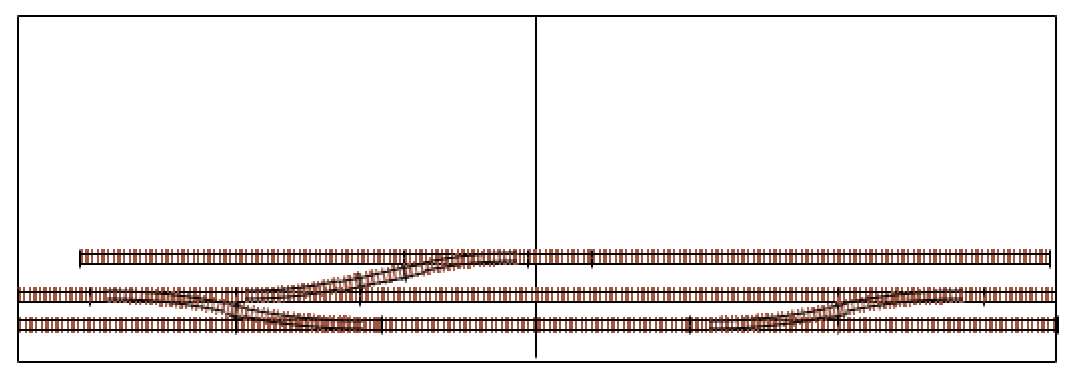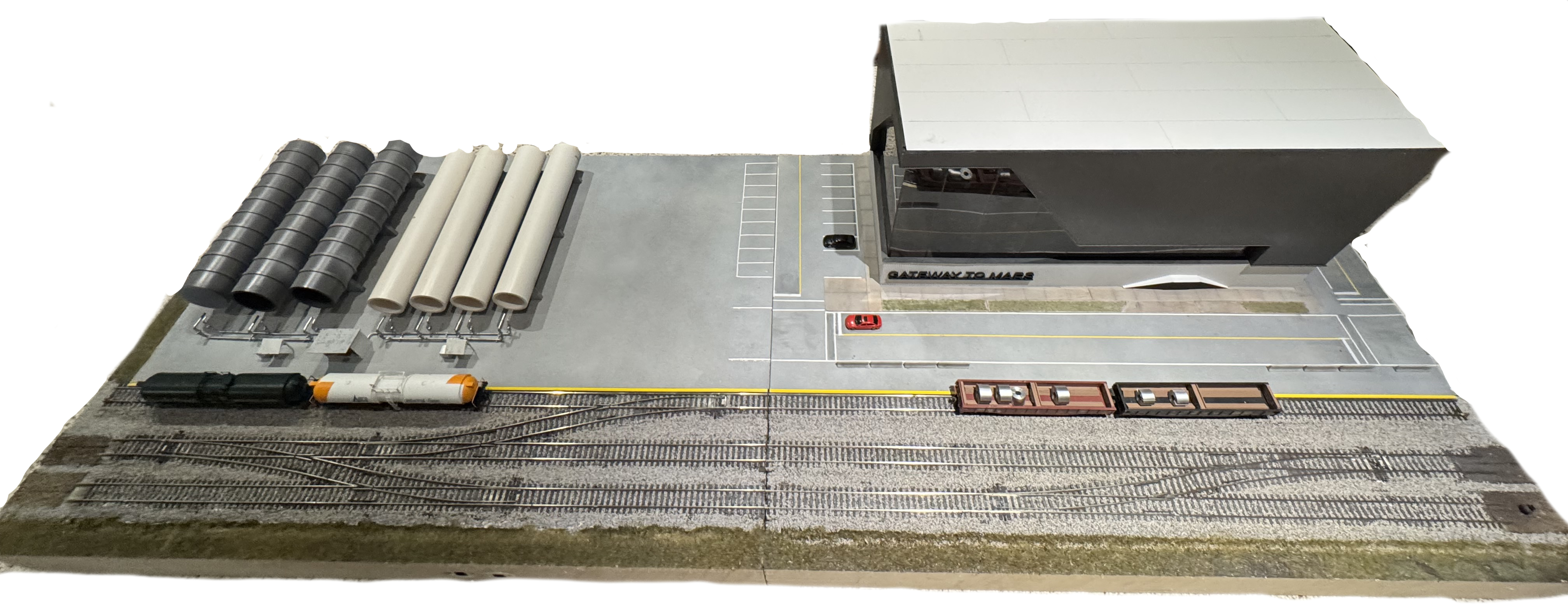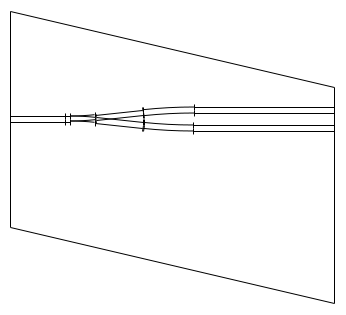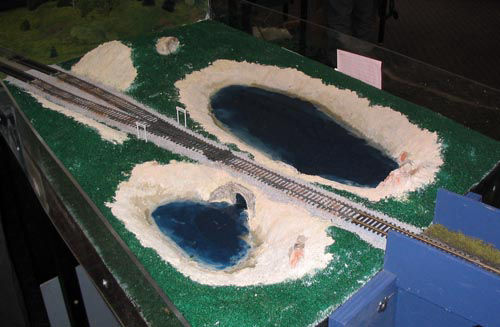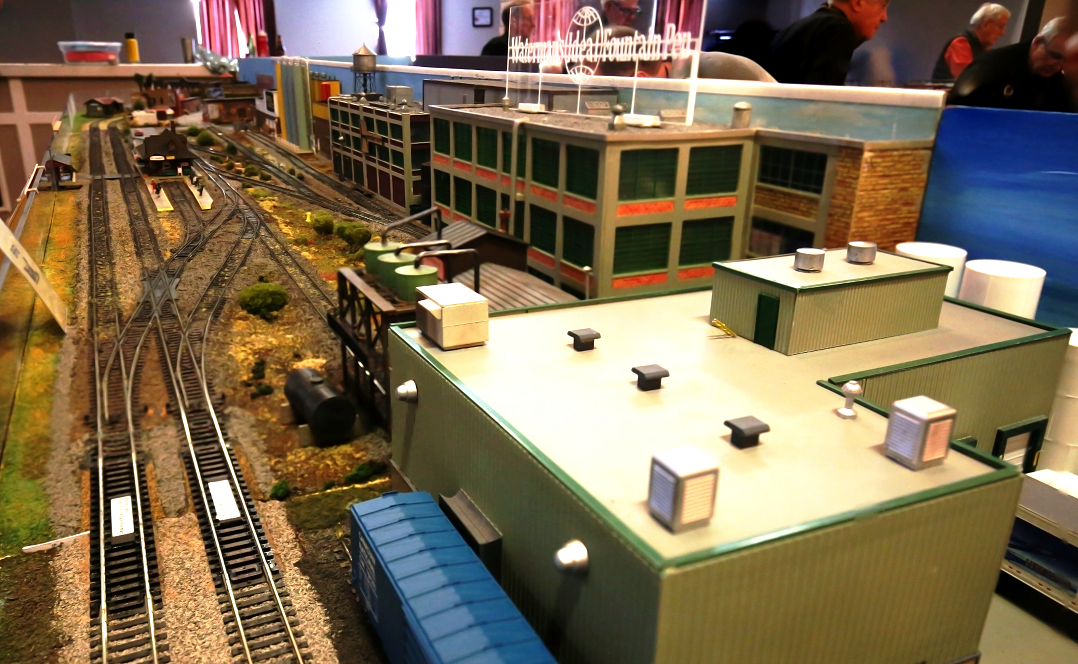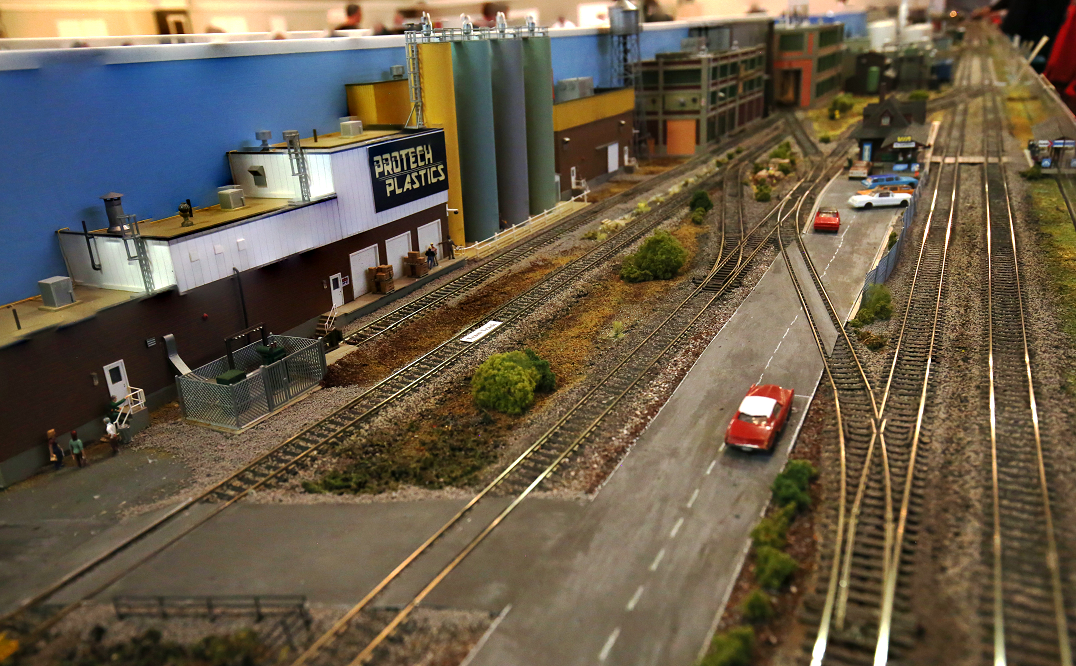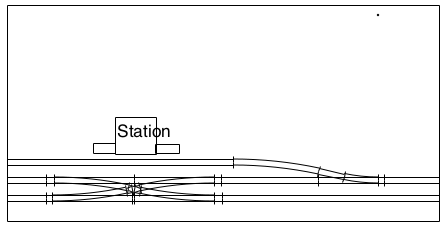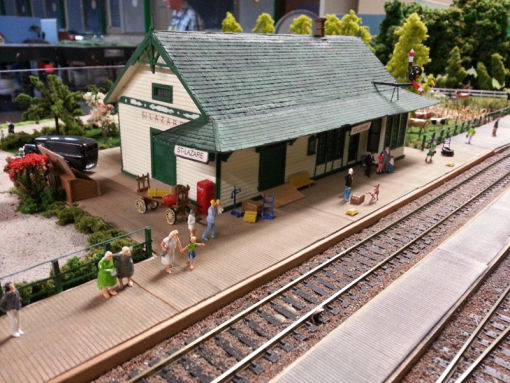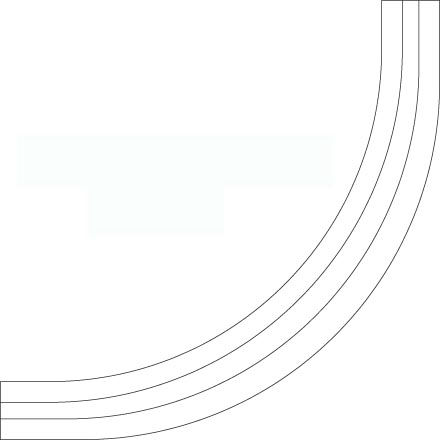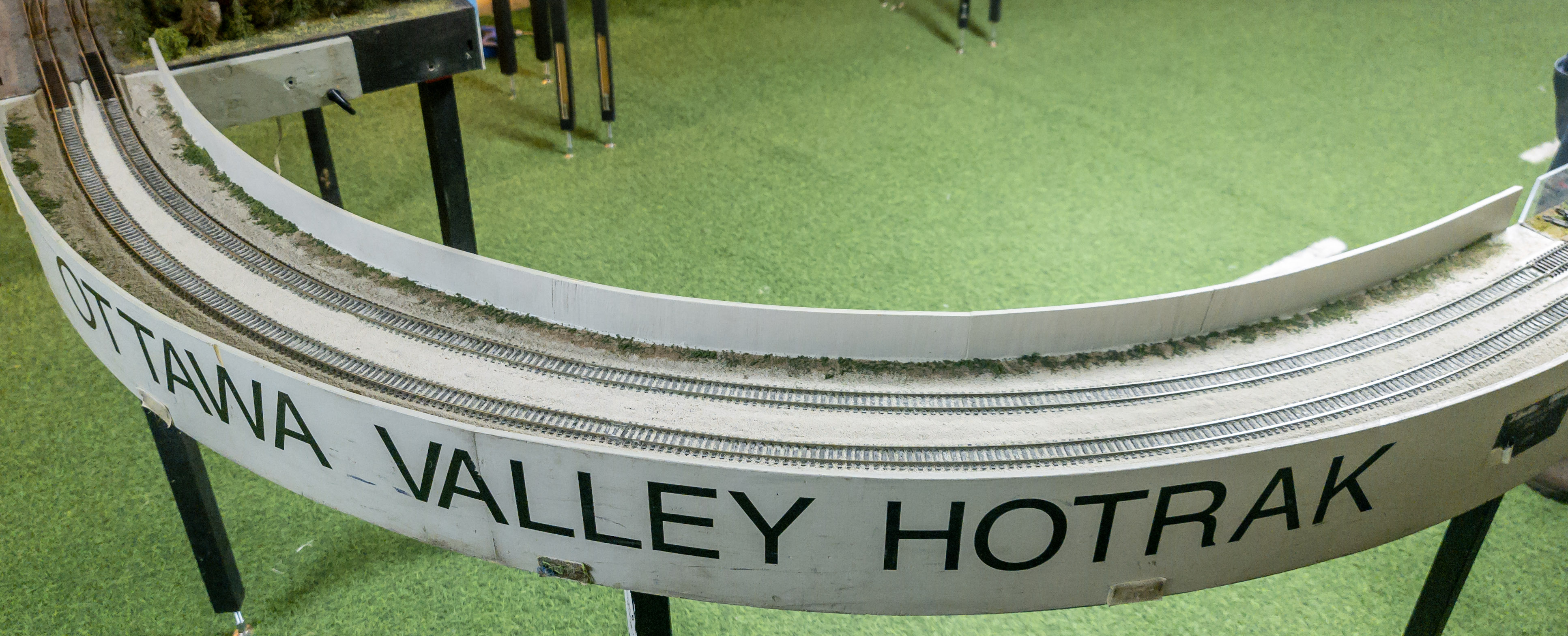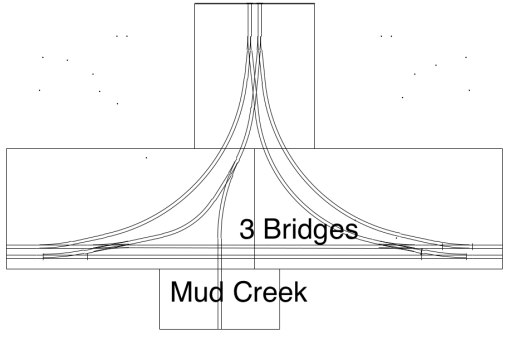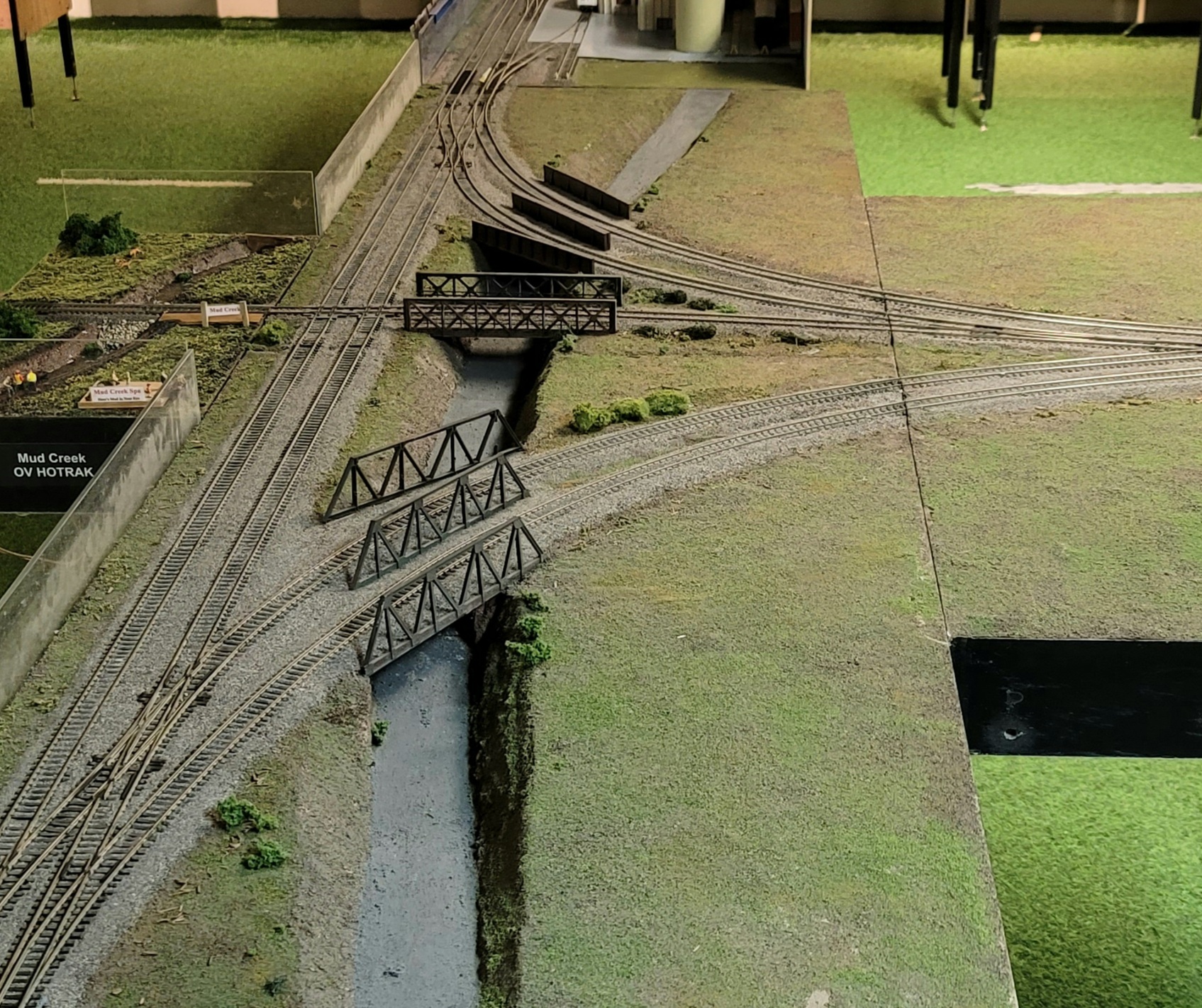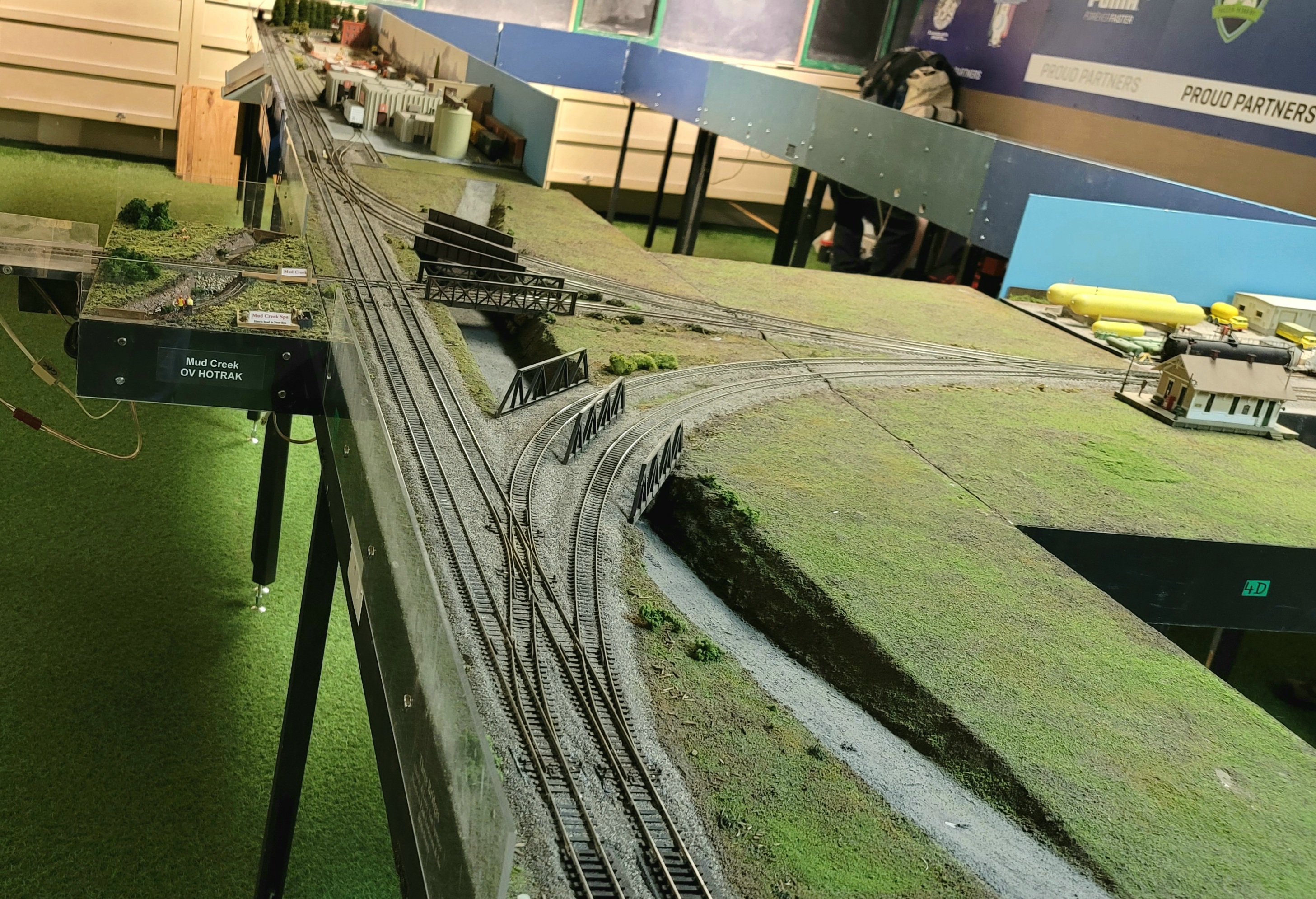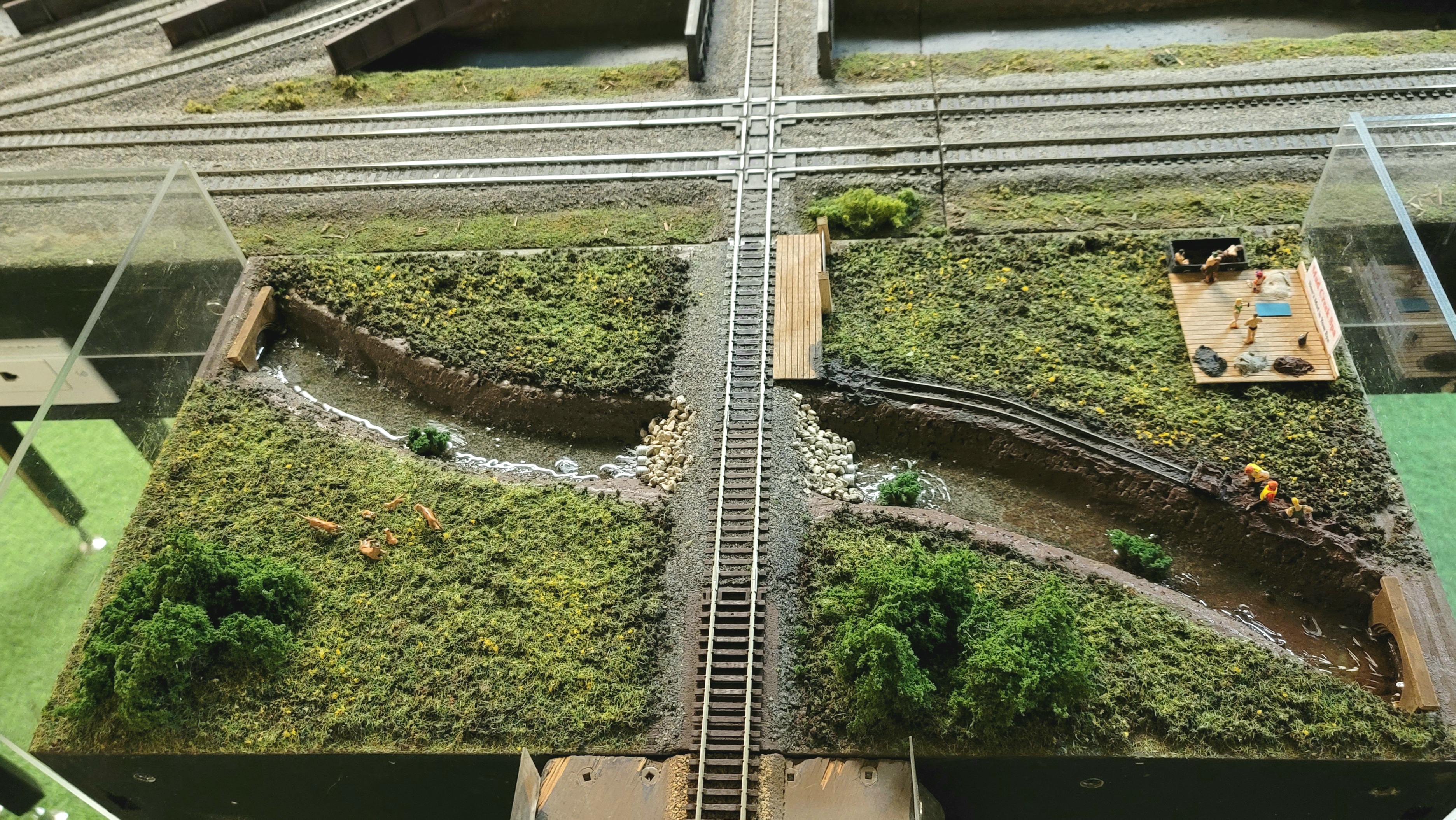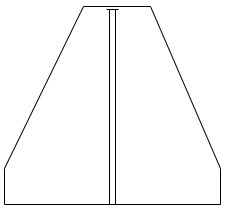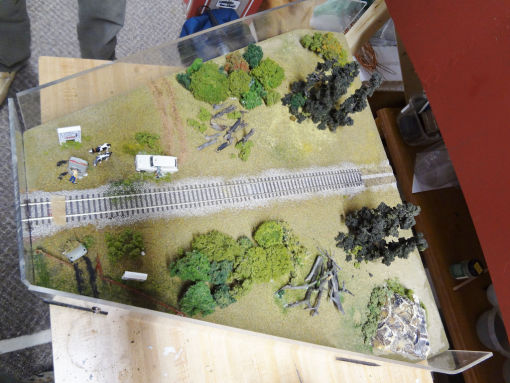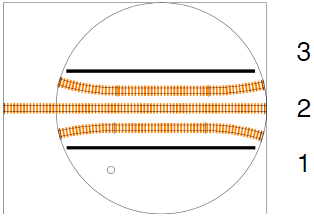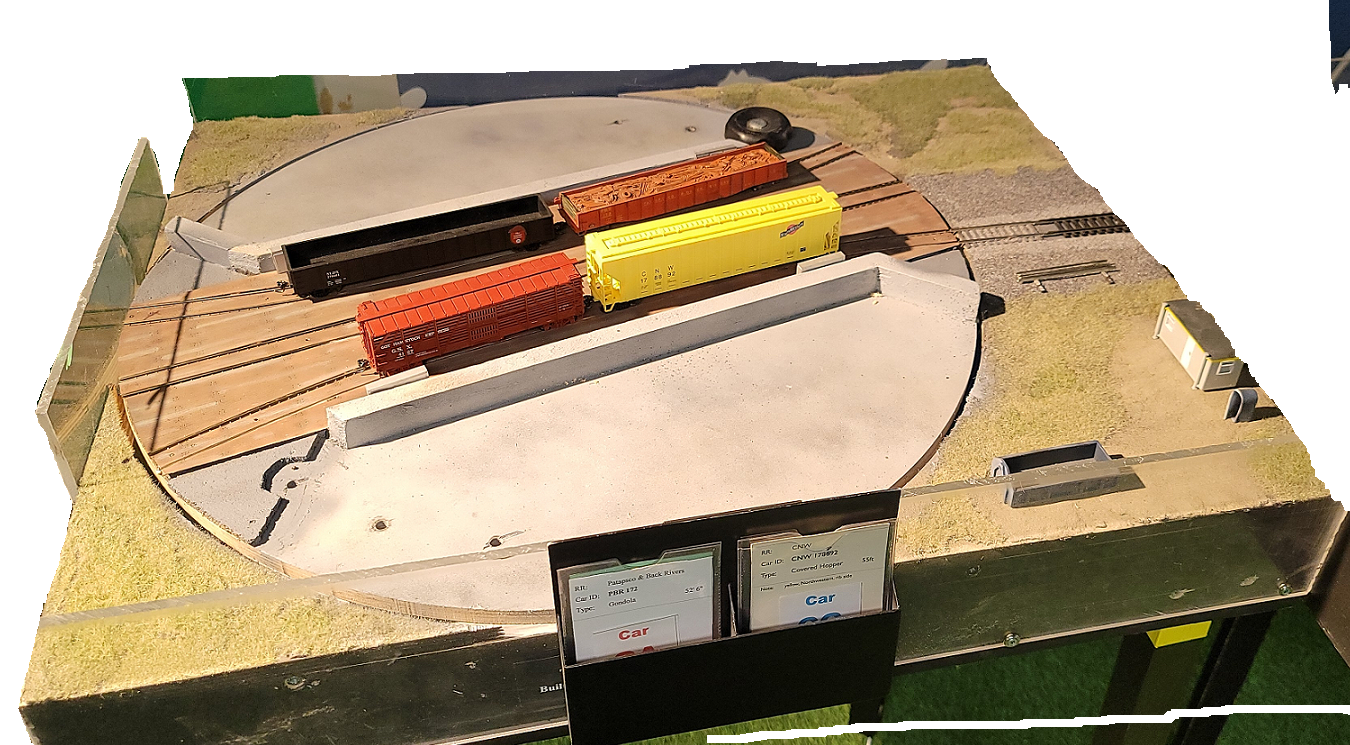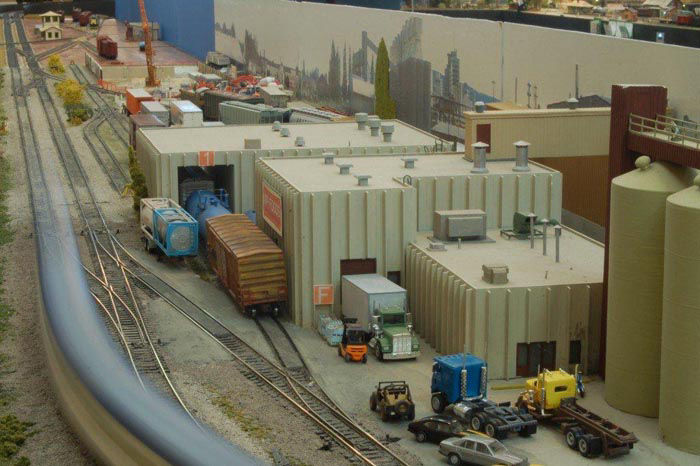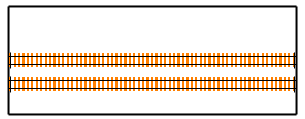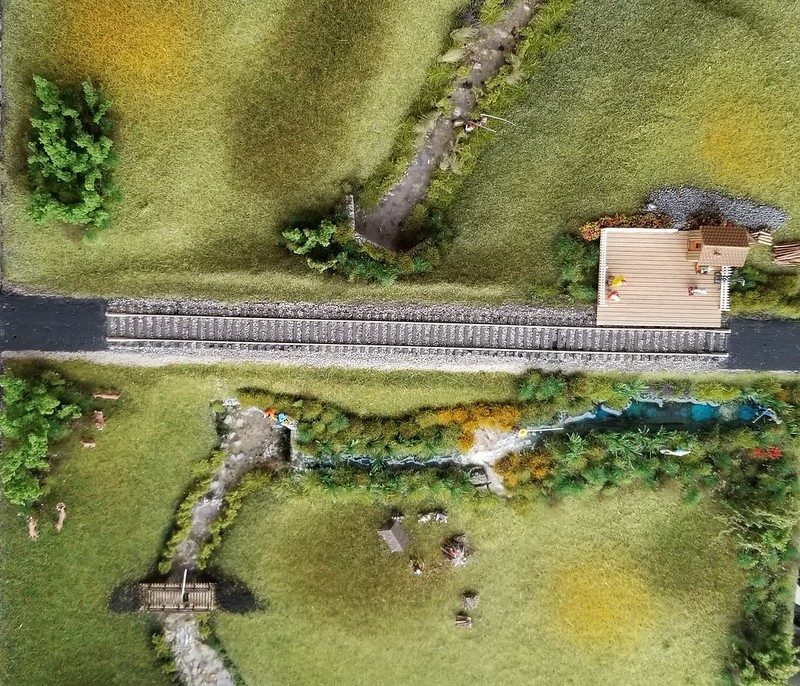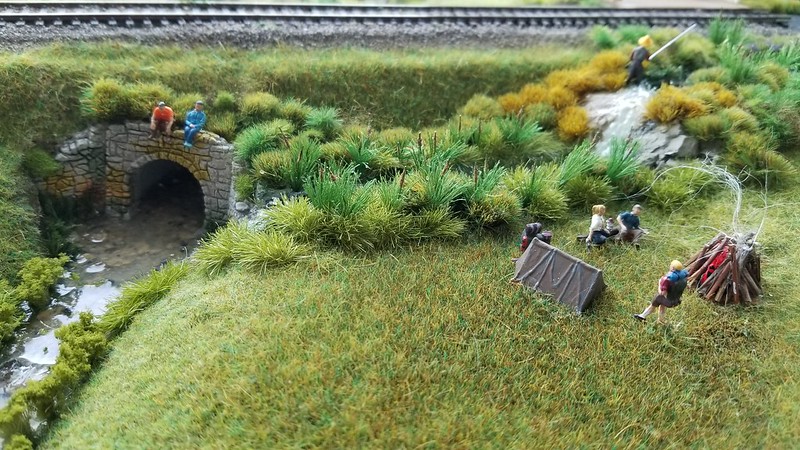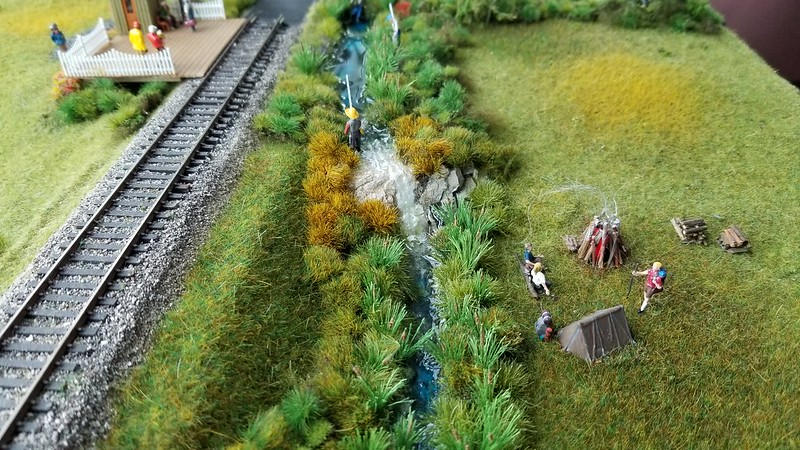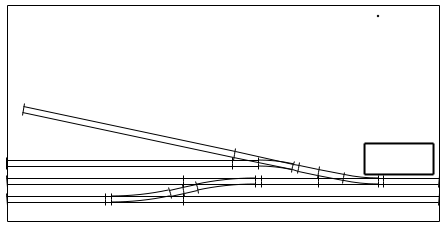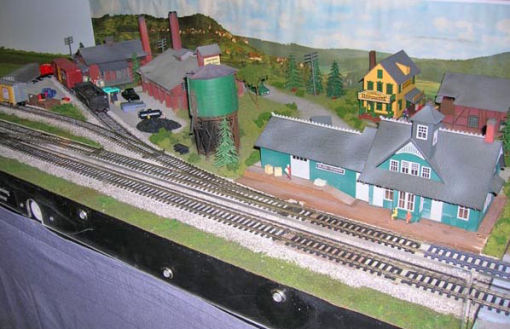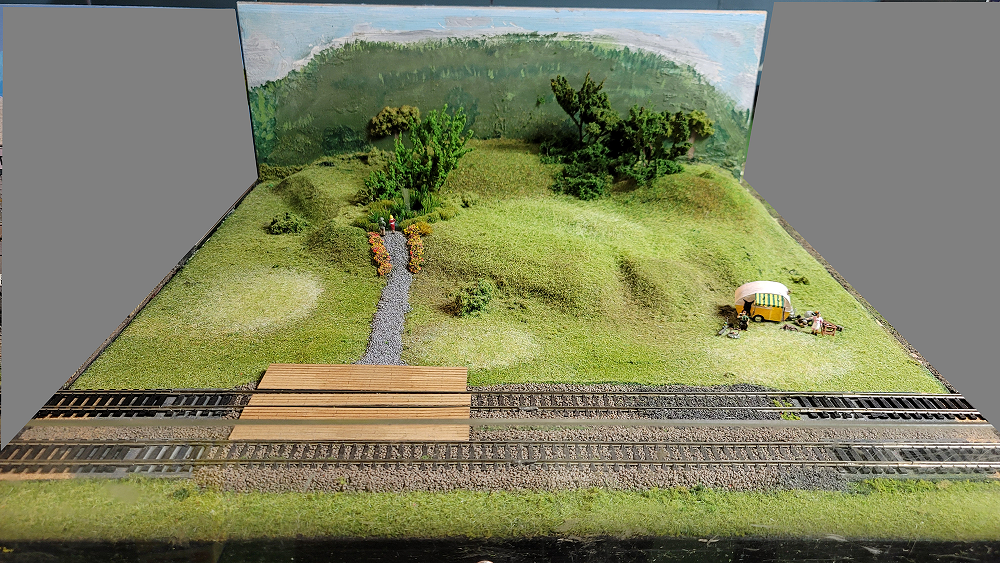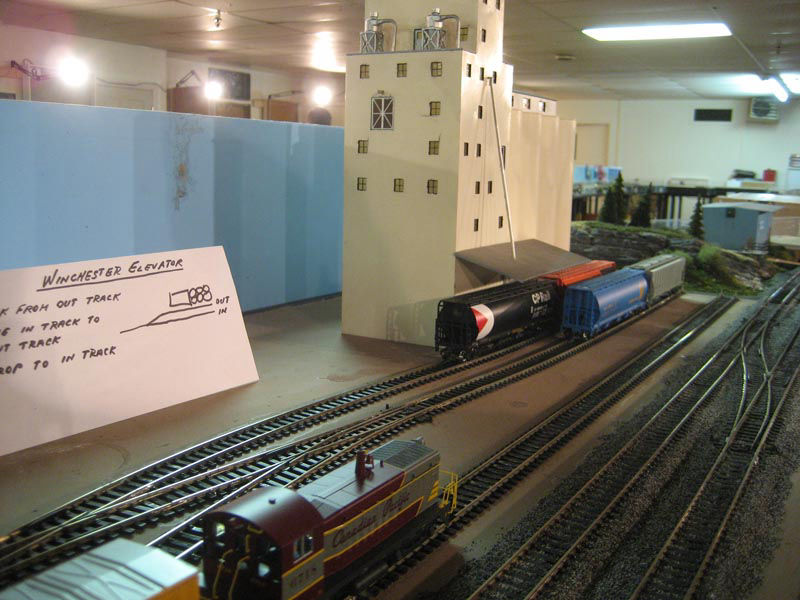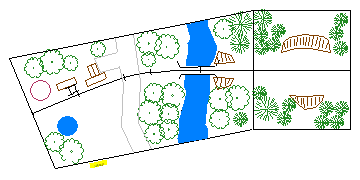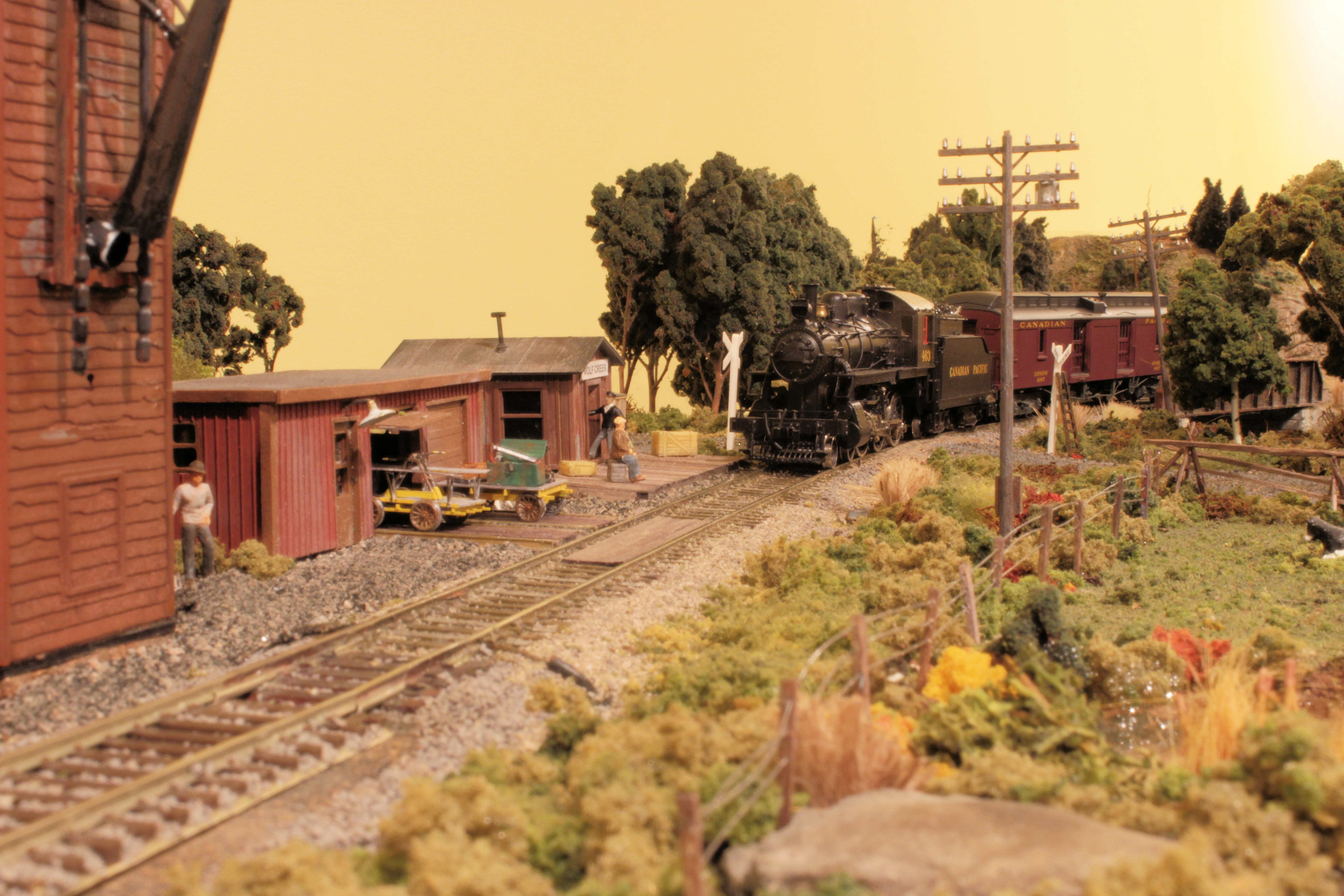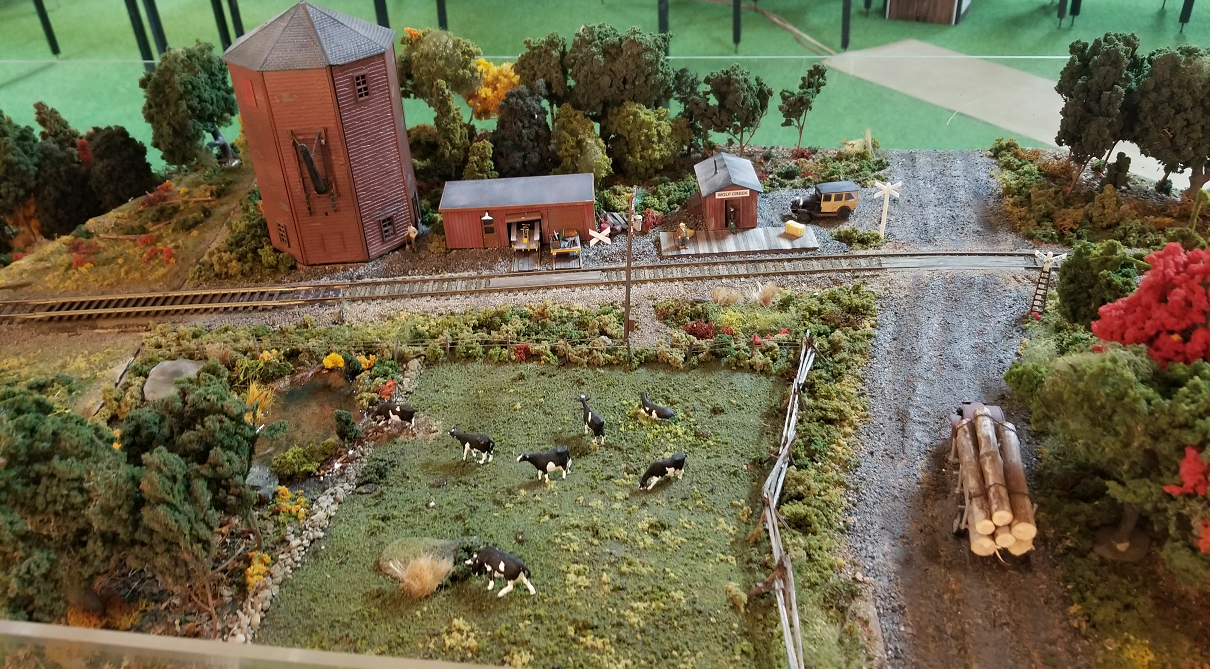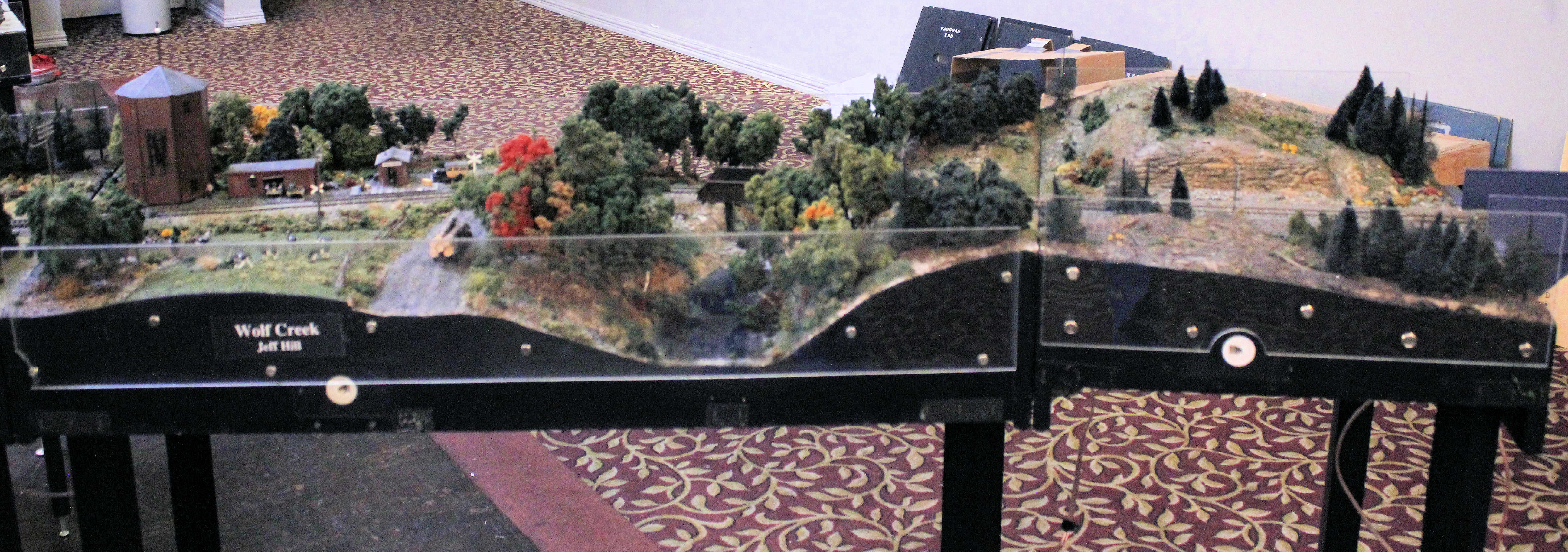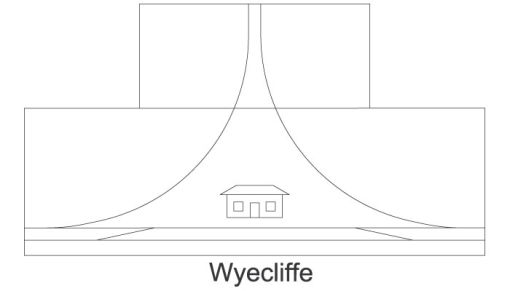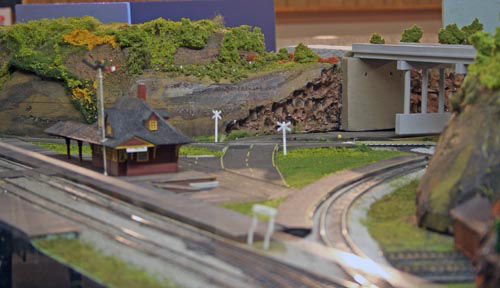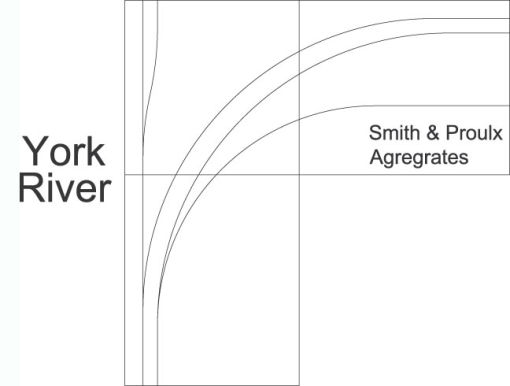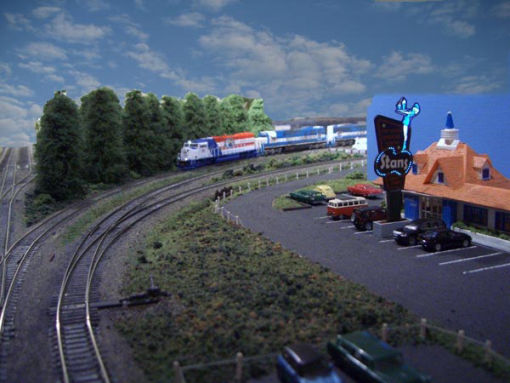Sidings
Adam's Custom Blended Oil (4) receives bulk lubricating oil by the tank car load and additives via boxcars in barrels and other plastic and metal containers. The finished product is shipped via boxcar in barrels, 23 liter pails and 1 liter containers.
Rail capacity is one position for unloading tank car, outdoor loading dock for one freight car (40'), and indoor loading dock (94') for two 40' freight cars or one position if longer than 40'.
Lindsay Steel Fabricators (5) will take on any steel fabrication job that the components can be shipped in and finished product can be shipped out by rail. They take in sheet steel and other dimensional steel products which they cut, bend and weld into components mainly for building frames, bridges and other large steel structures. Another sideline is specialized welding for car and truck frames for the automotive industry.
Rail capacity is 2 indoor tracks for loading and unloading boxcars, flat cars and coil cars. Track 1 is 98' in length and track 2 is 112' in length. The length of cars on the indoor tracks may not exceed the capacity of the rail at anytime as the overhead doors must be closed in inclement weather or security barriers closed to restrict public access since the entrance is right on a public road. There is a third outdoors siding serving door #3 (70') which also has a storage capacity of 150' for excess cars.
Speedy Freight (6) is a small freight company specializing in the packaging, shipping and receiving of delicate electronic and scientific instruments. They will also handle anything else they can get through the doors or for larger items they will make arrangements and look after the handling using the Team Track down the street.
Due to the tight location between a public road and their neighbors the max length of boxcar or flatcar is 40'.
Prime Meats (7) only handles Grade AAA Alberta Angus Beef for the area restaurants, meat markets and other select clientele. They have a capacity for one Reefer at their delivery door (80').
Commodore Transfer (8) is a general merchandise freight company serving the area. They have a capacity for one boxcar or flat car up to 72' at their delivery door.
Dubois Grocers (9) receive fruit and vegetables by Reefer from southern growers and distributes the produce to independent grocery stores, markets and restaurants.
They have a capacity for one Reefer at their delivery door (72').
Stavenger Plastics (14) does injection molding and extrusion of all kinds of styrene products. The main plant is located away from the tracks and uses a pneumatic delivery system to get the plastic pellets from the tracks to the plant.
The unloading facility has a capacity to hold three covered hoppers with a winch system for moving the cars over the pit. The pellets drop into a pit under the rails where they are augured into a blower which propels them through a pipe up and over the adjacent rail, over Prime Meats, over Plastic Way and into the main plant where the pellets are stored in silos.
Bob's Fuel (13) is a small home heating oil business that receives tank car loads of furnace oil and distributes it to local customers by truck.
There is room for one tank car at the unloading facility.
Mert's Fish Boxes (11) is a small family run business producing wooden shipping crates for the fish processing plants out on the coast. Shipments of lumber are received by flat car and unloaded on the west side of the factory finished boxes are loaded into a boxcar for moving to the coast. The wood chips and sawdust are collected and stored at Chips CO-OP on the east side for recycling at a particle board manufacturer. For environmental reasons they can no longer burn their waste and would have to pay for disposal in a land fill.
The track has room for one flat car (40') west of the factory for wood delivery, one boxcar at the loading door for out going boxes.
Chips Co-op (12) is a co-operative owned by a group of woodlot owners who harvest their trees, chip them and sell them to particle board and chip board manufacturers. They also receive the waste from the Fish Box Factory saving them the cost of disposal.
The track has room for one wood chip car under the loader.
Services
Intermodal Yard (15) is capable of holding one set of five articulated Deep Well cars (280') with the facilities for loading and unloading all types of containers. In future the yard will also be able to handle Road Railers.
Team Track (16) has 170' of loading dock and another 80' of ground level access. For individuals or companies that need help in loading or unloading their commodities Speedy Freight has the equipment, experience and is for hire.
Engine Servicing Facility (3) has a two track engine servicing shop and complete services for refueling, sanding and inspection of diesel engines. The local switcher also resides here when it is not in use out in the Park.
Sleeper Service Track (2) is used to store and service the sleeper that is used on the over night train that operates out of the downtown terminal.
Passenger Station (1) is mainly for local commuters but the Inter-city and Continental trains also stop here to save the locals from having to make the long journey to the Downtown terminal.

